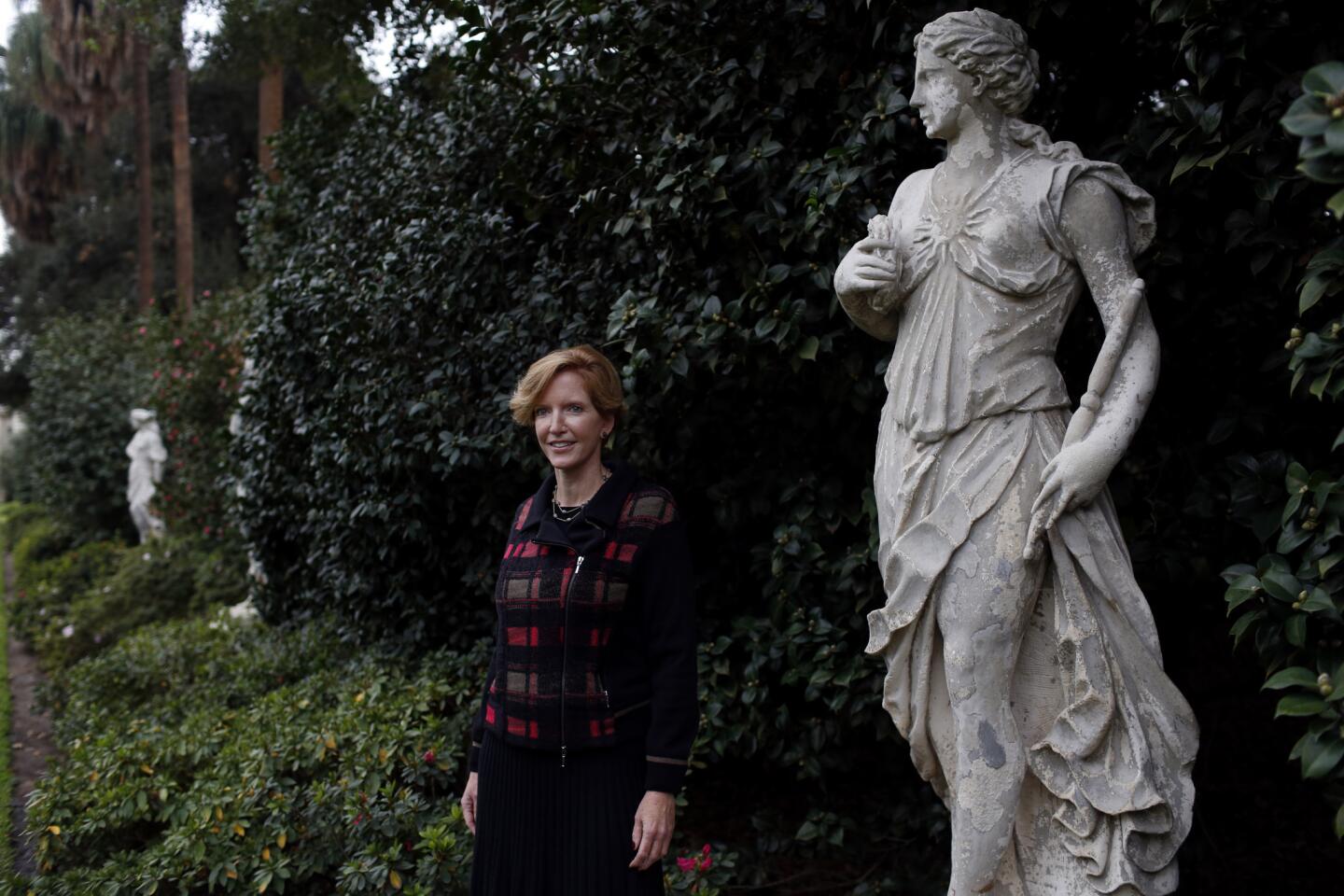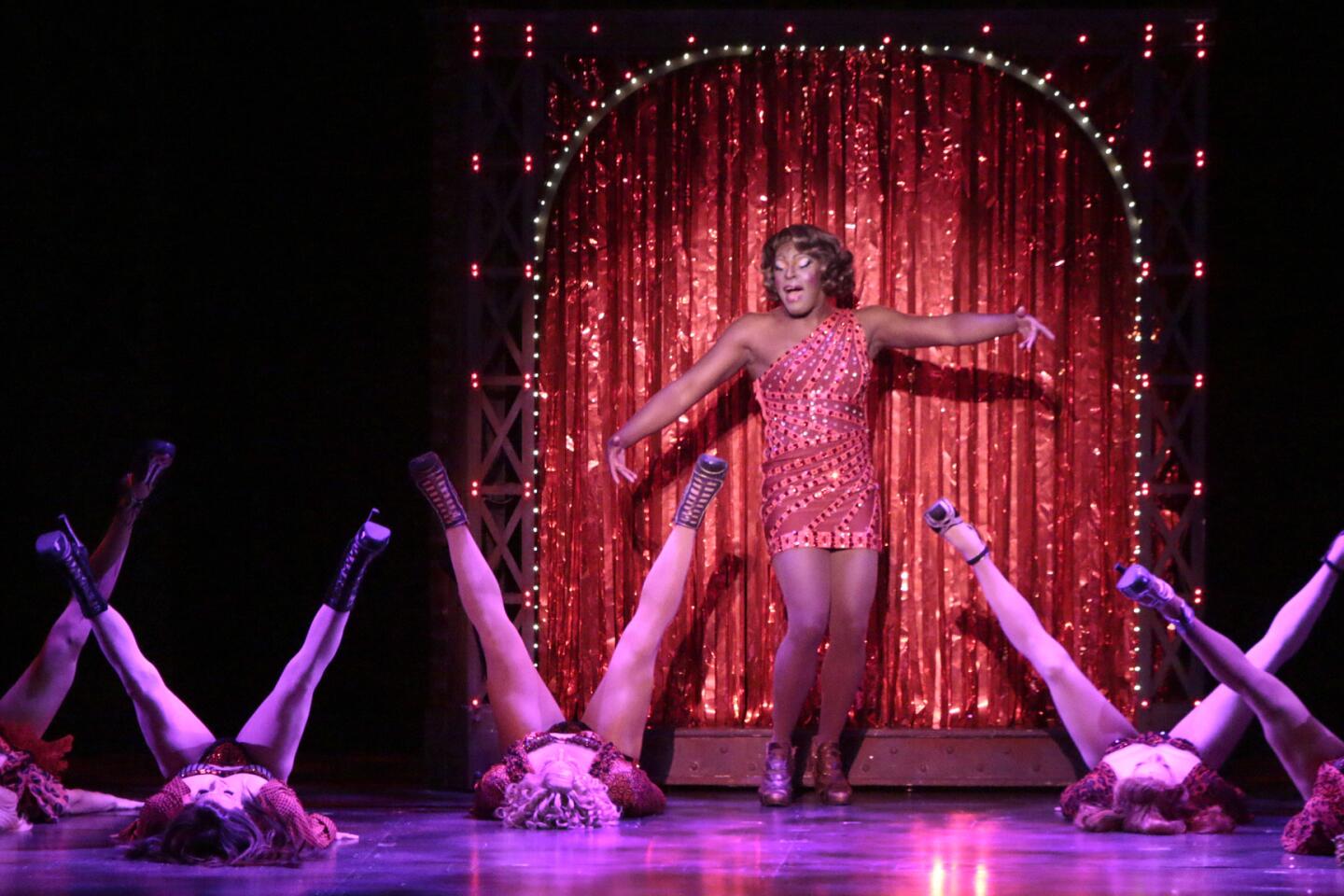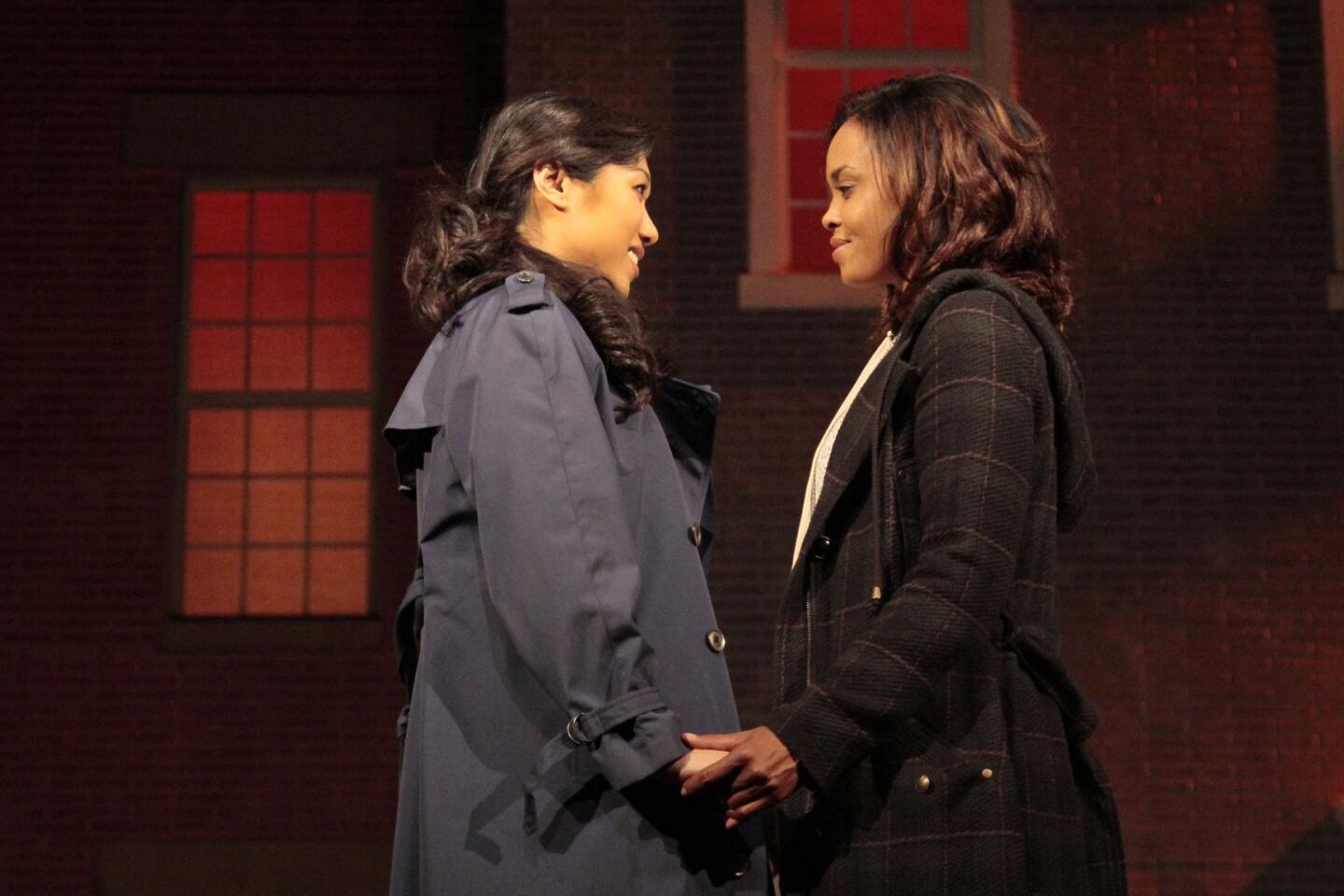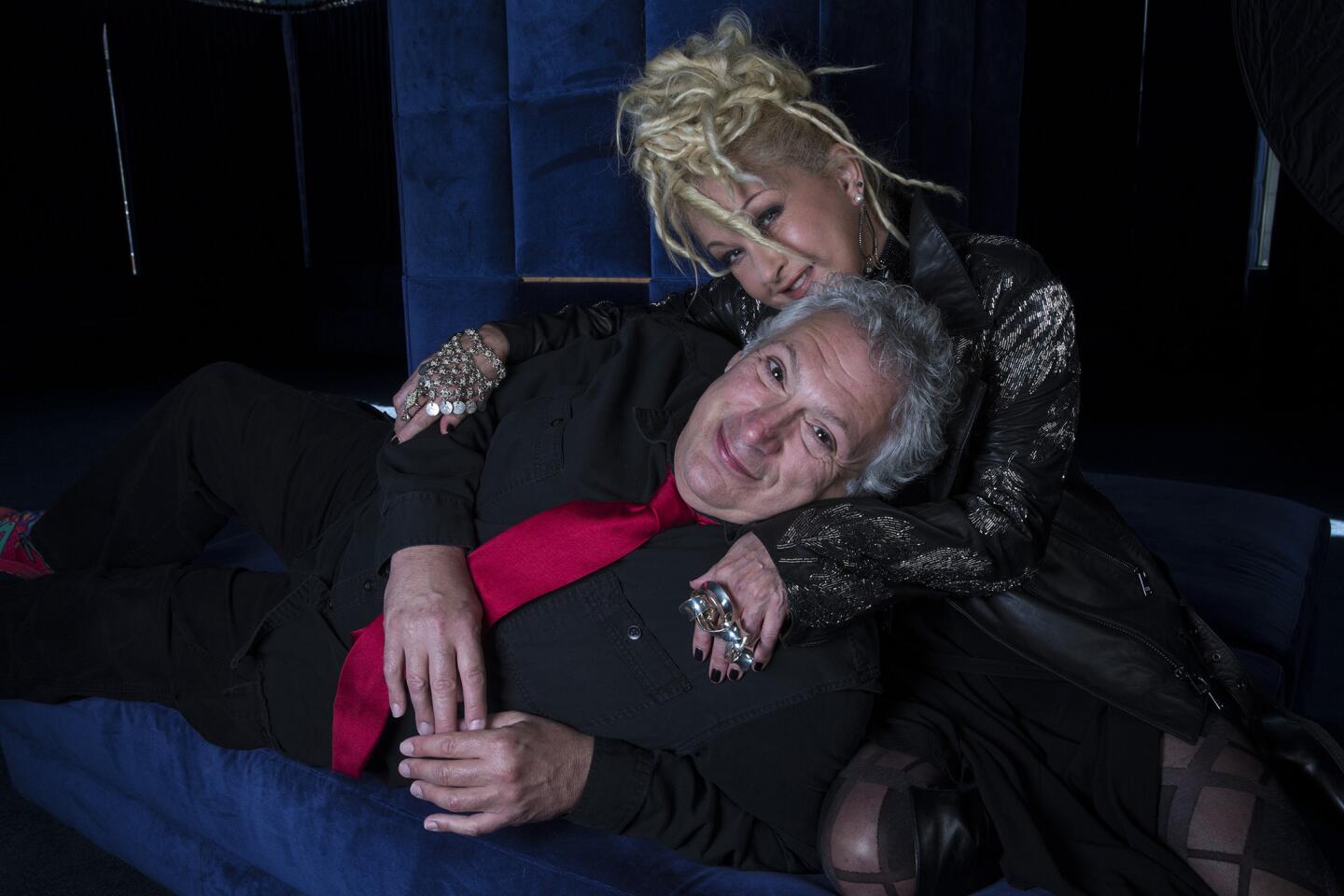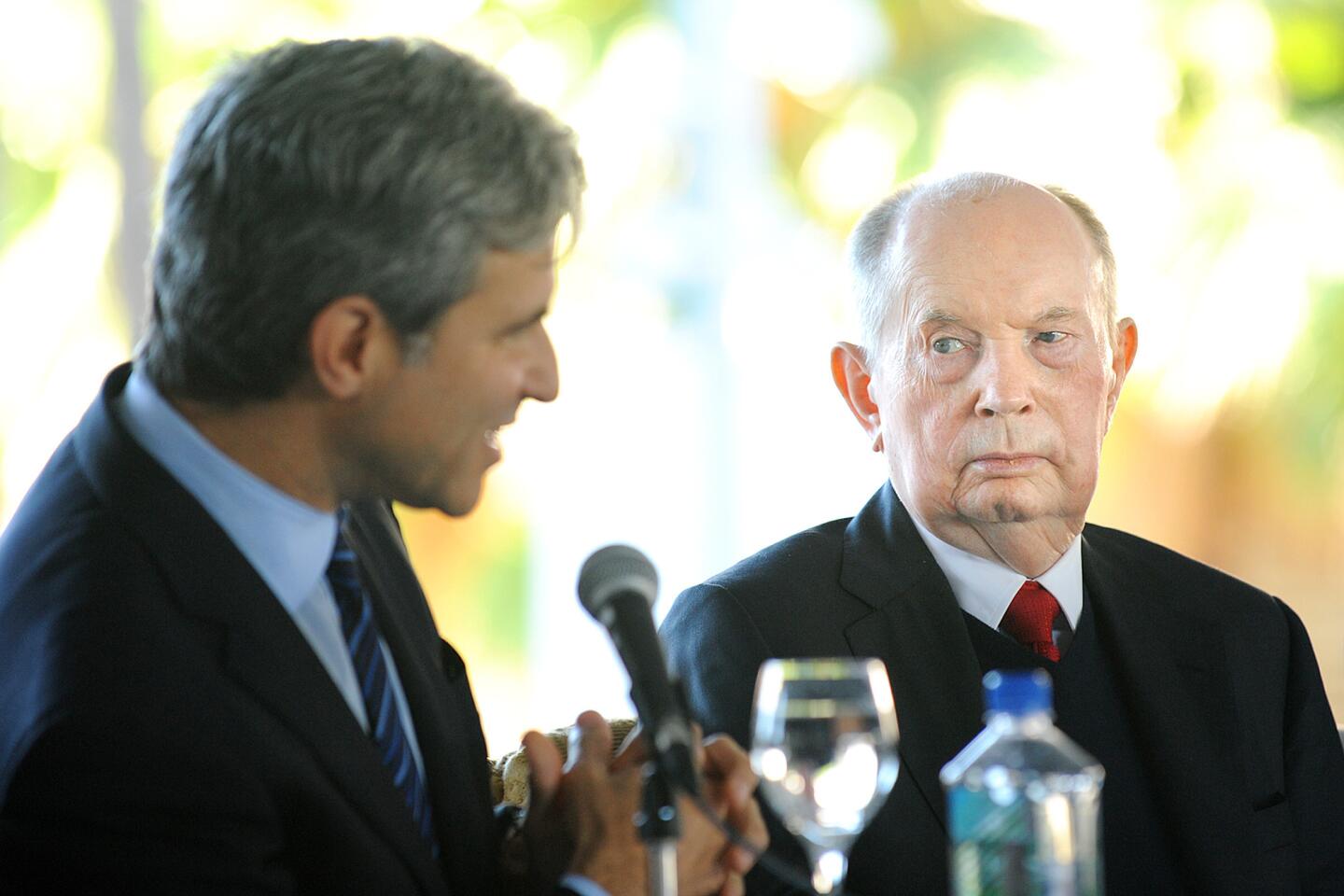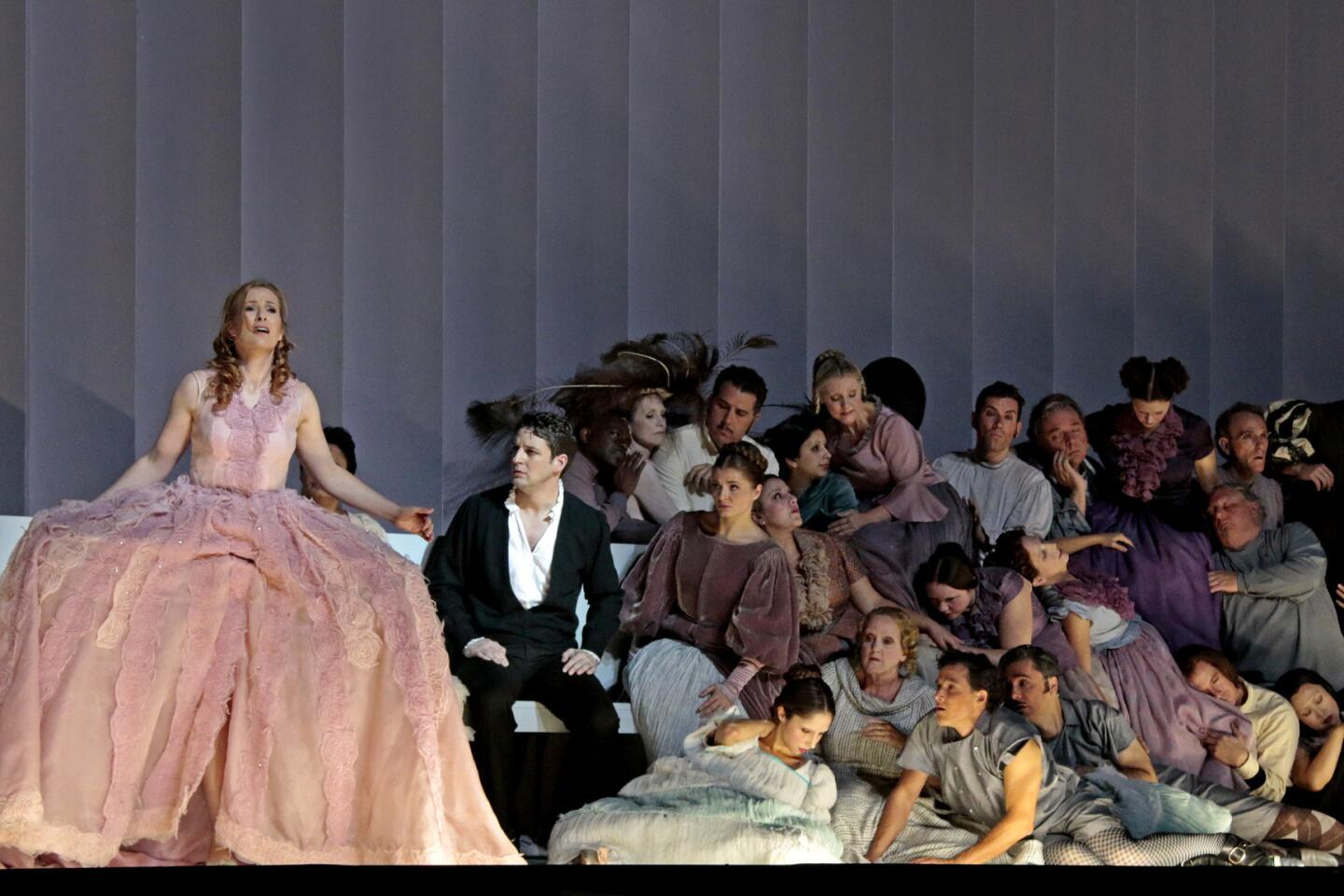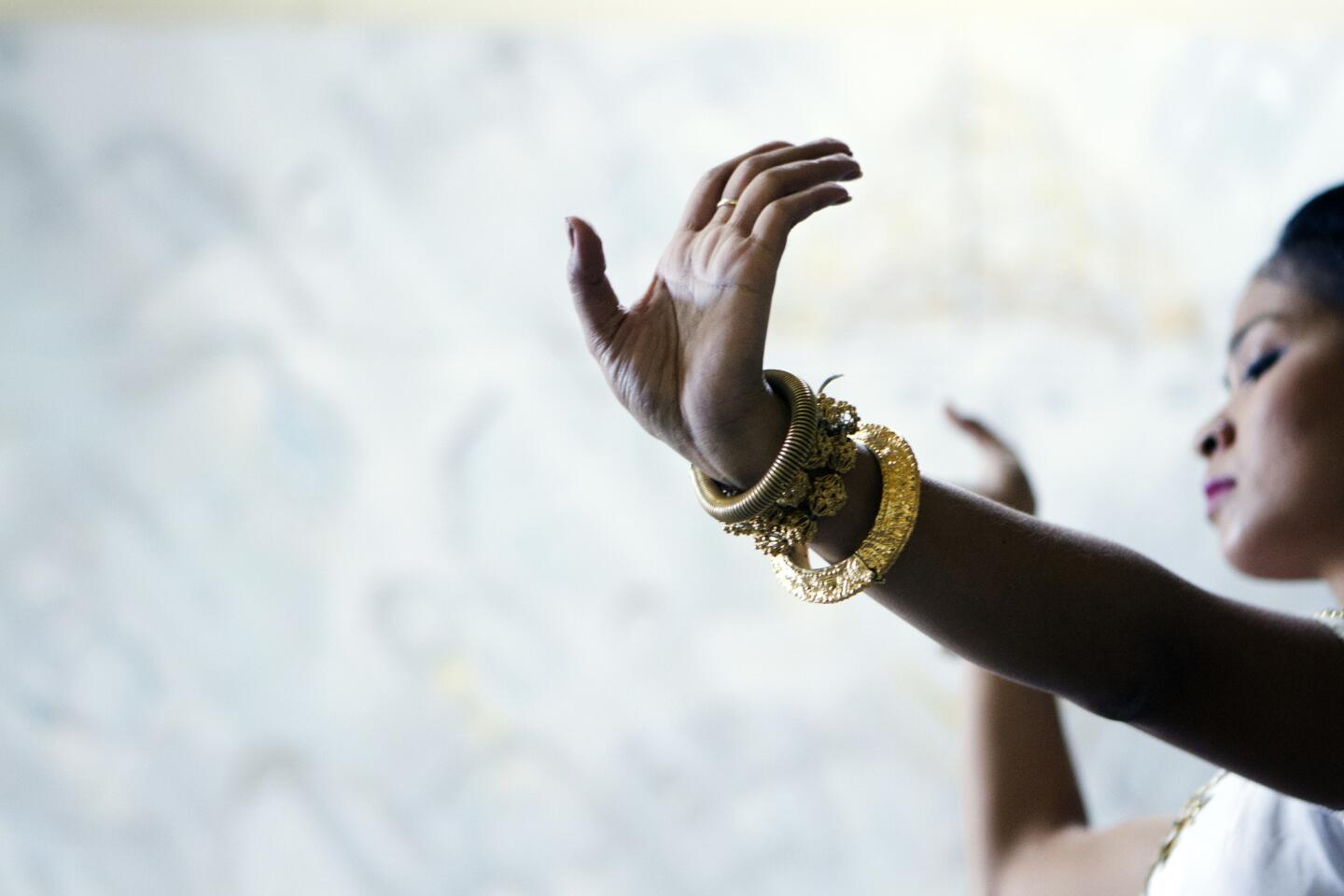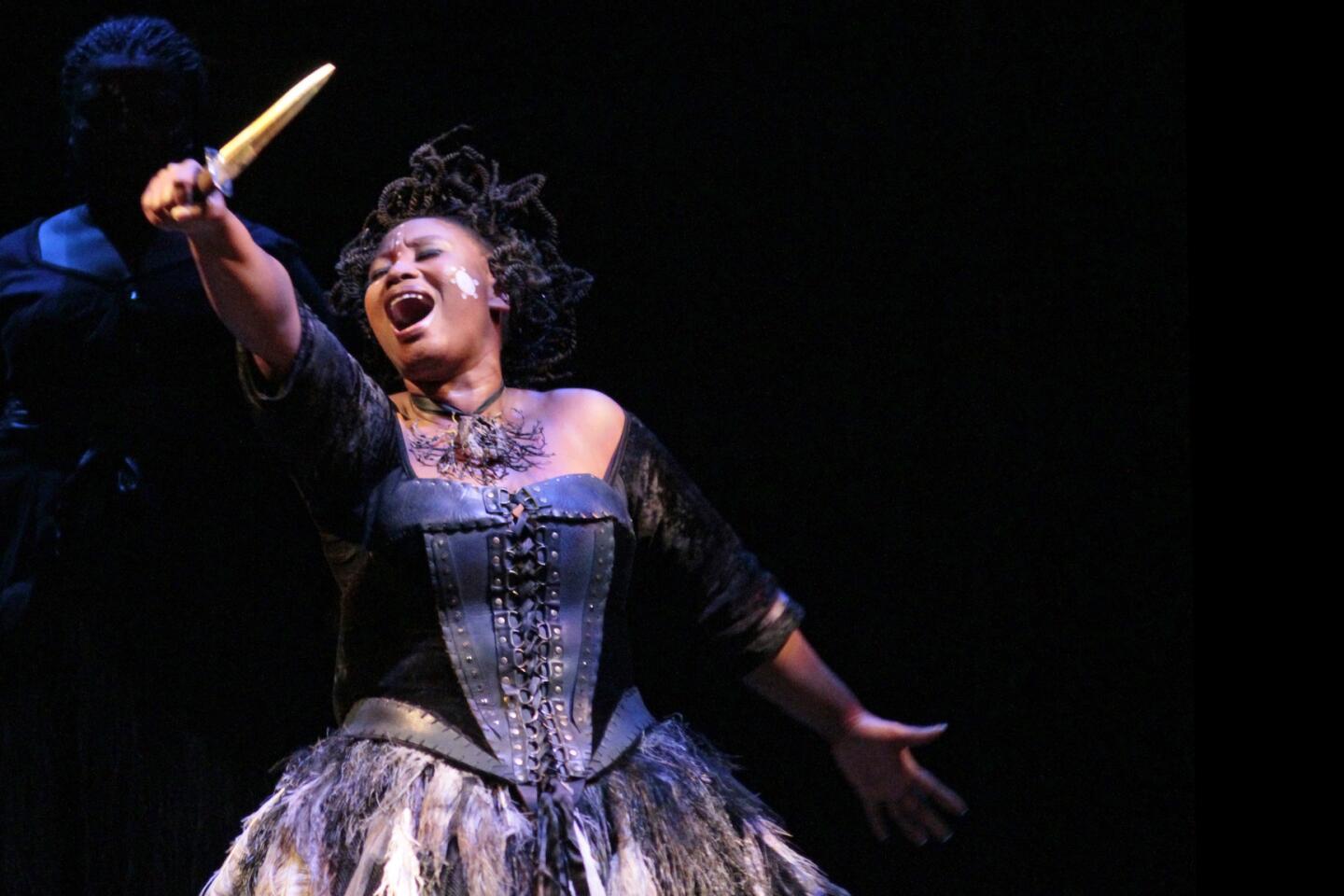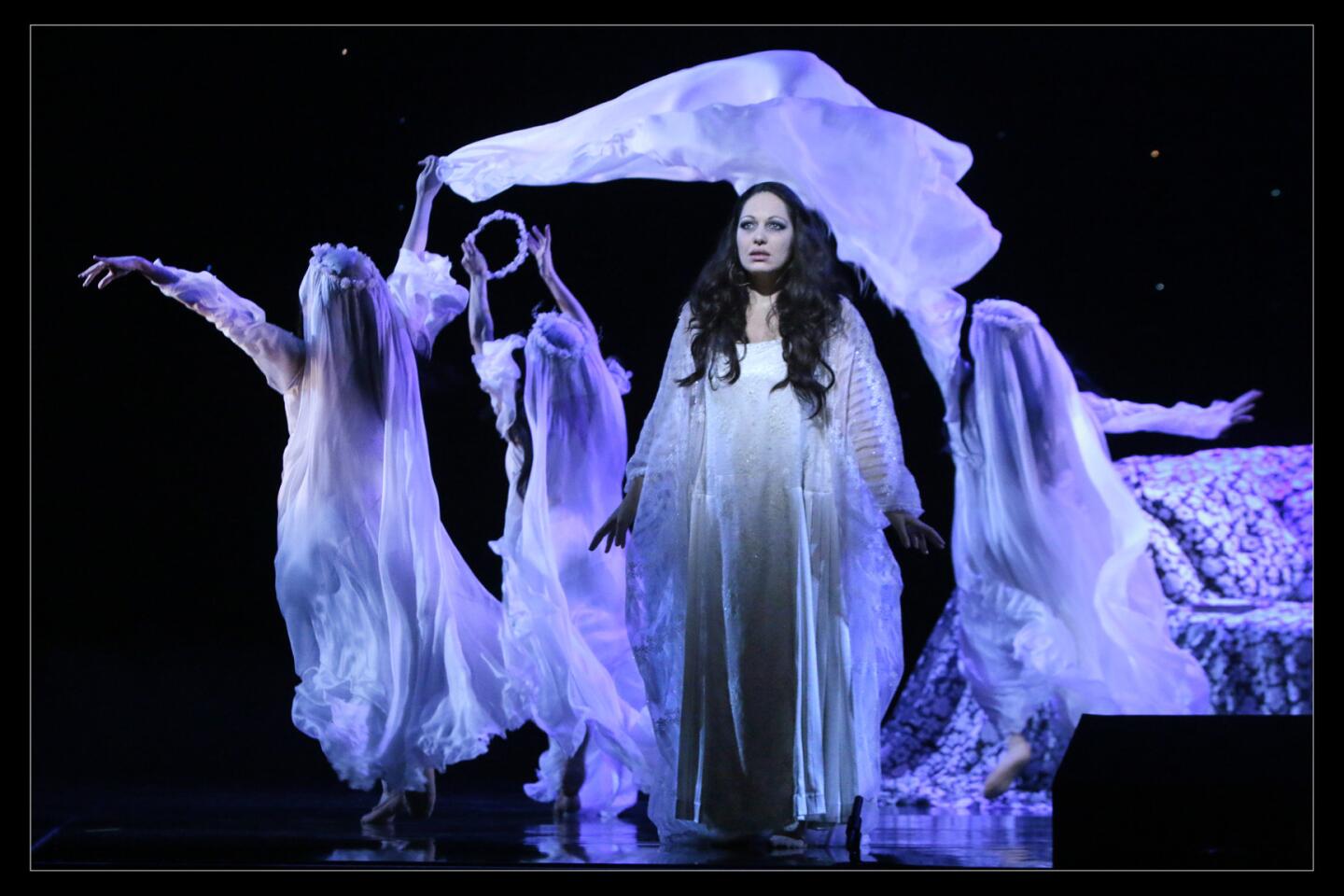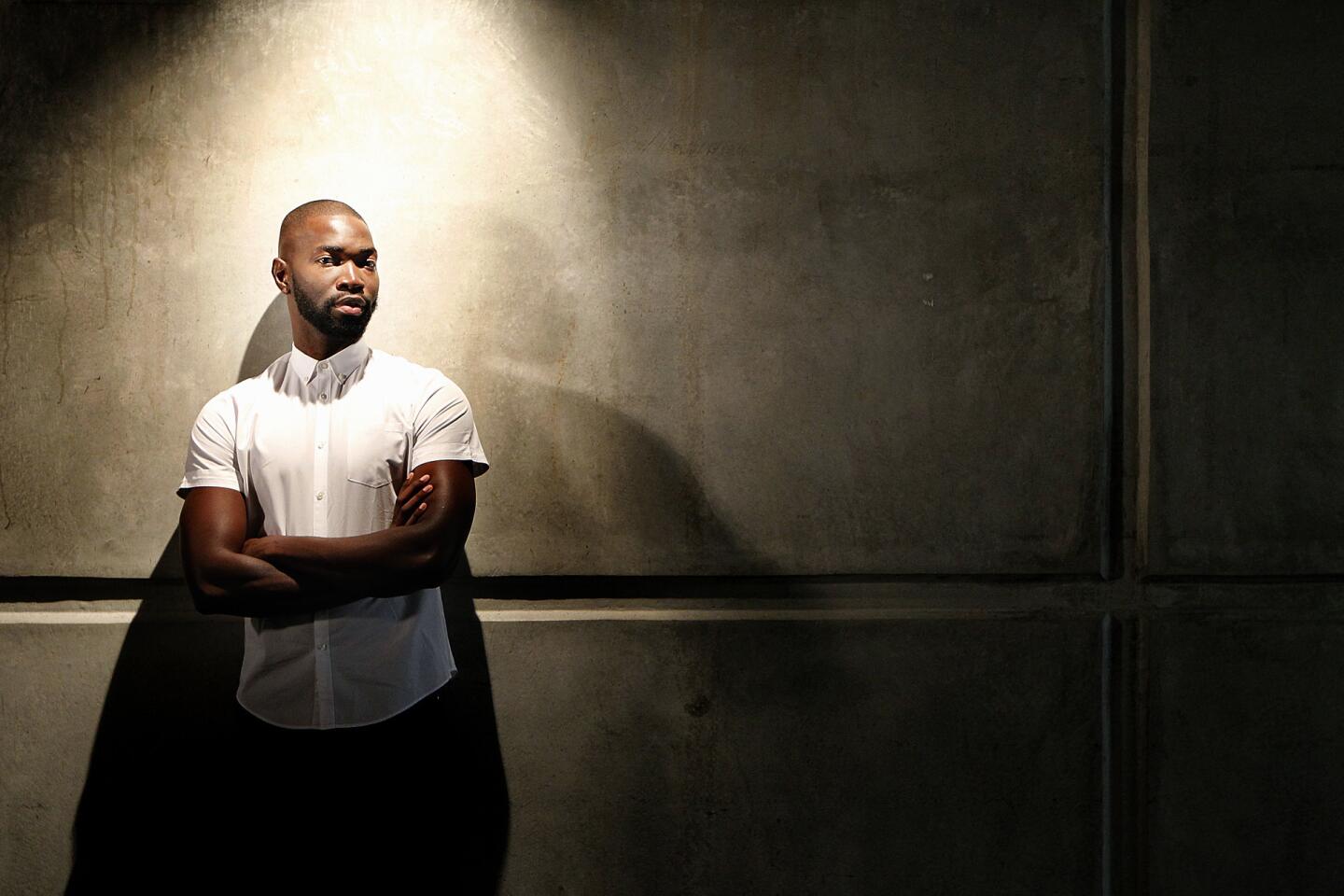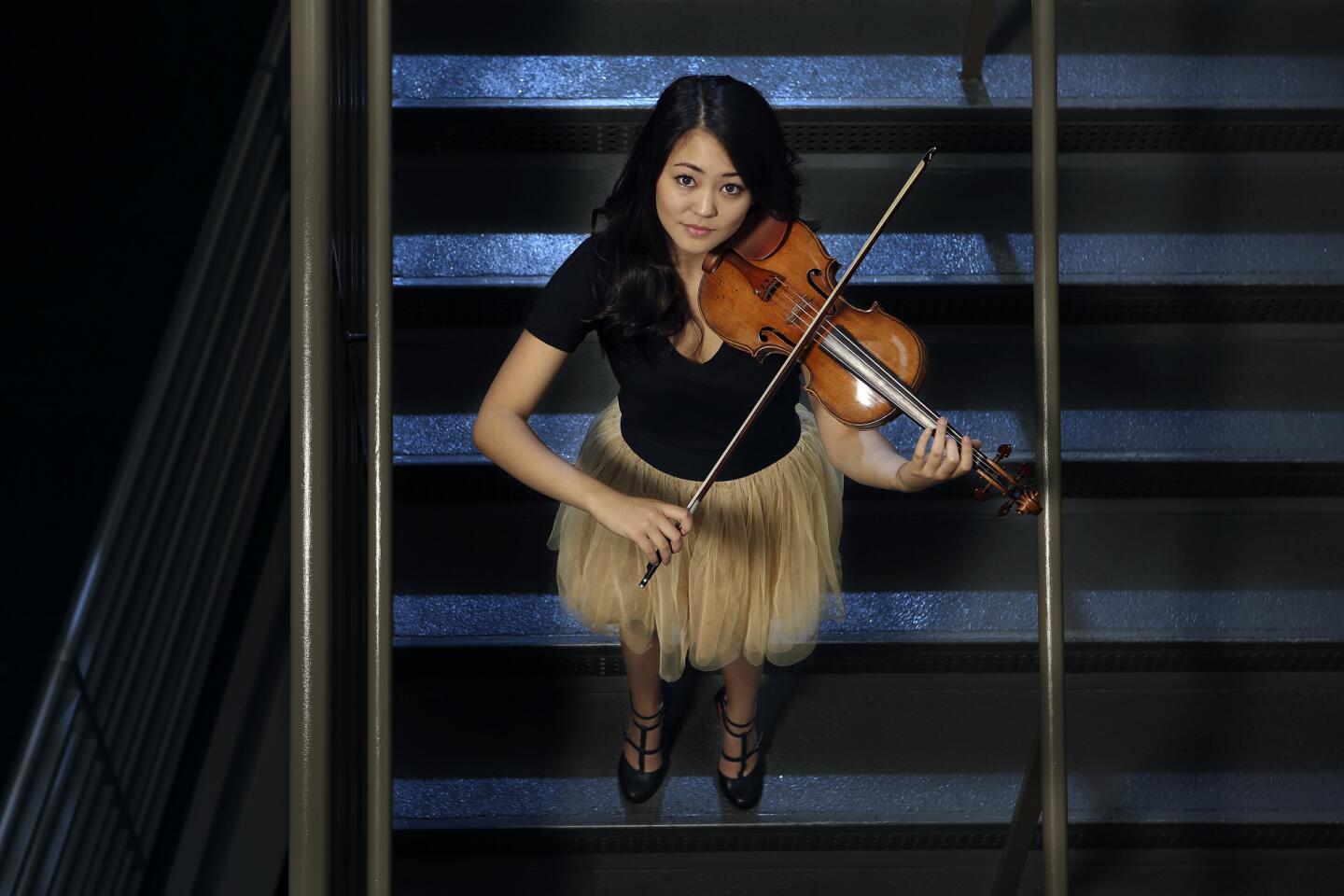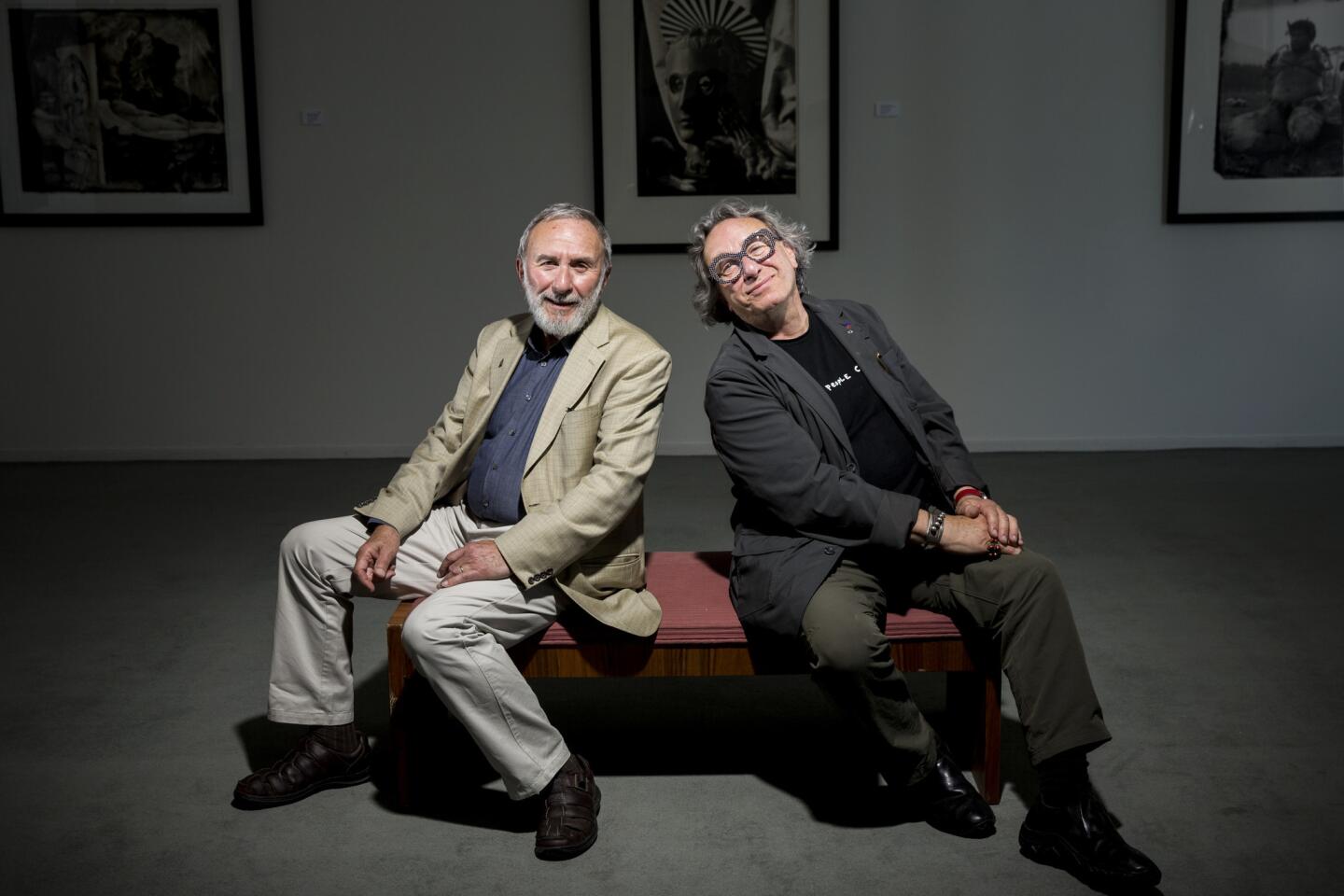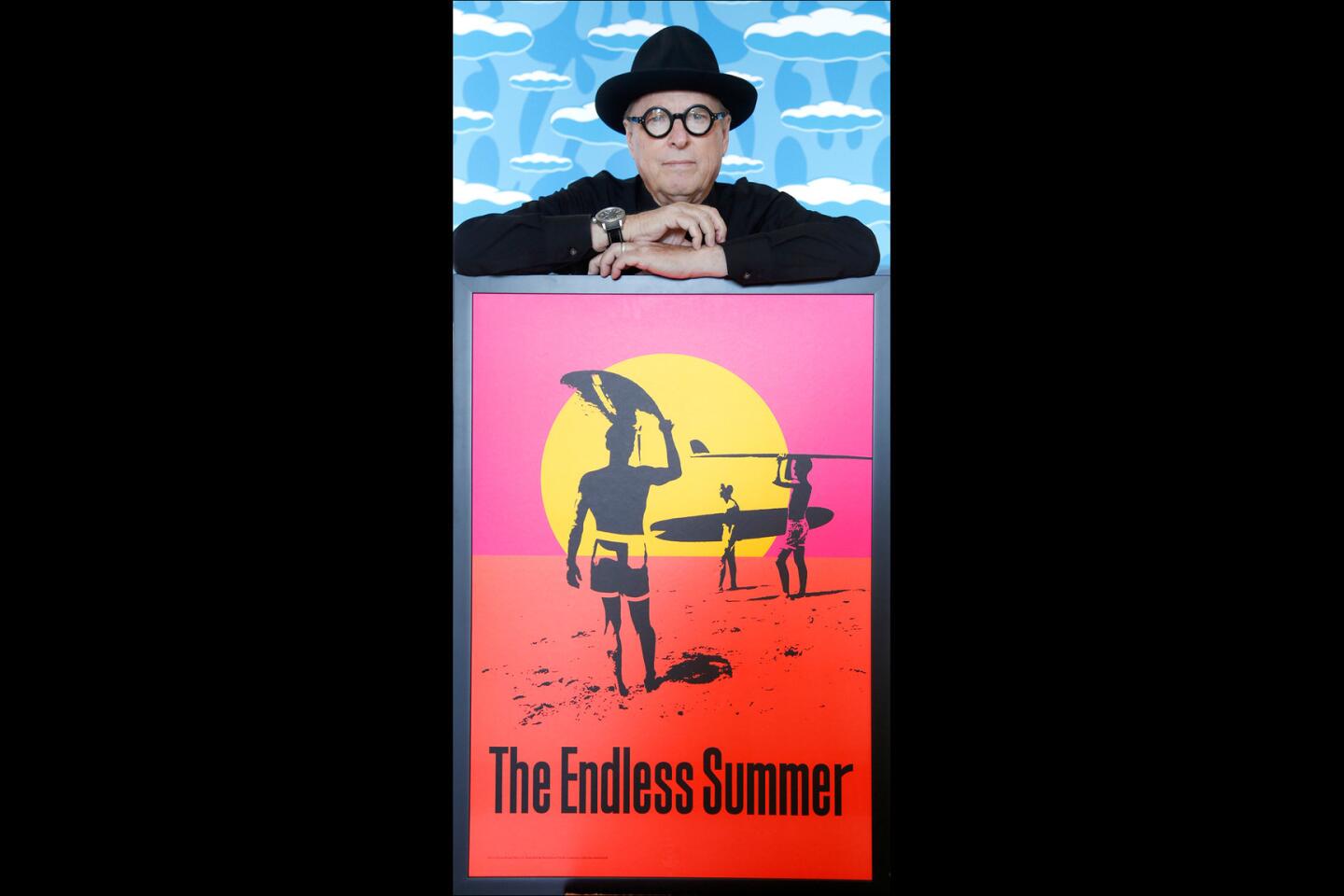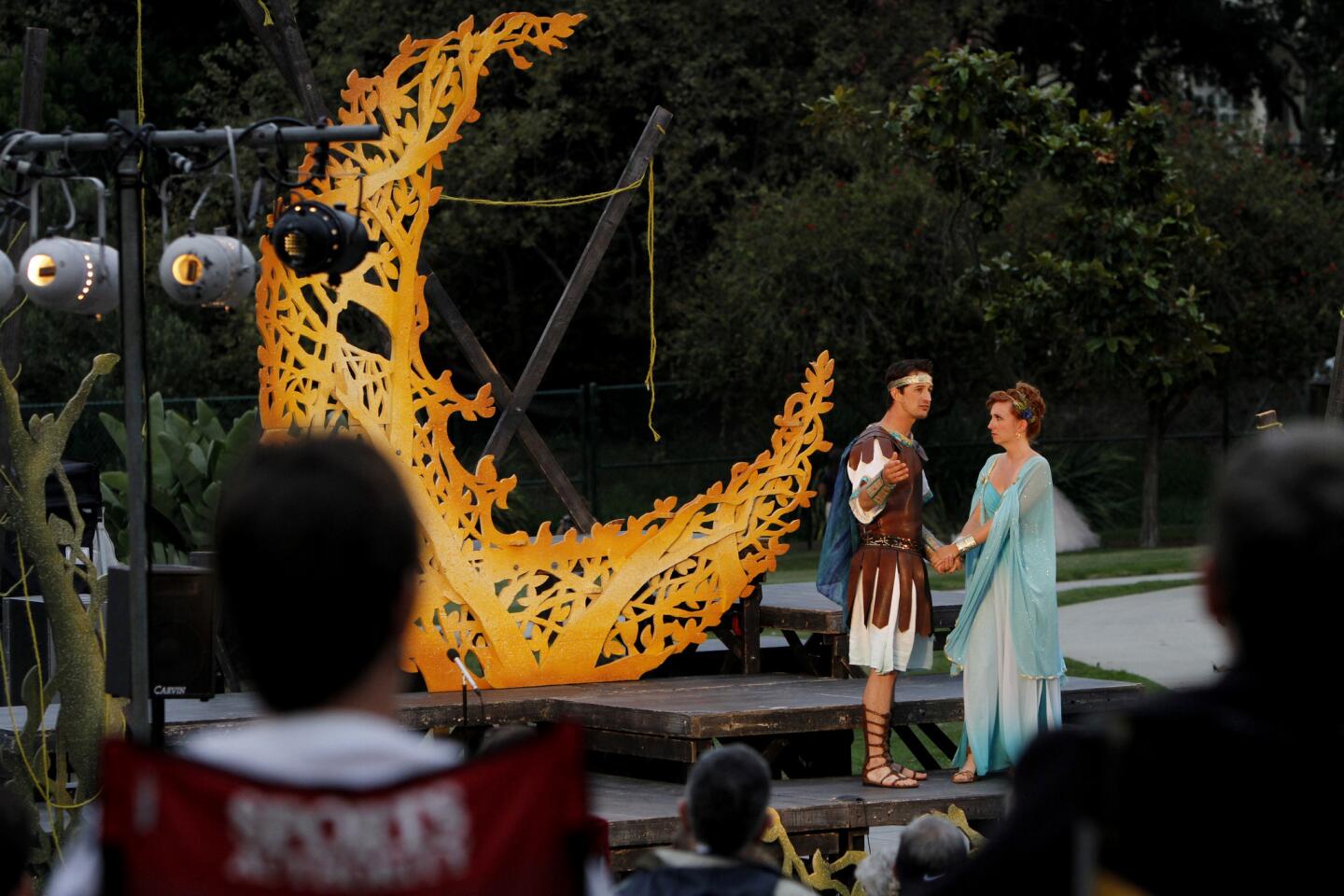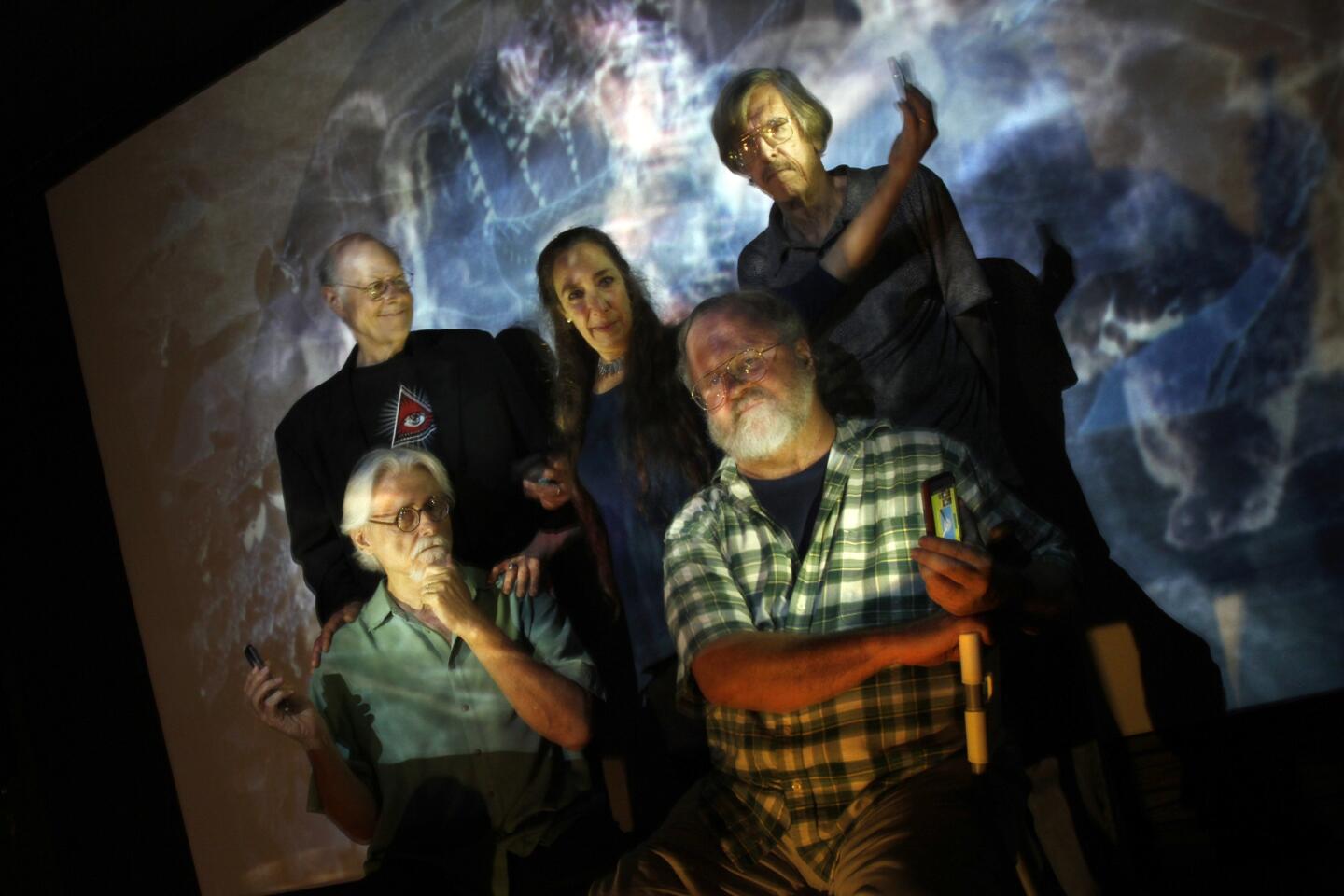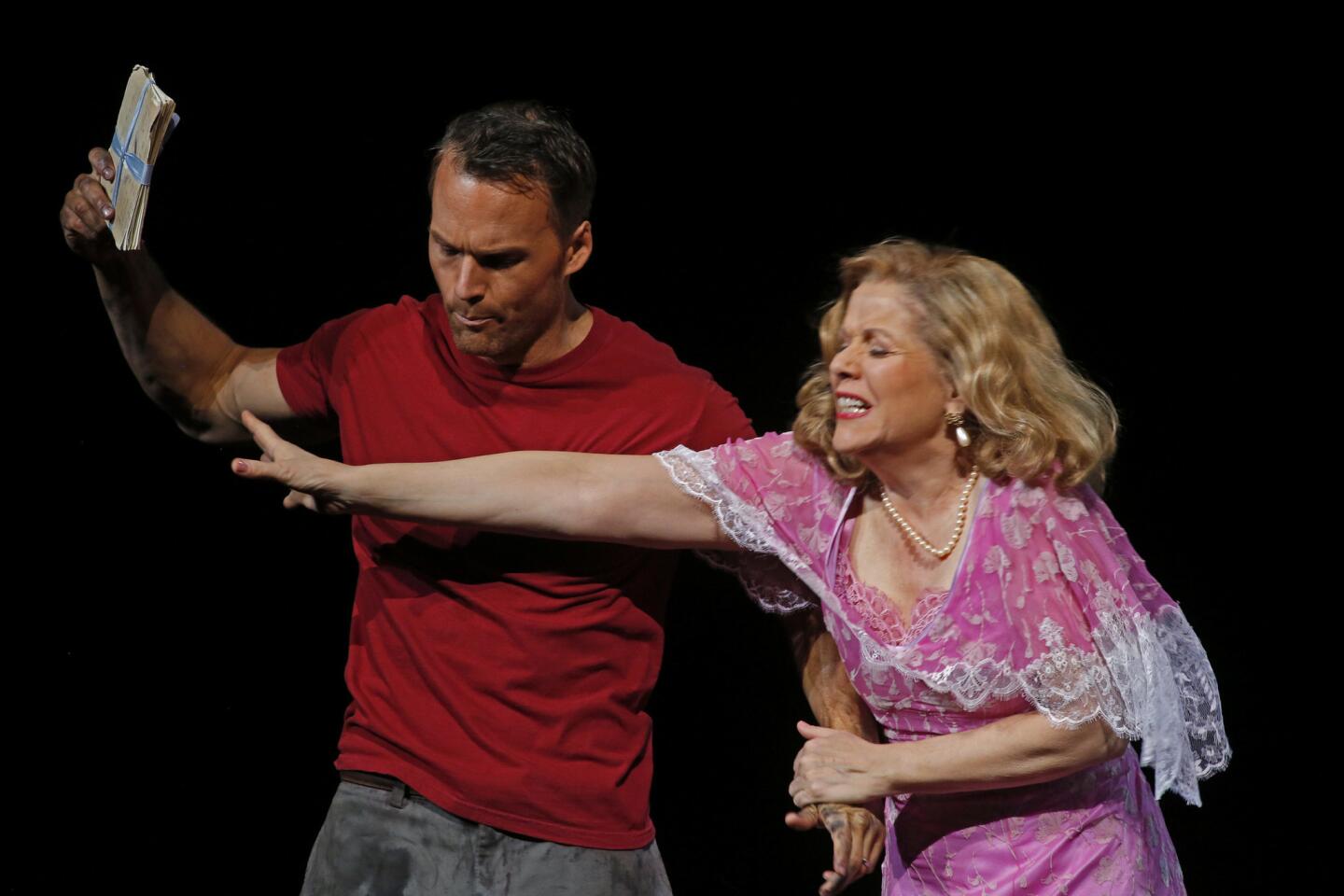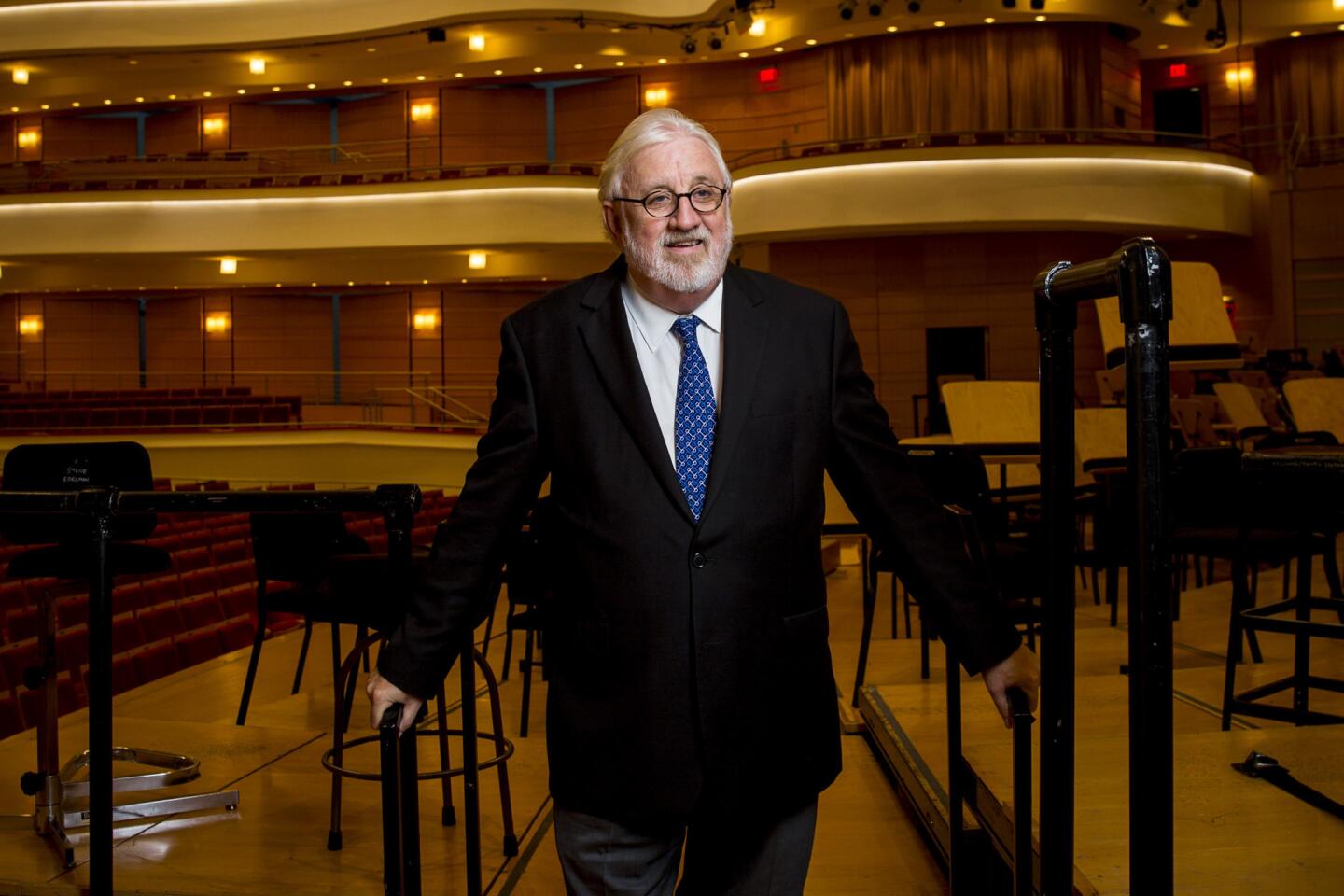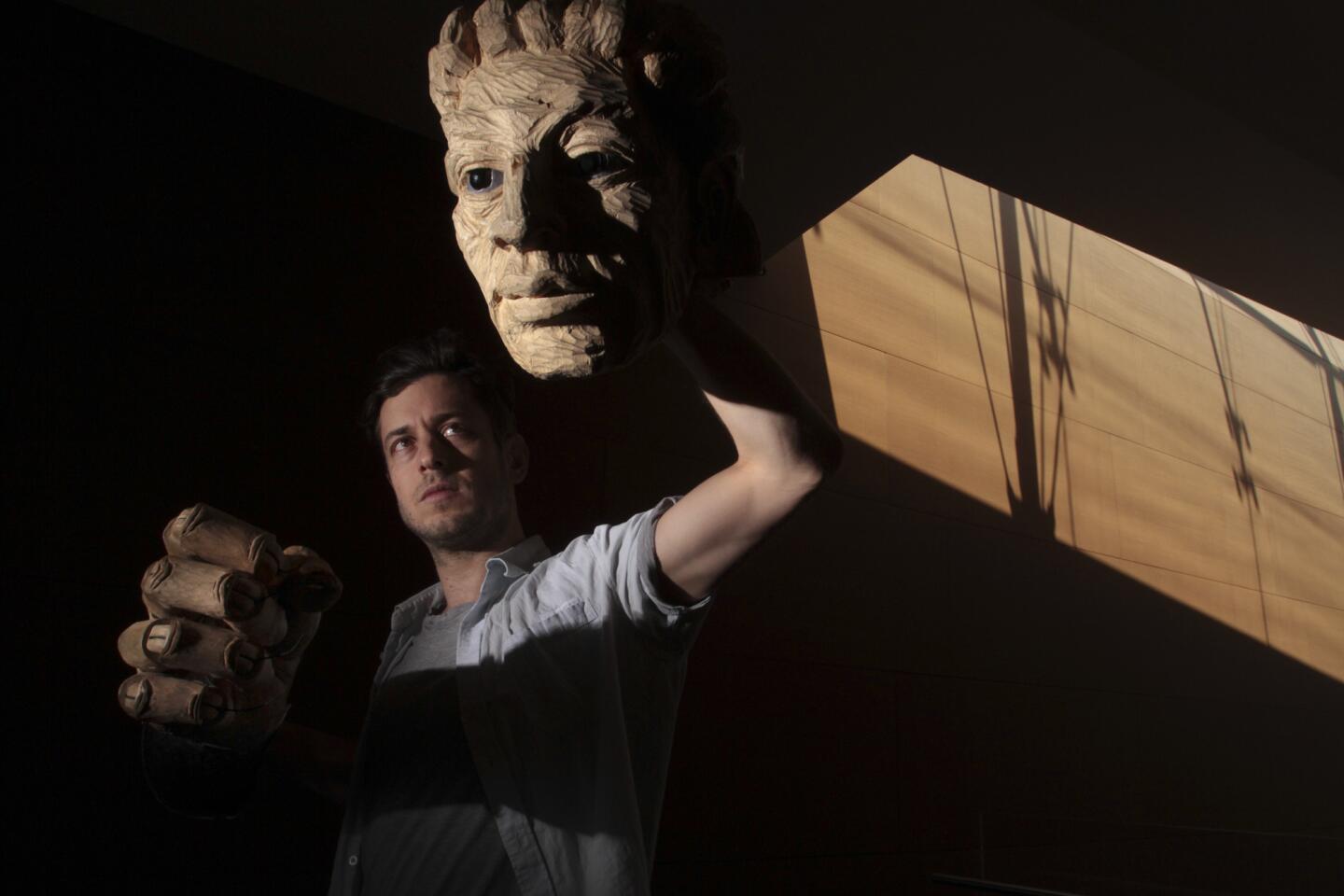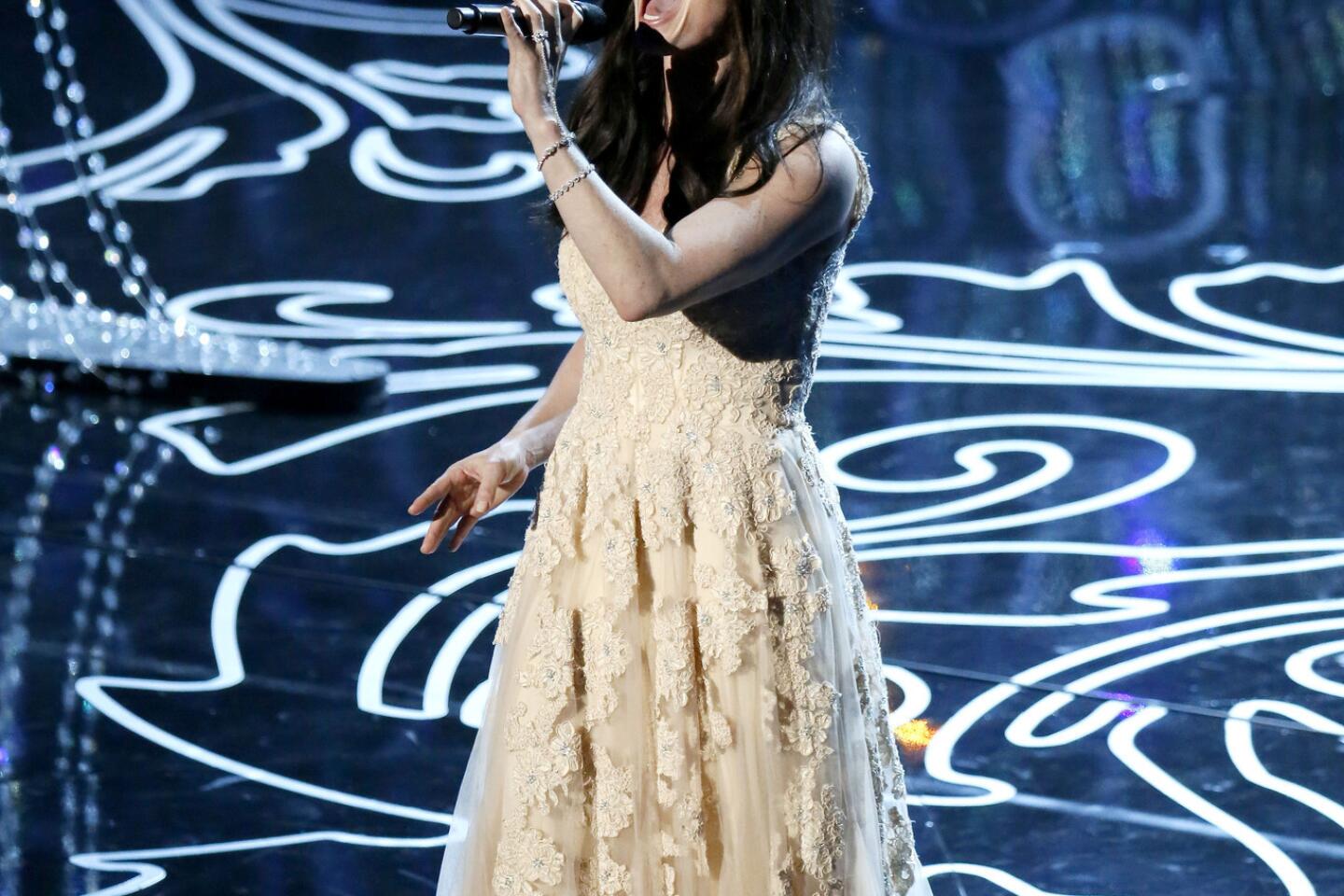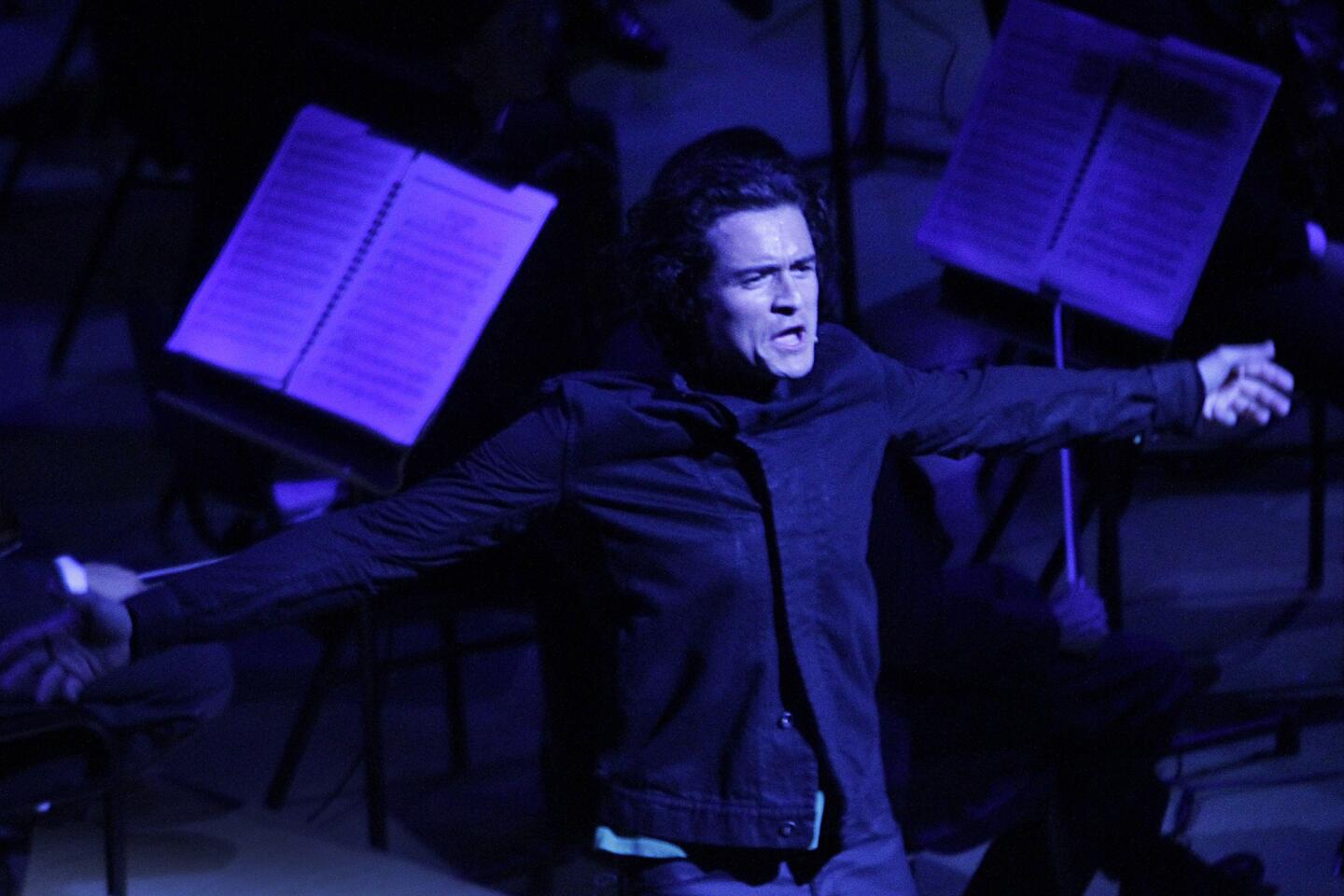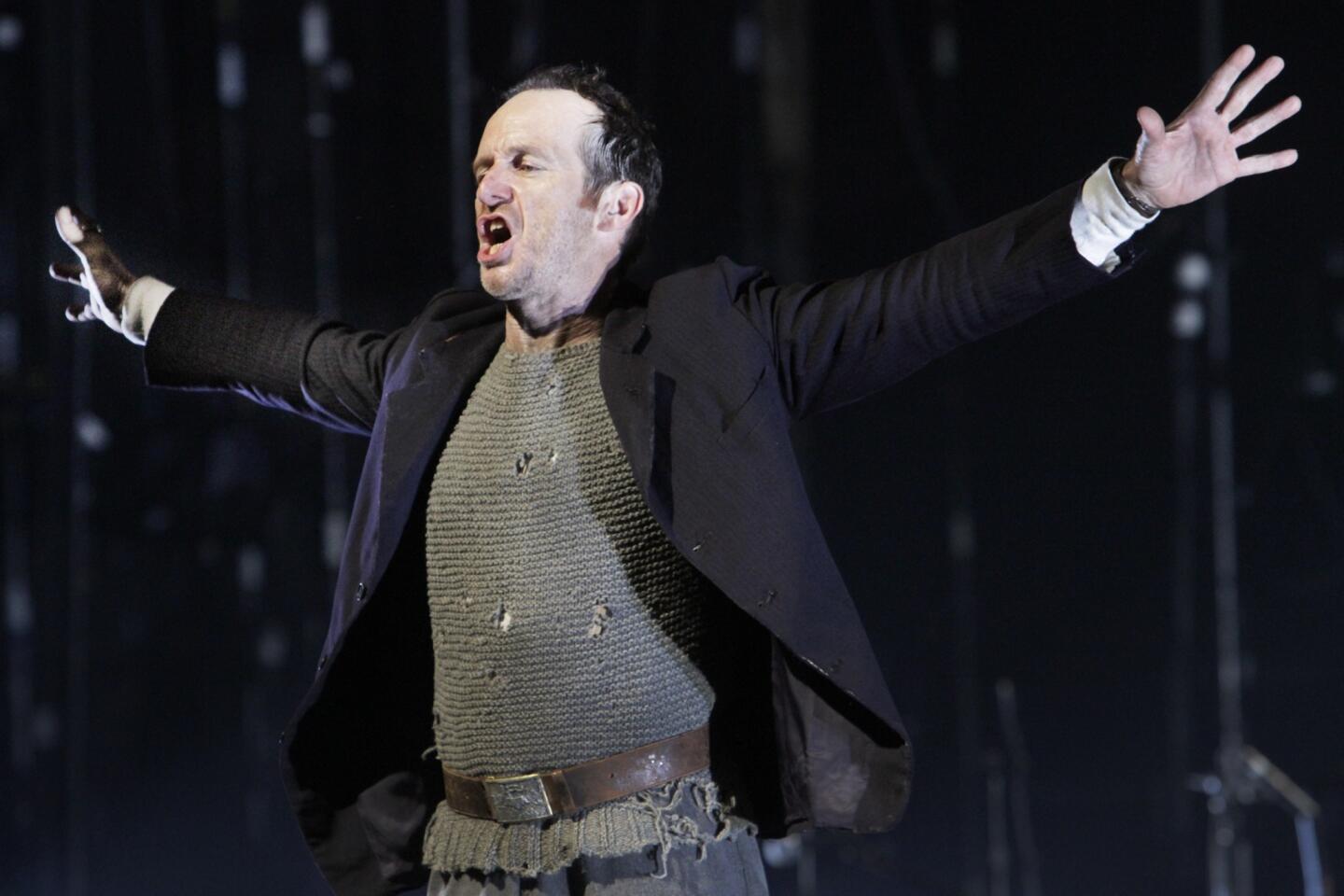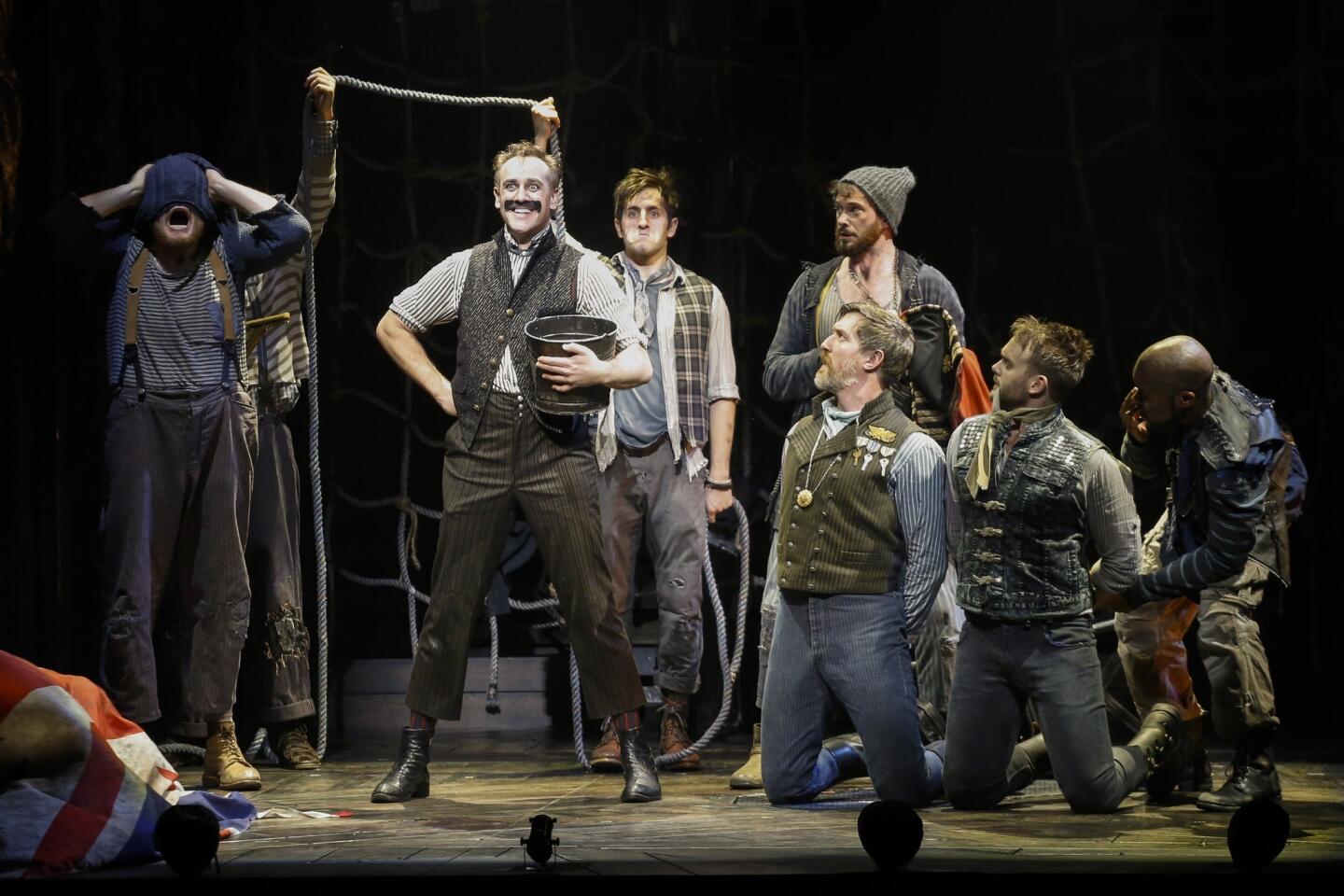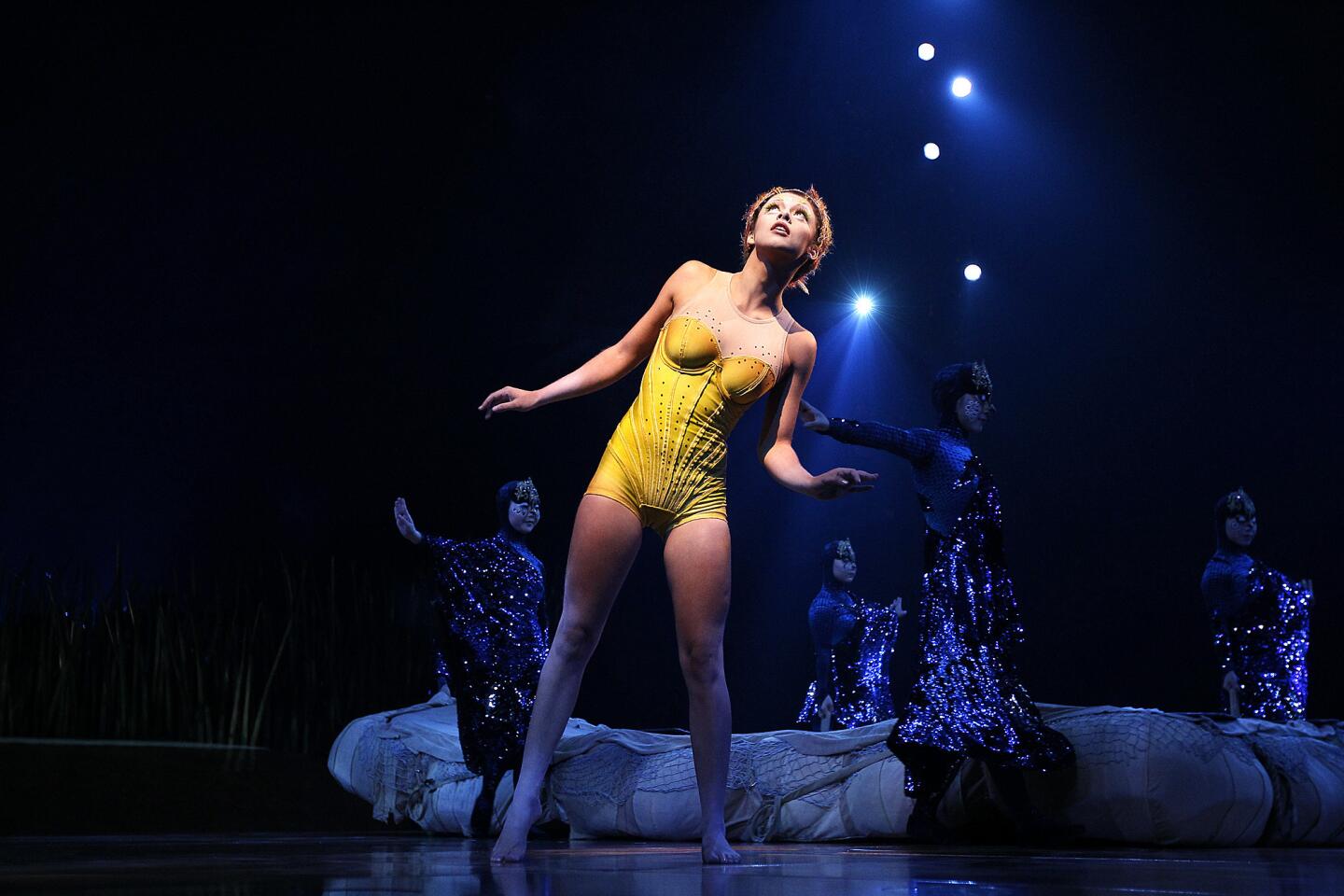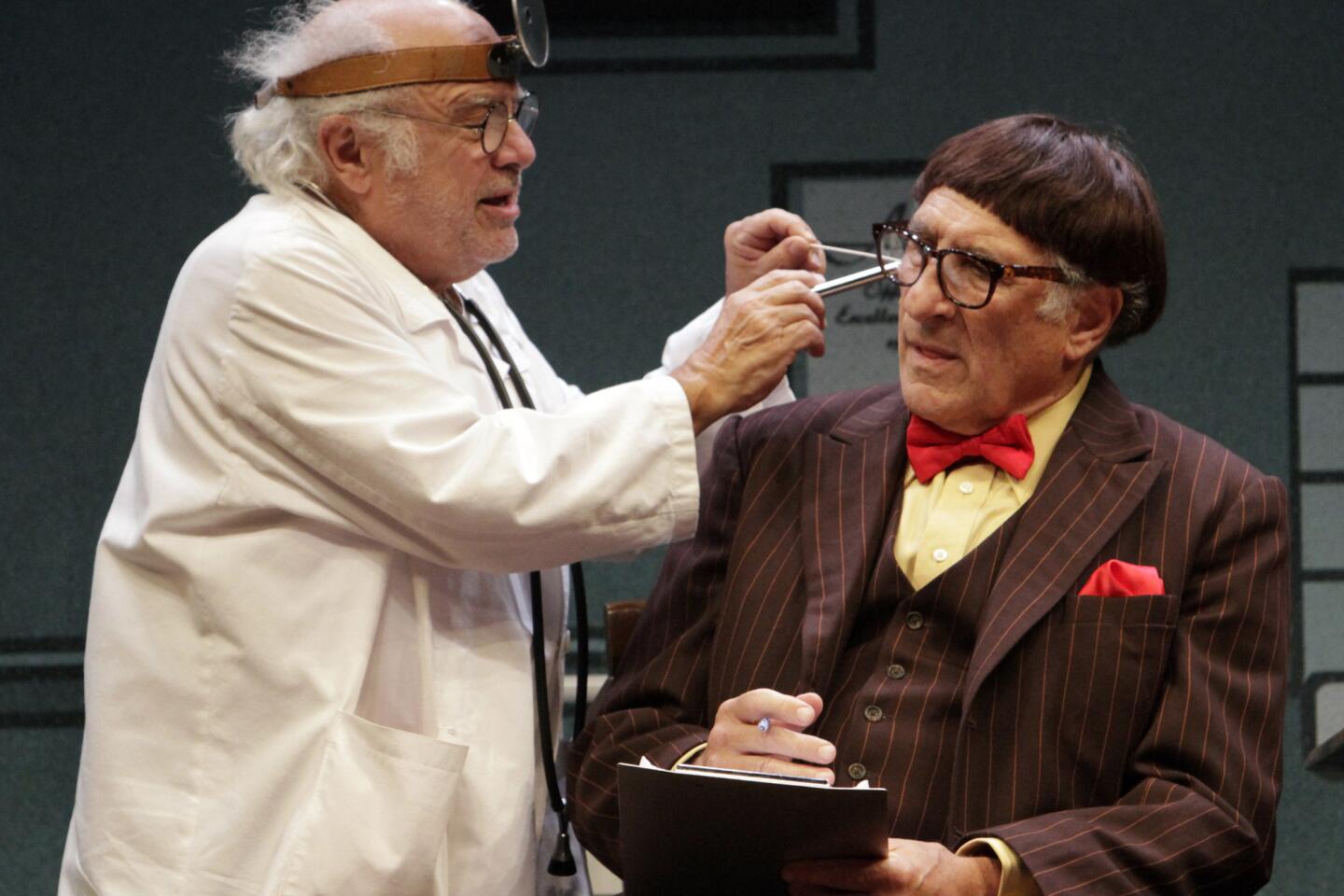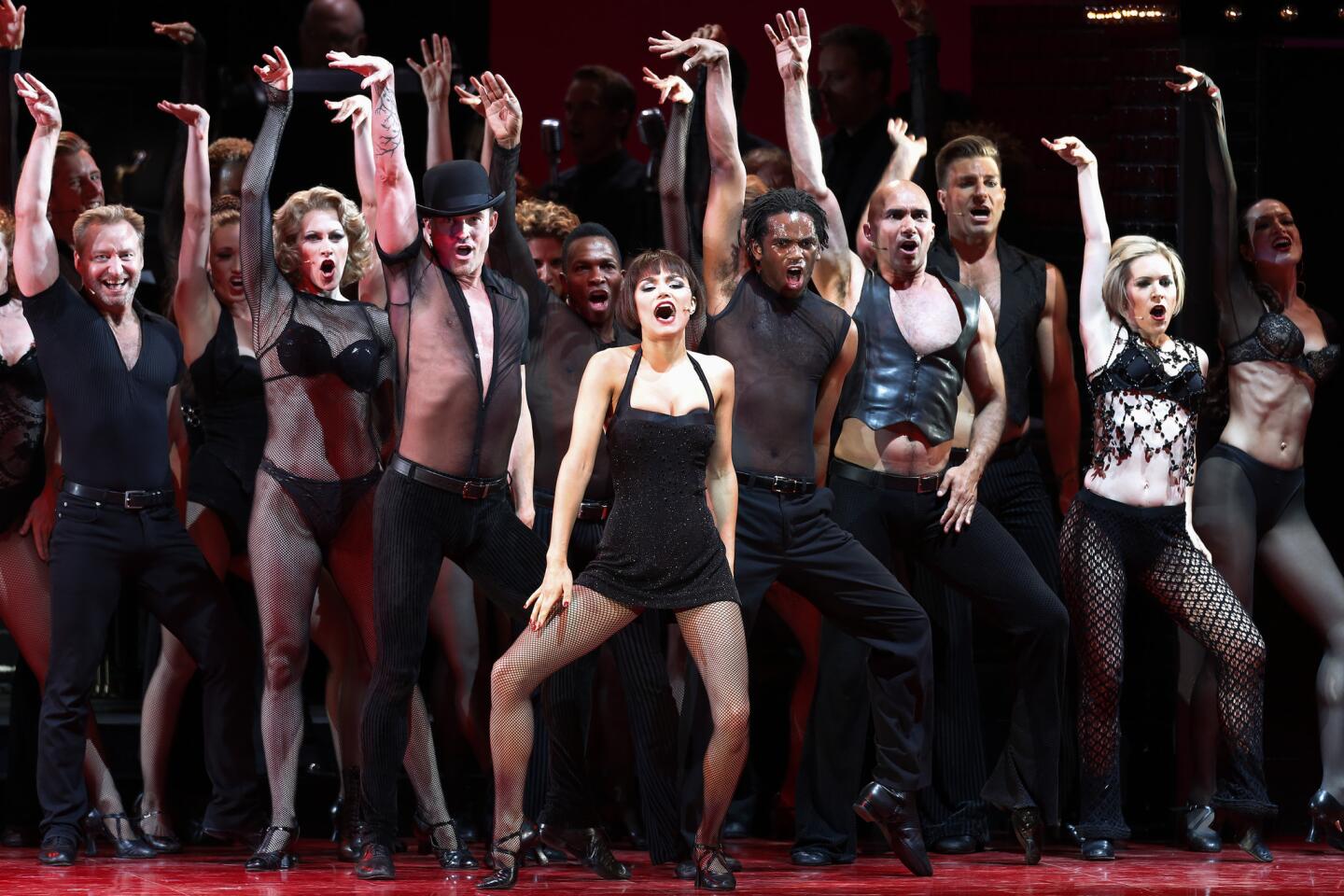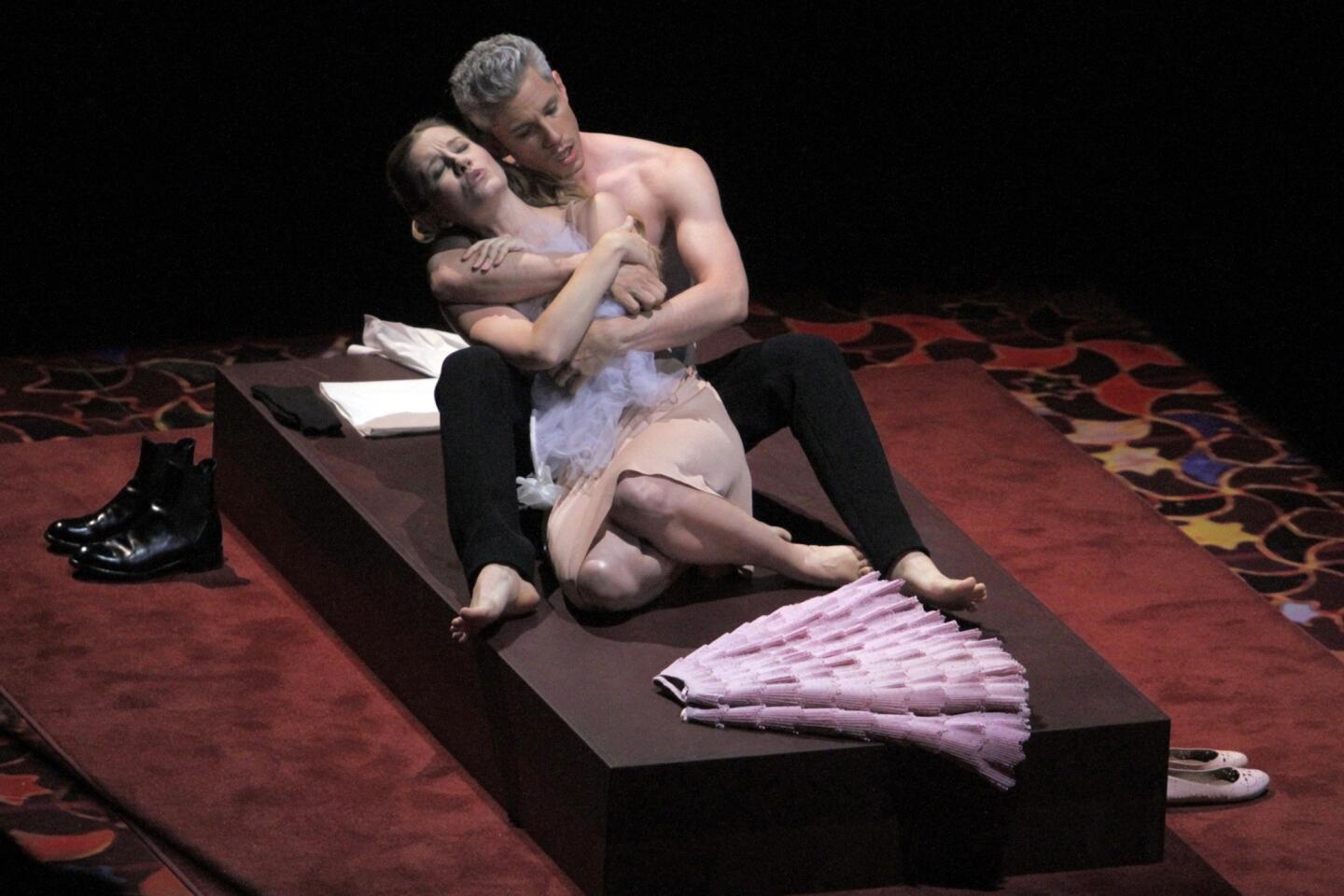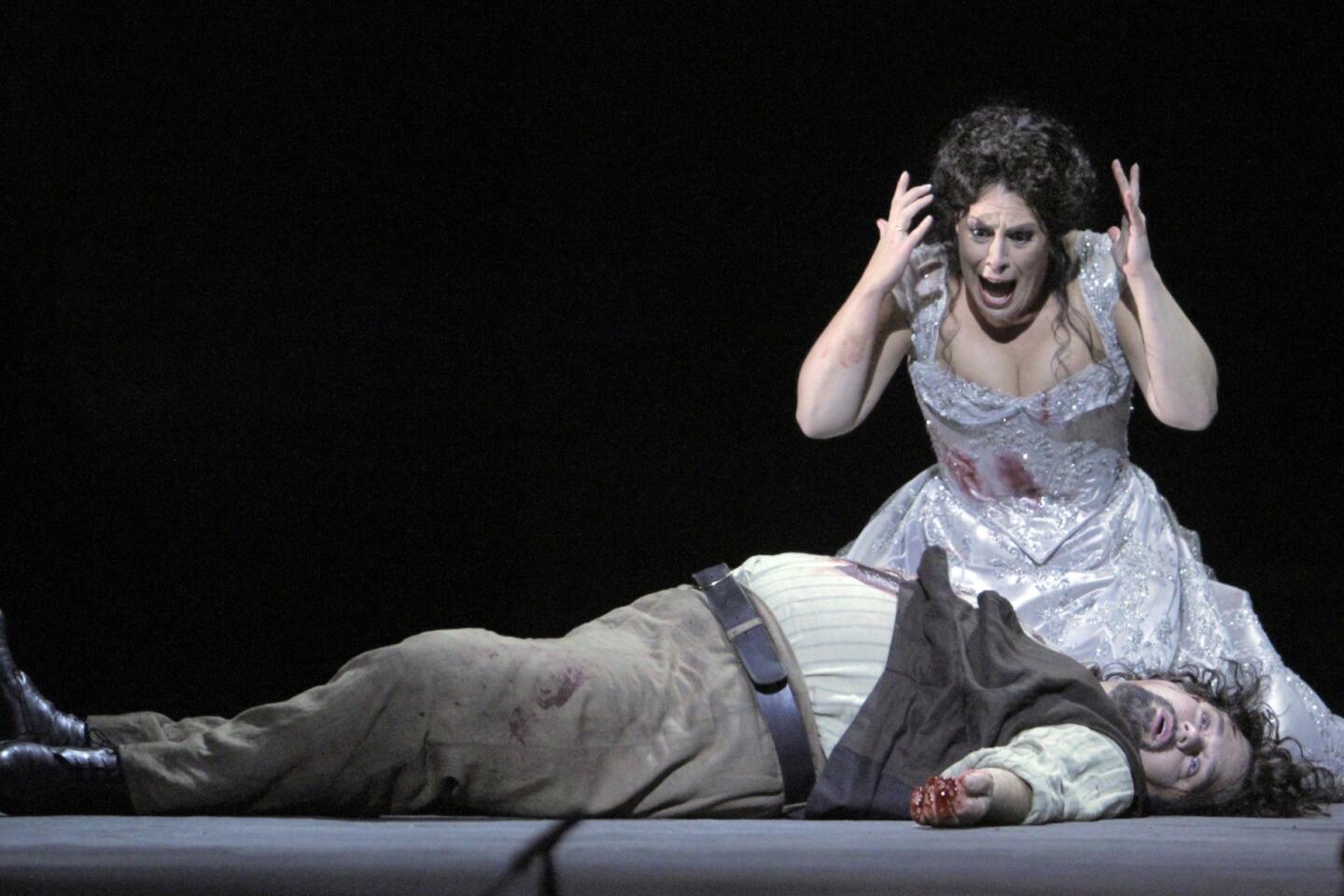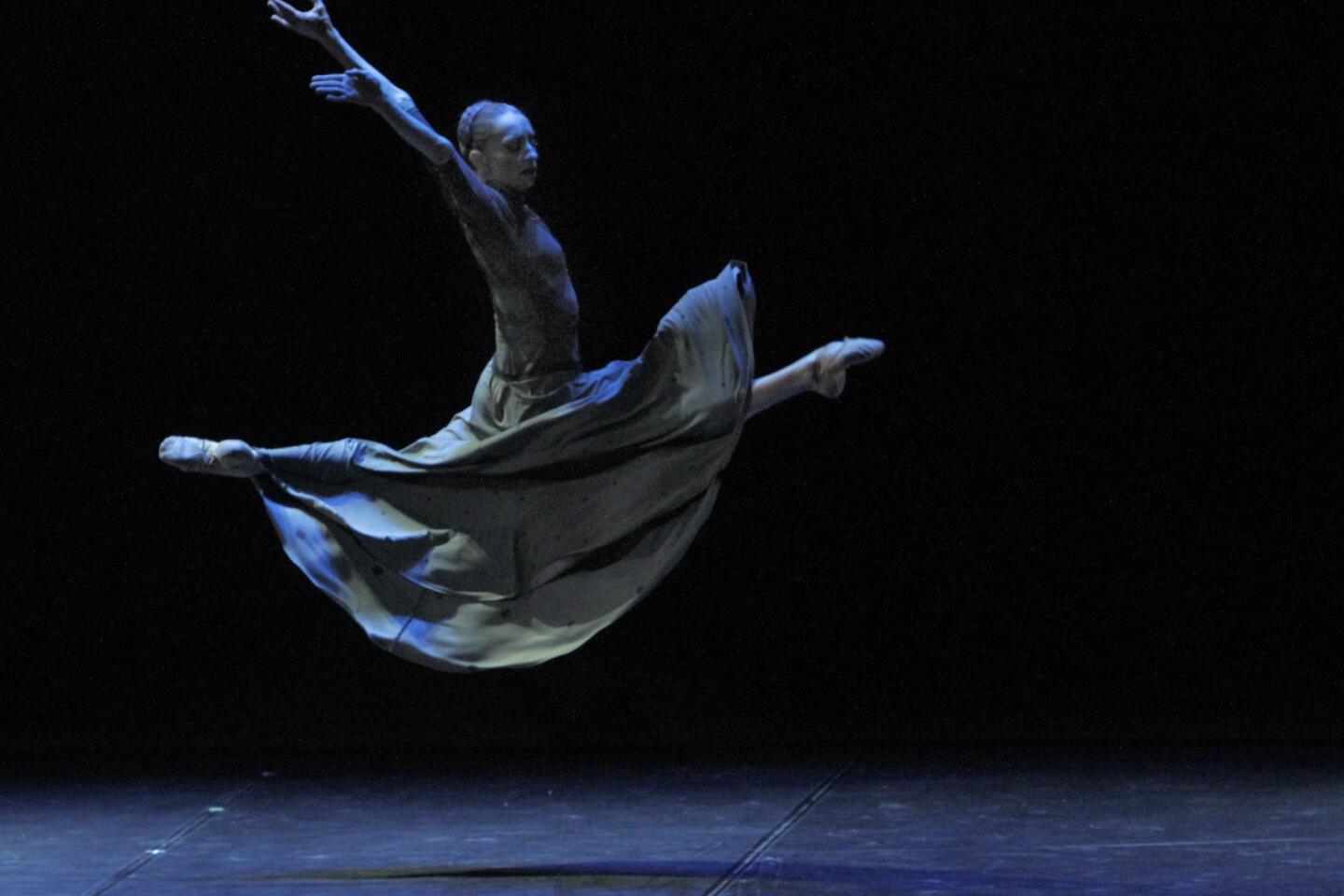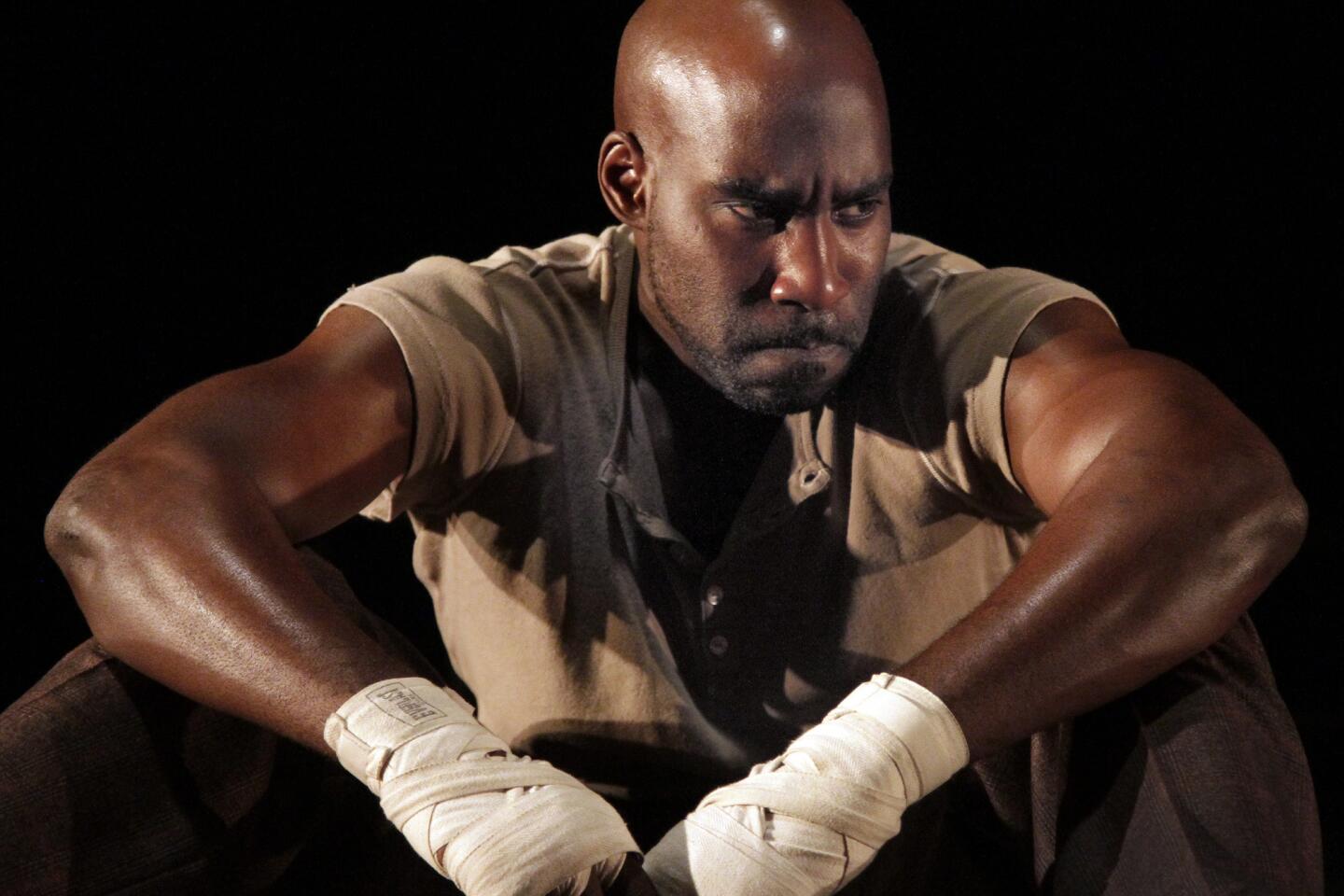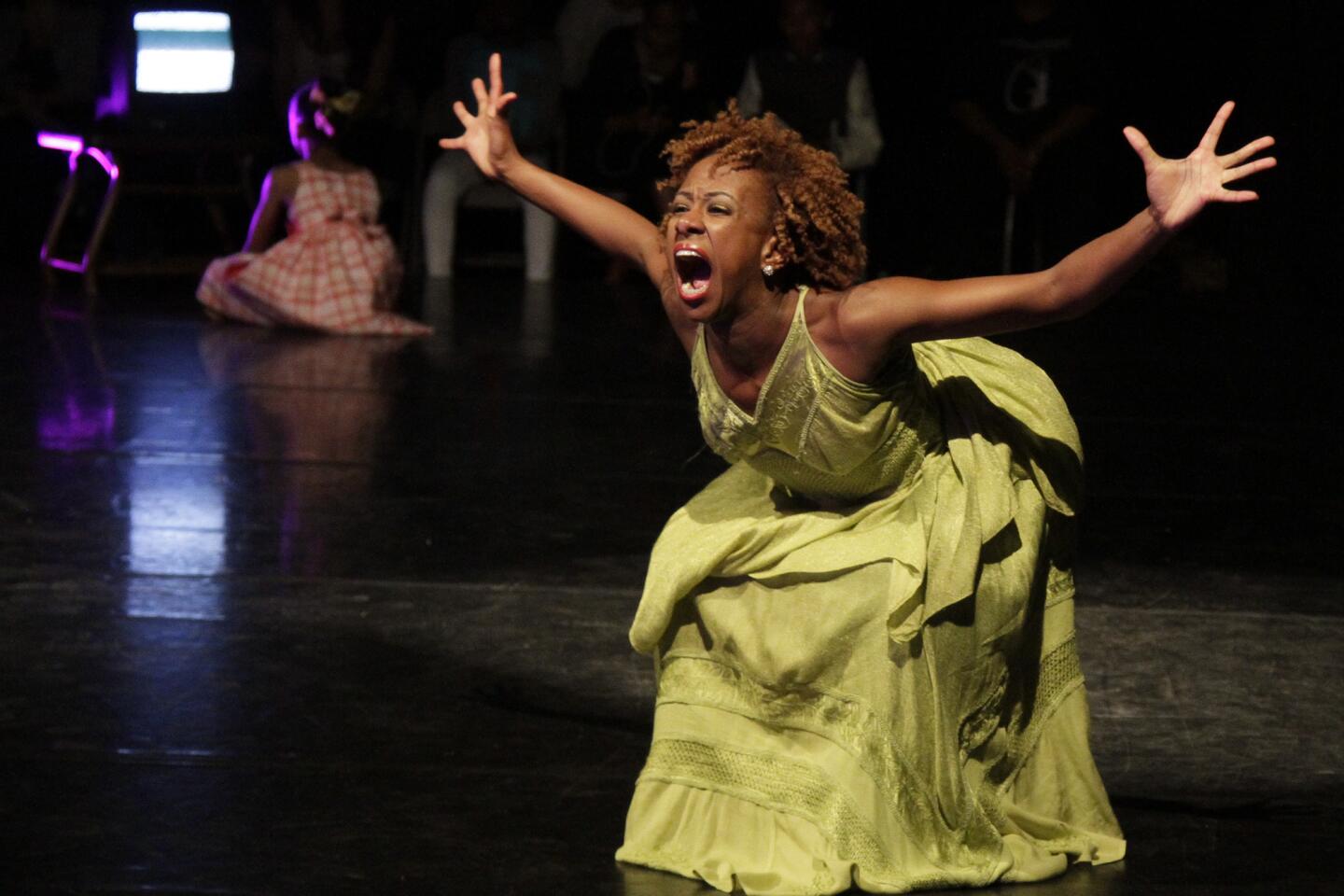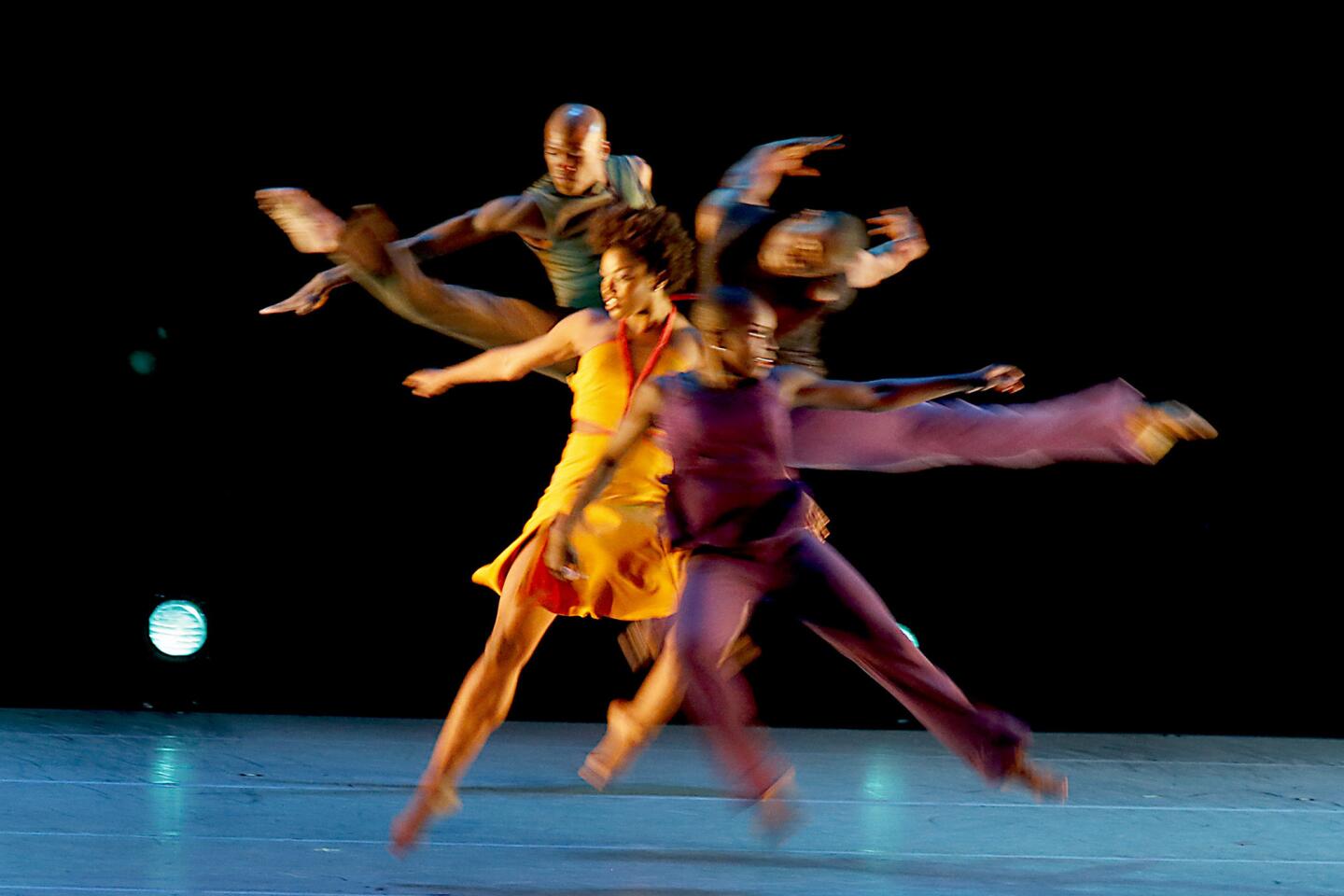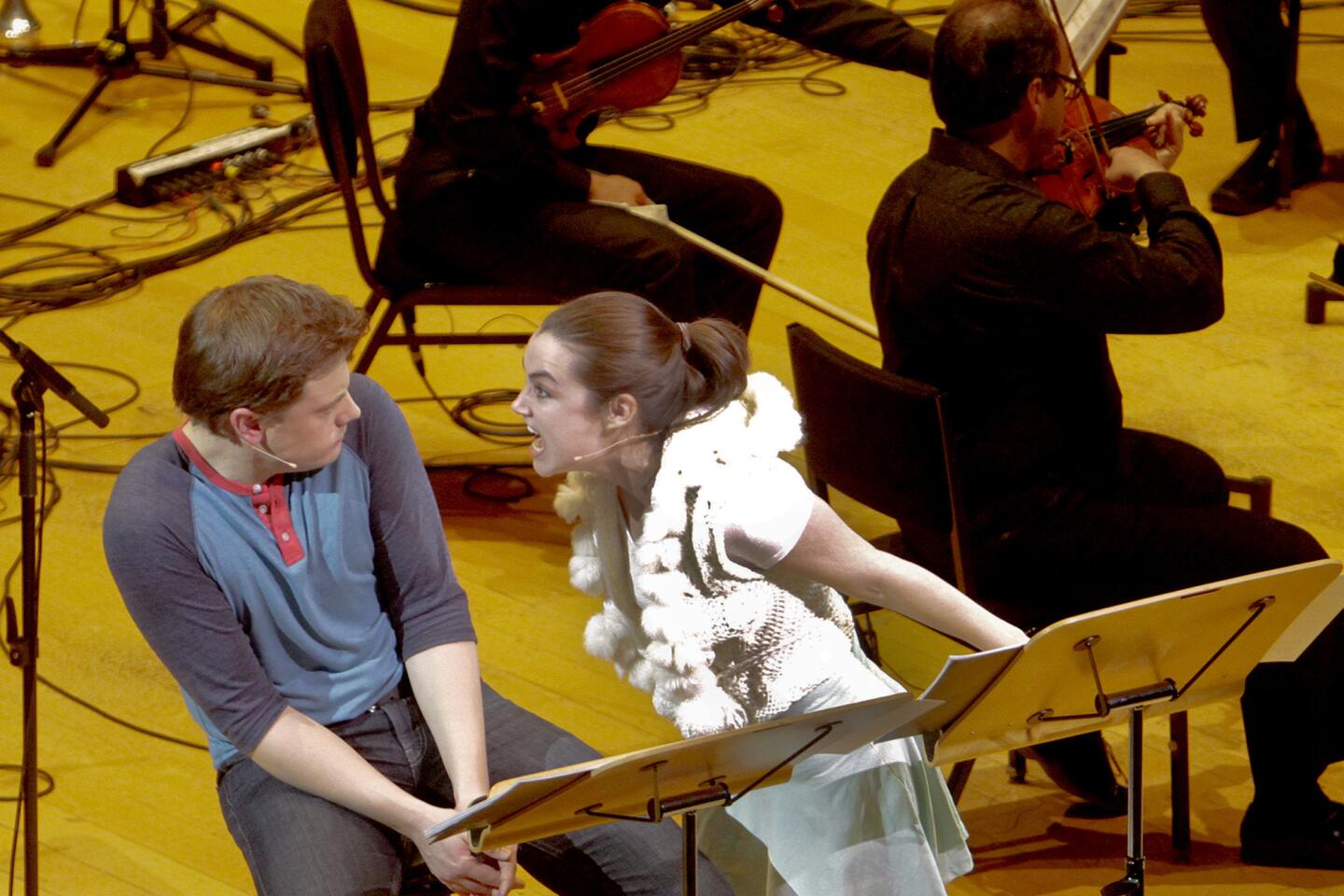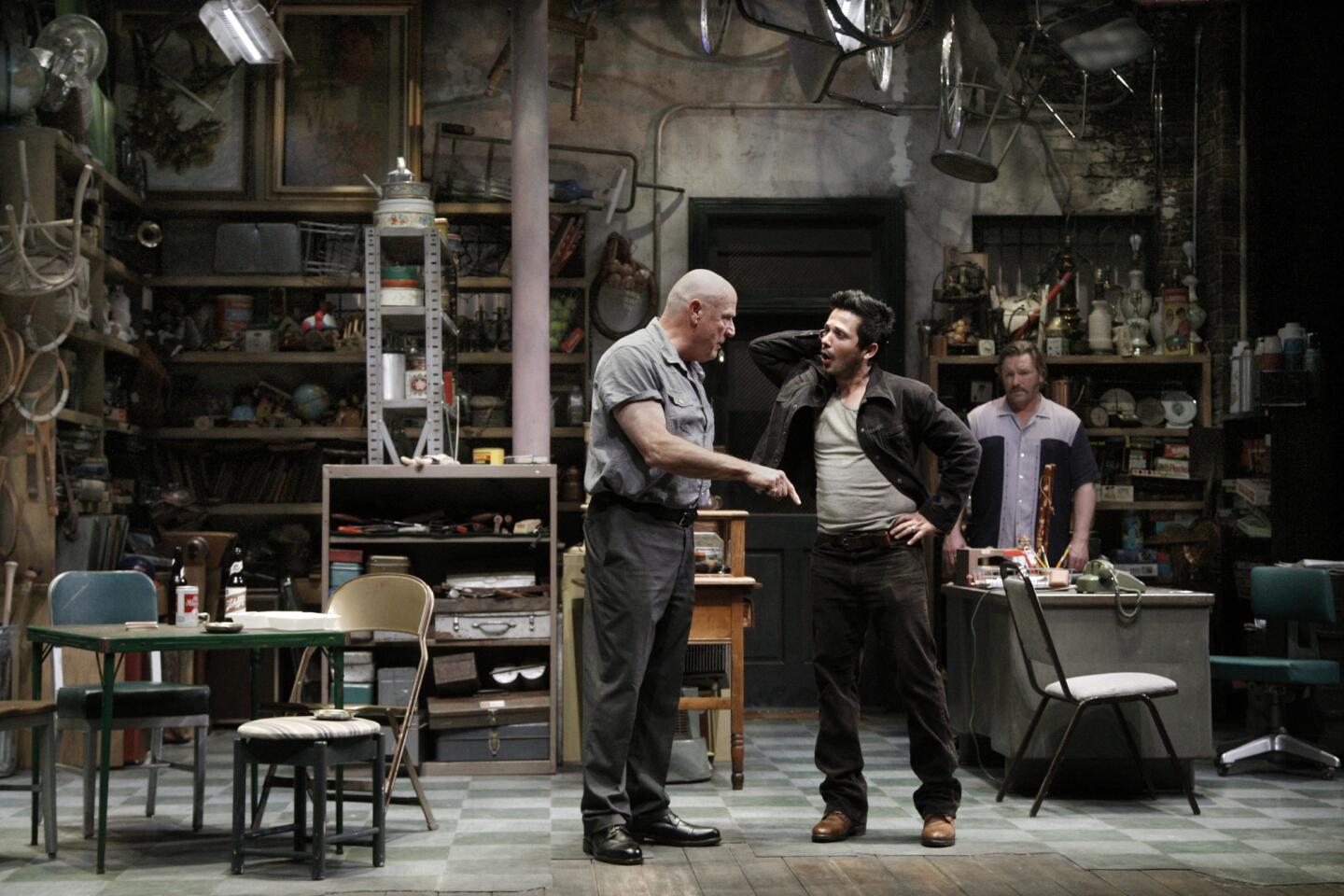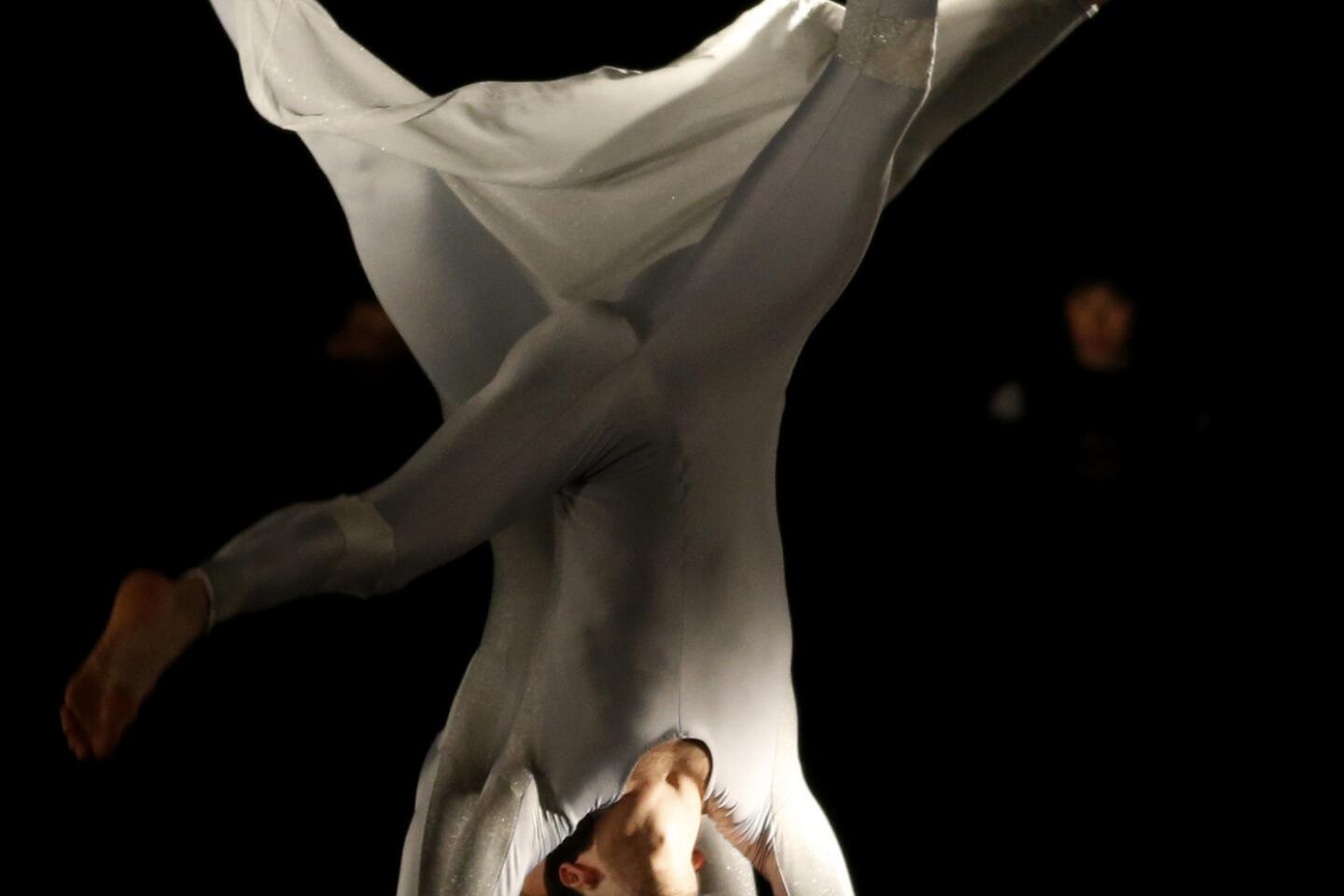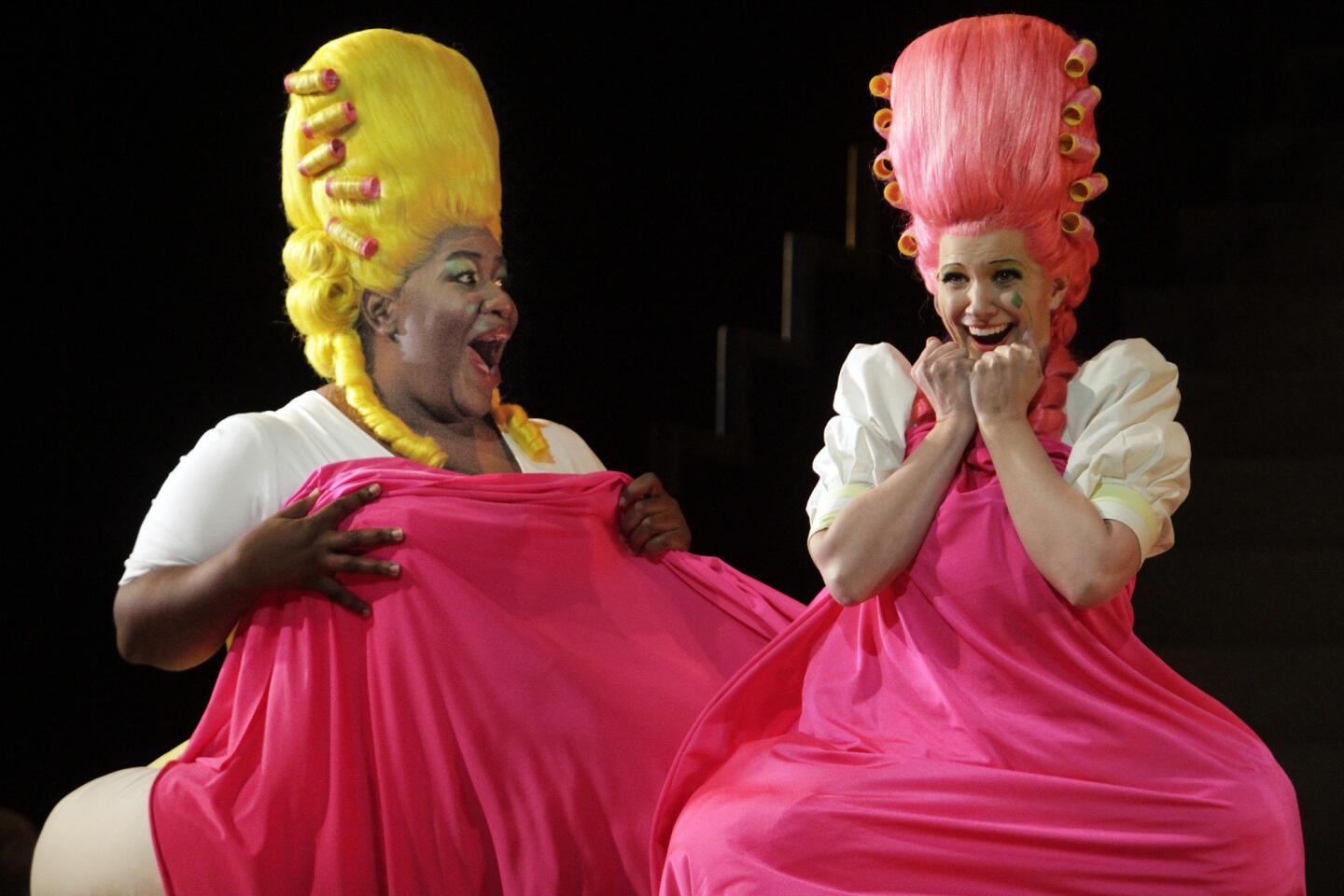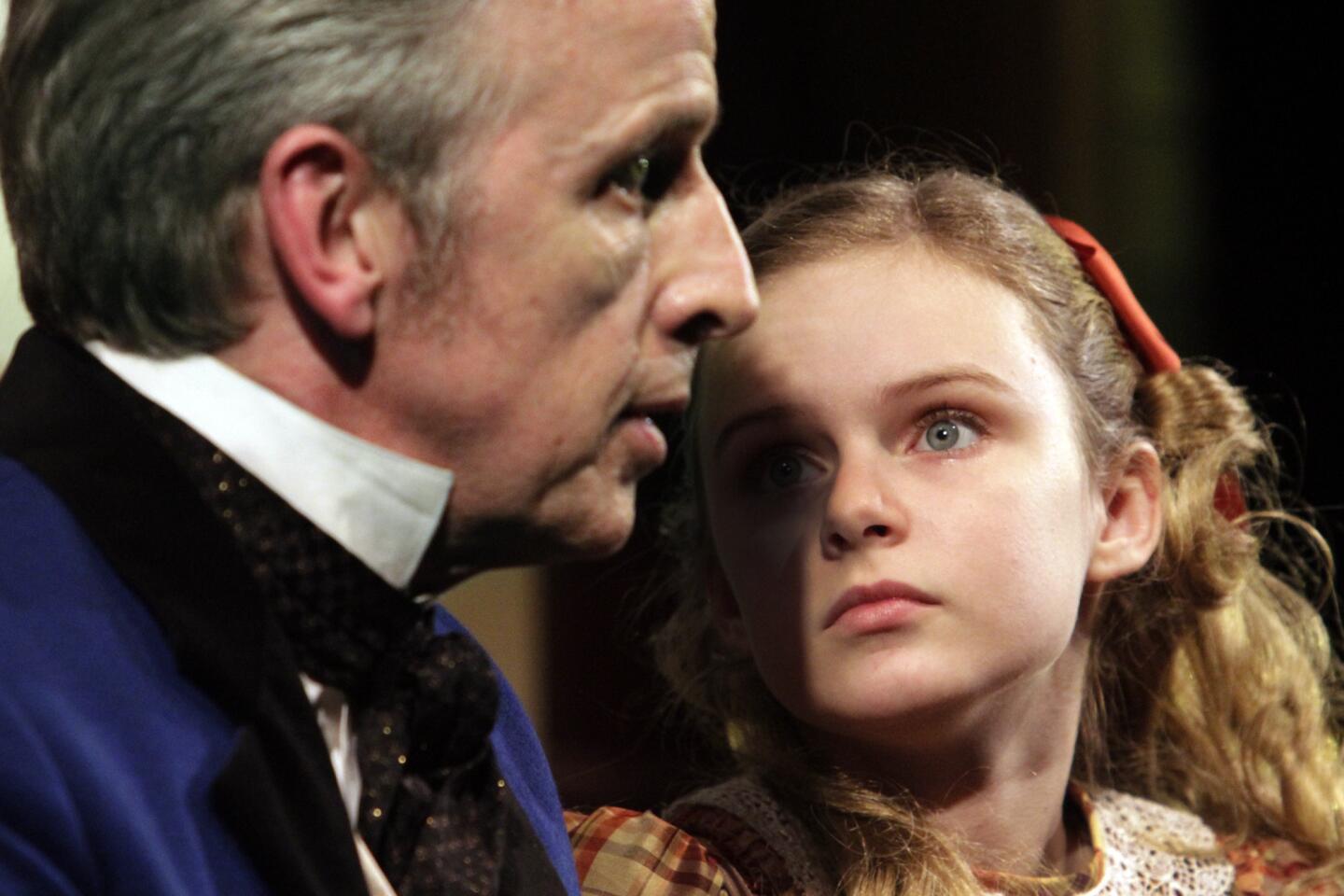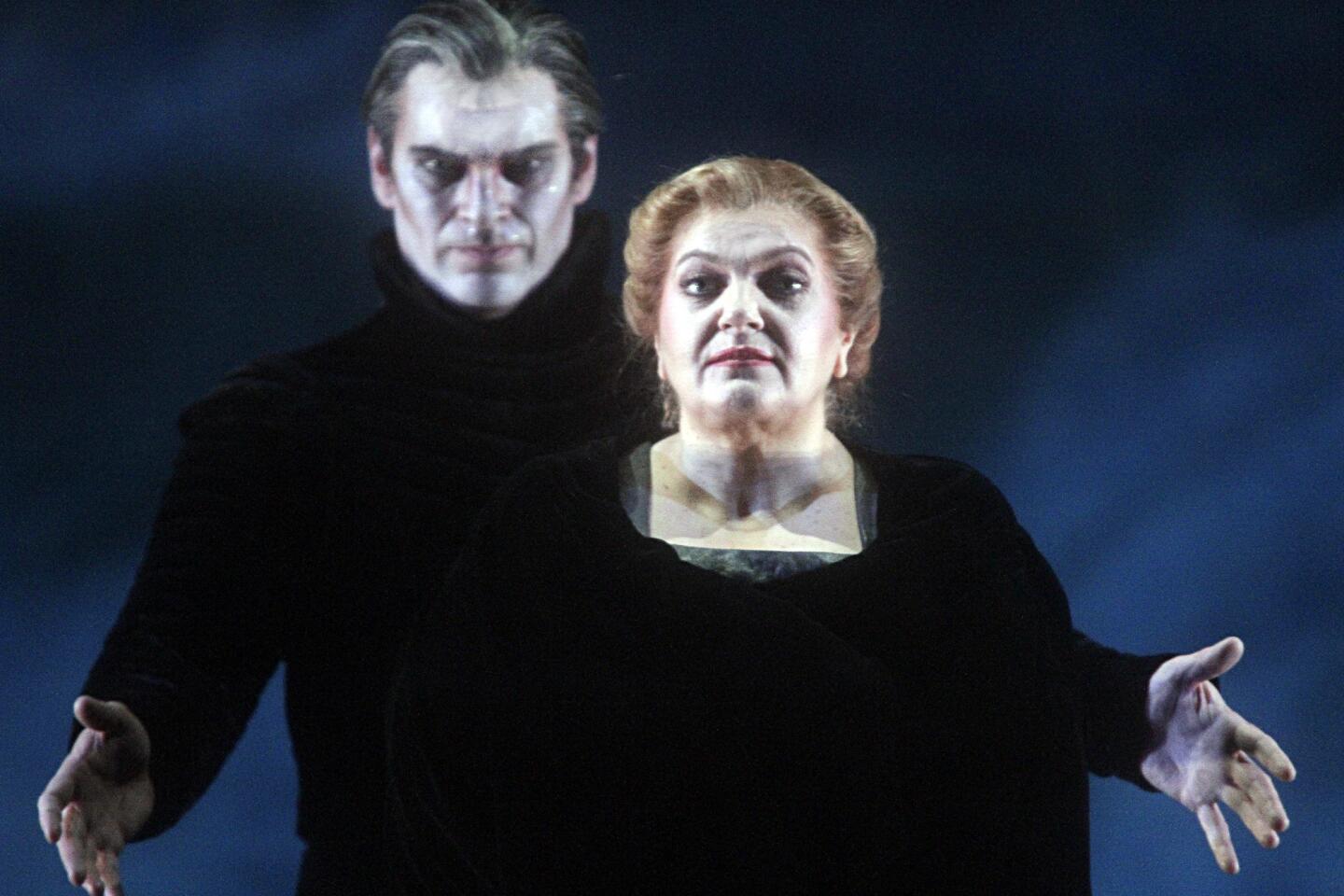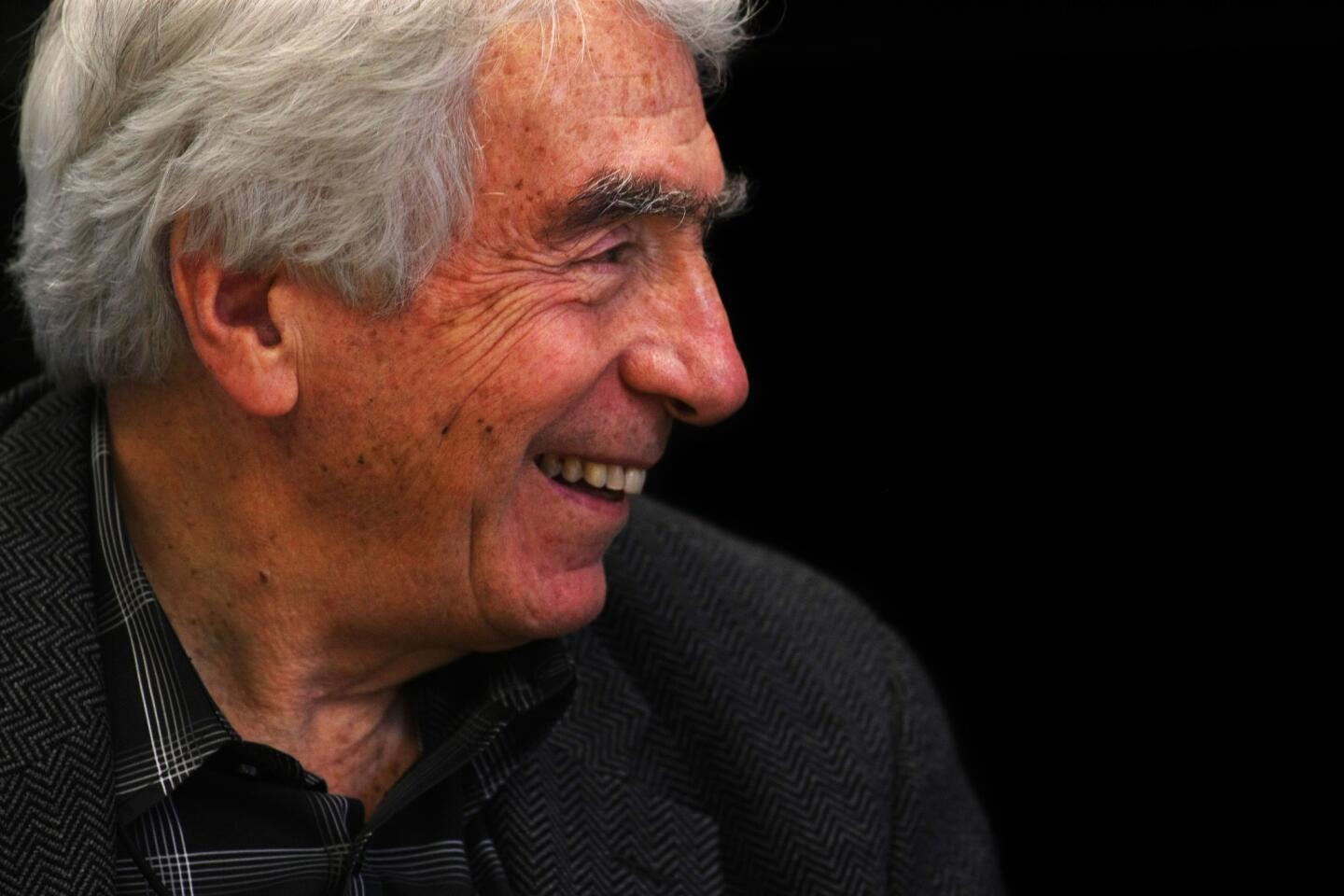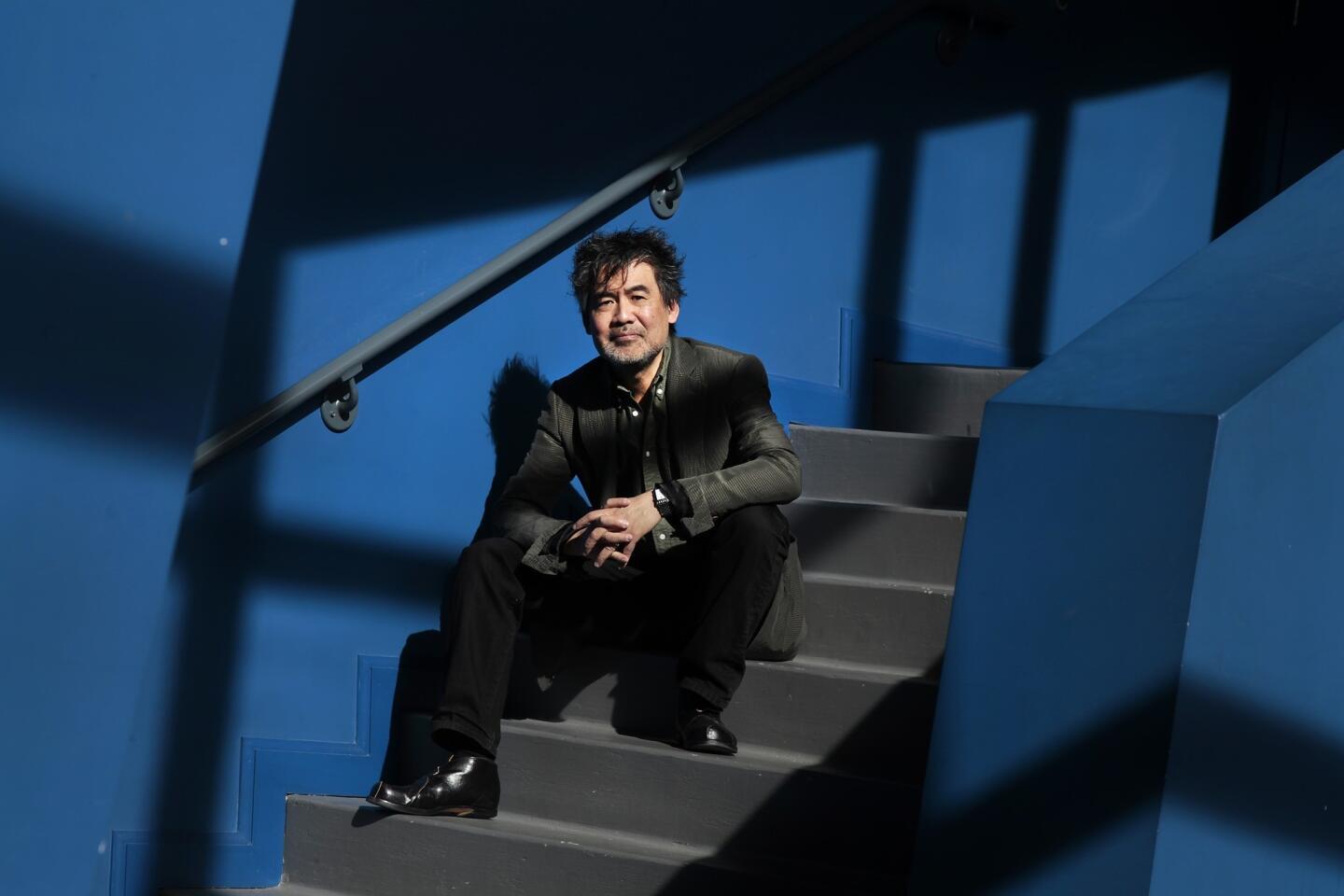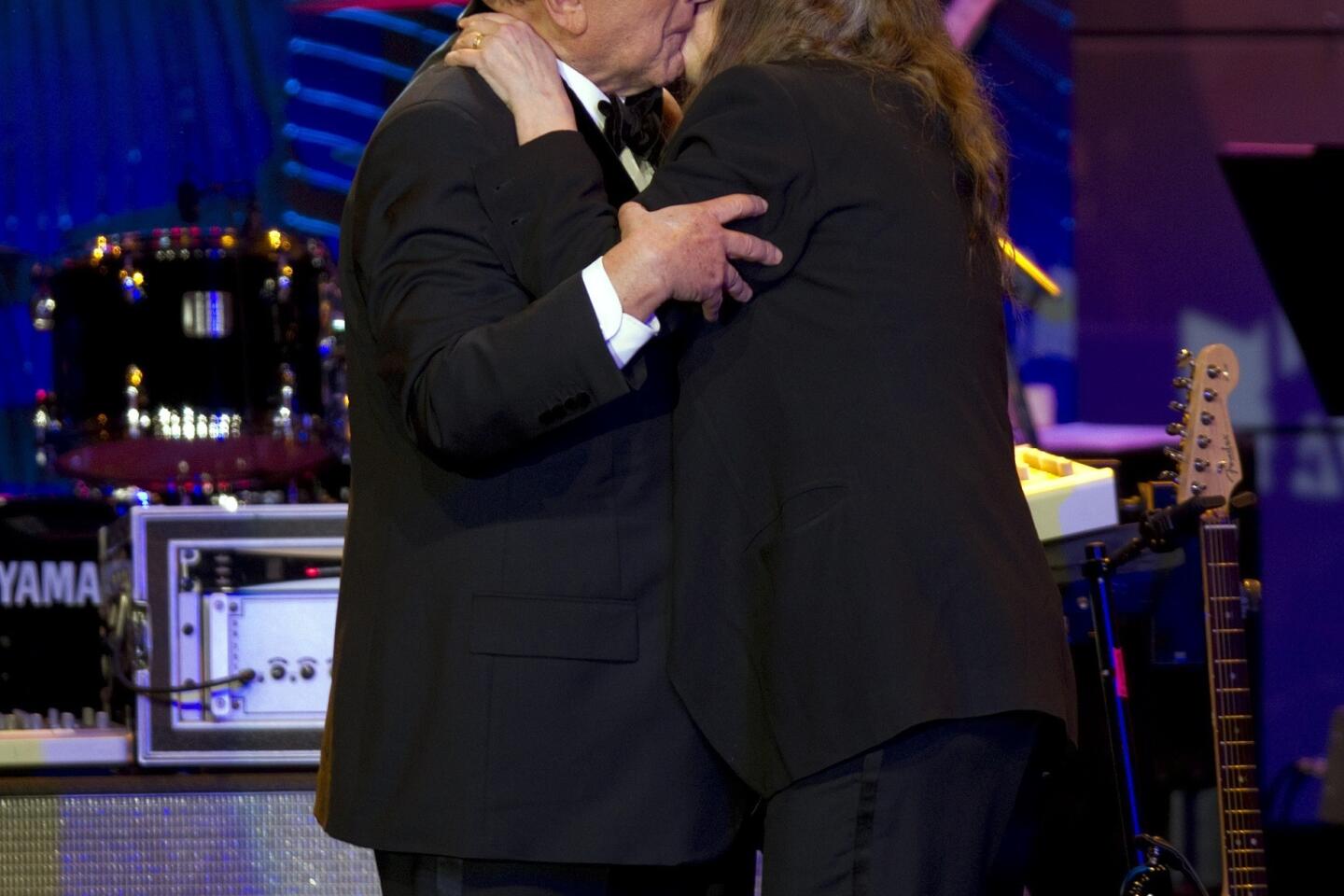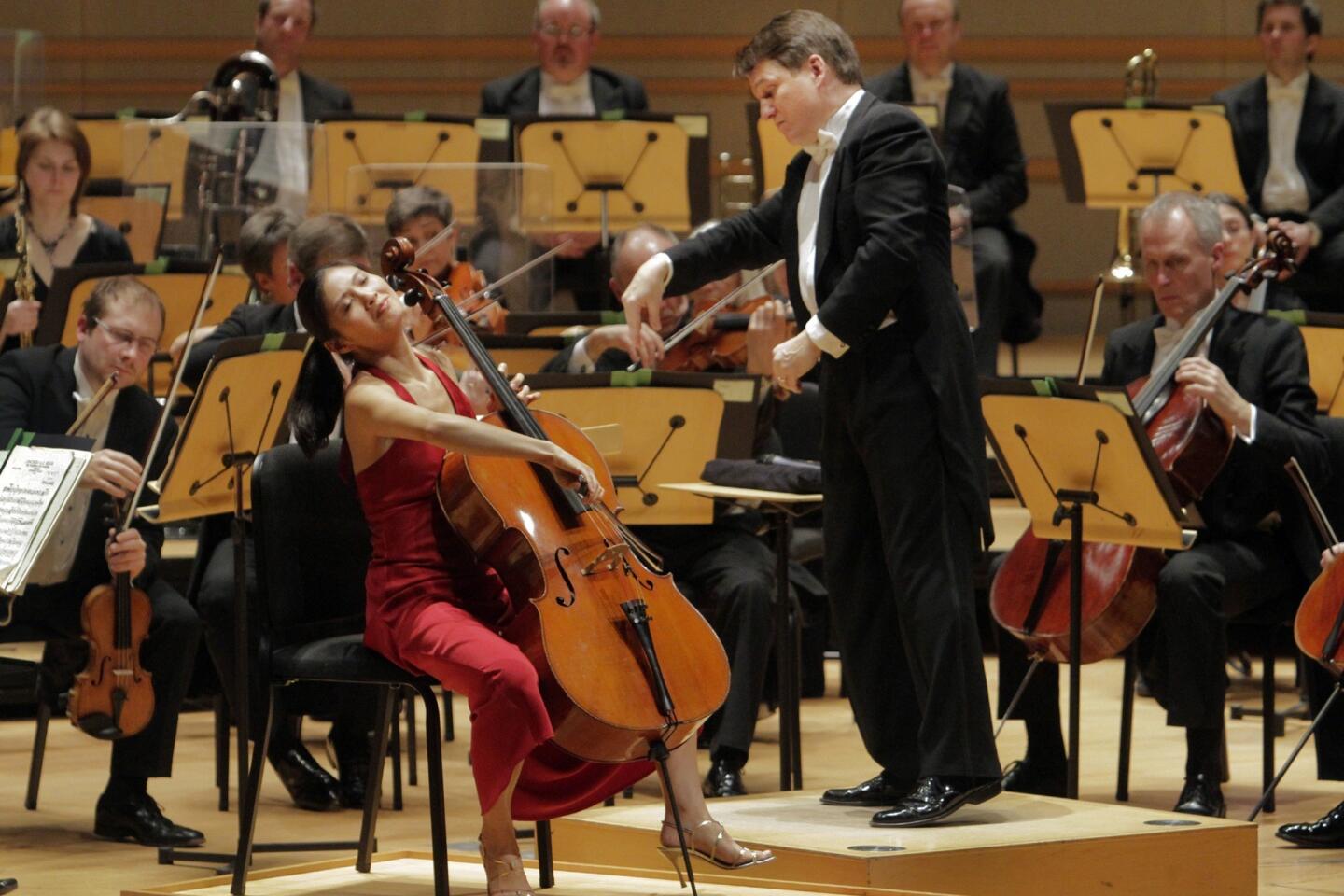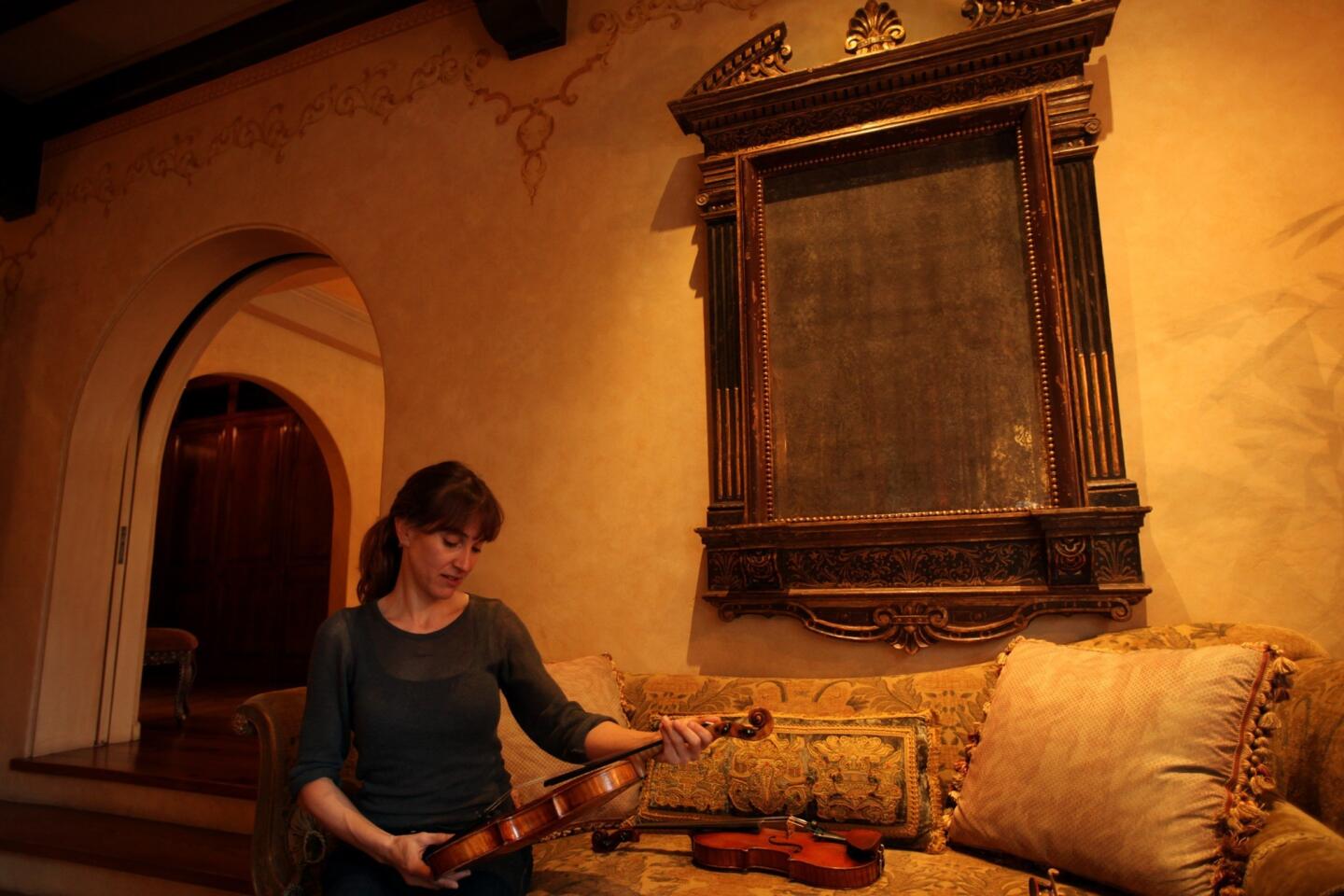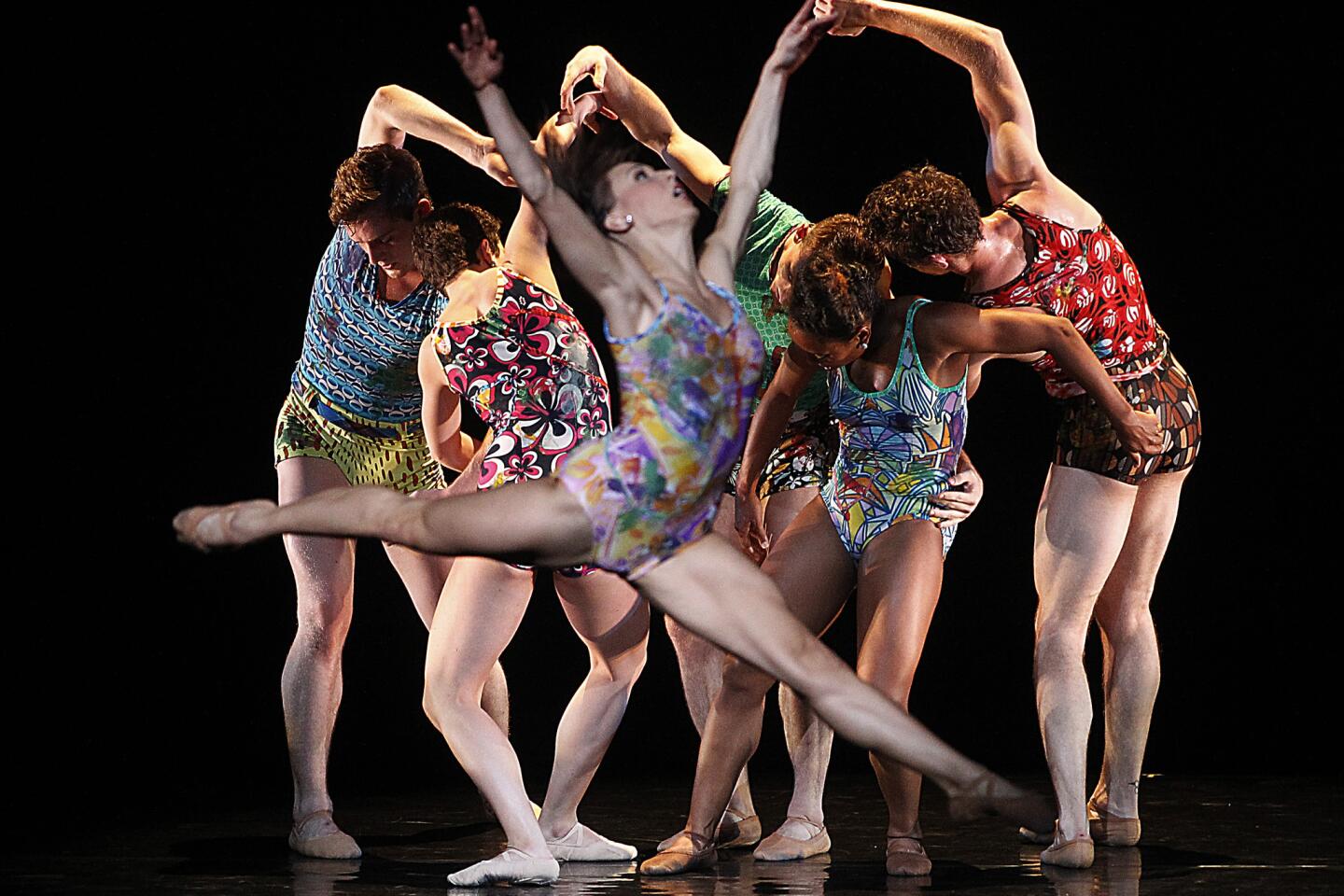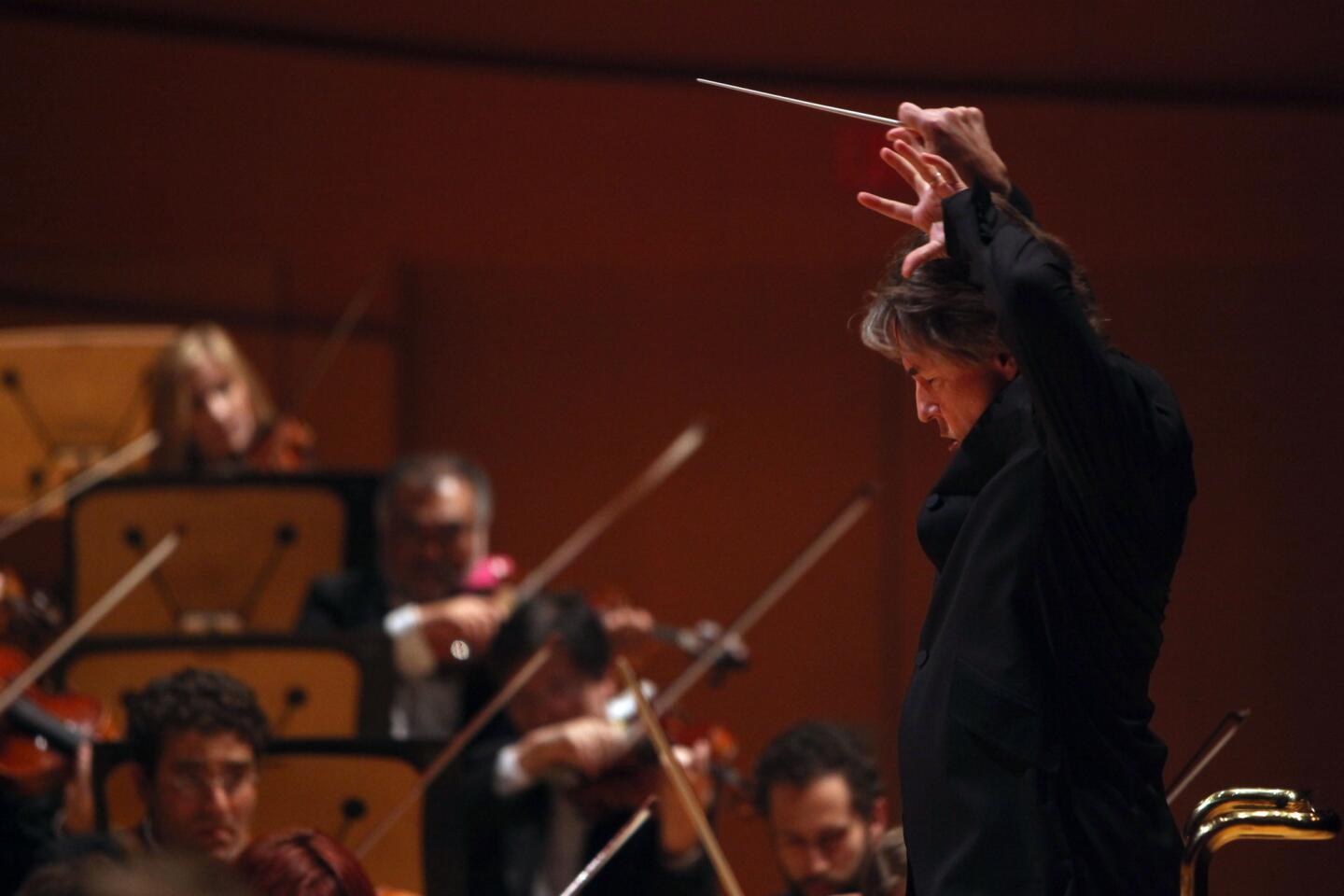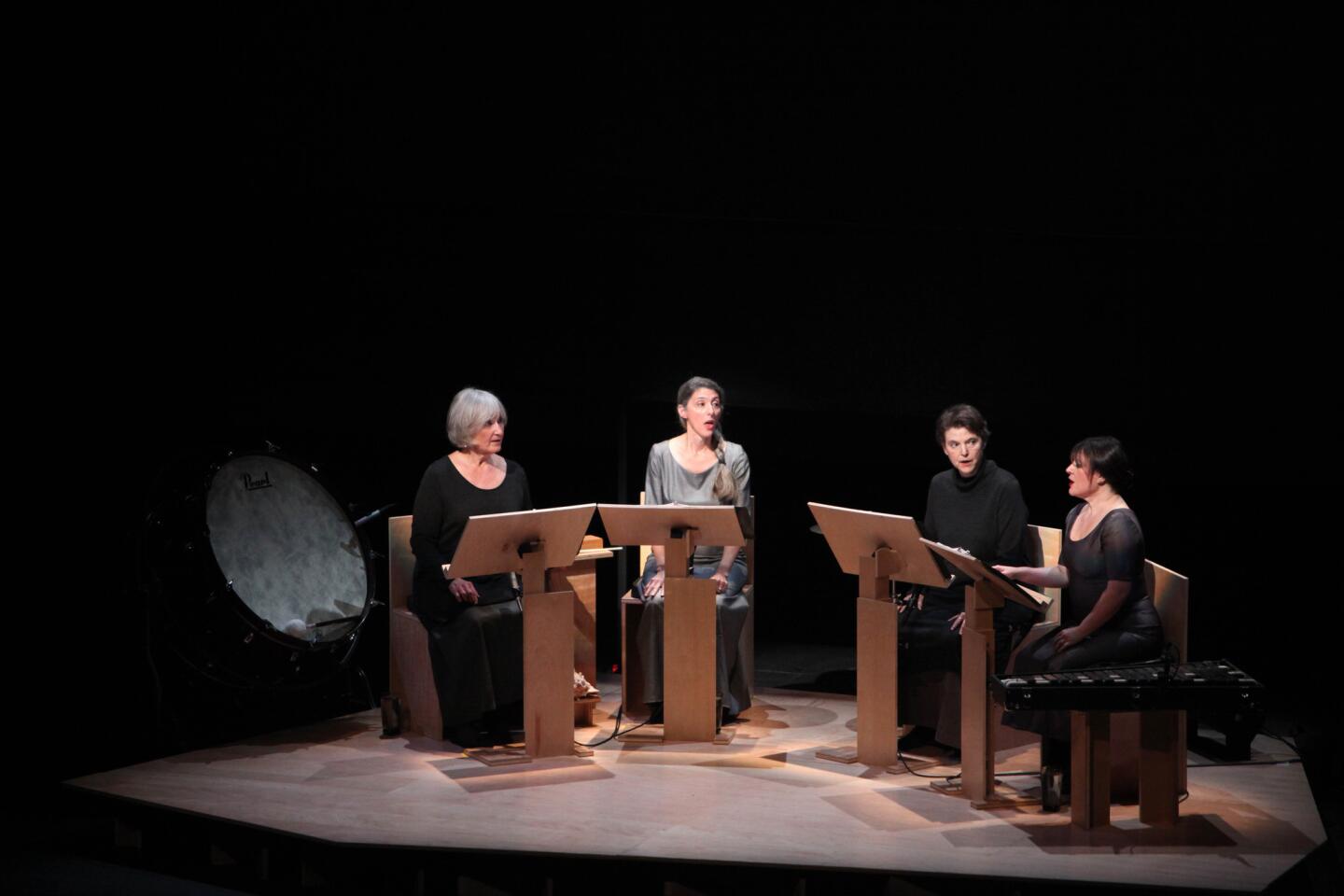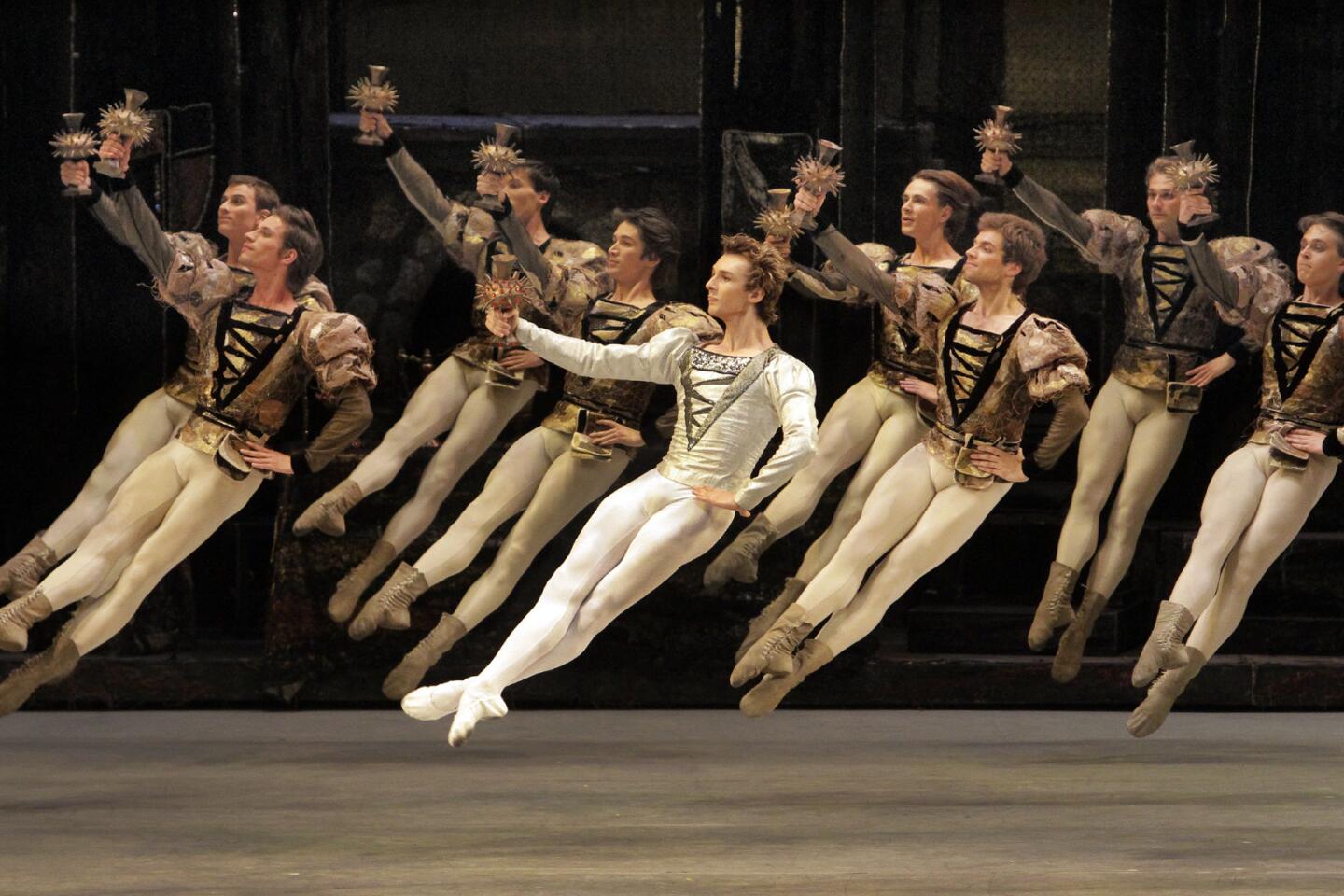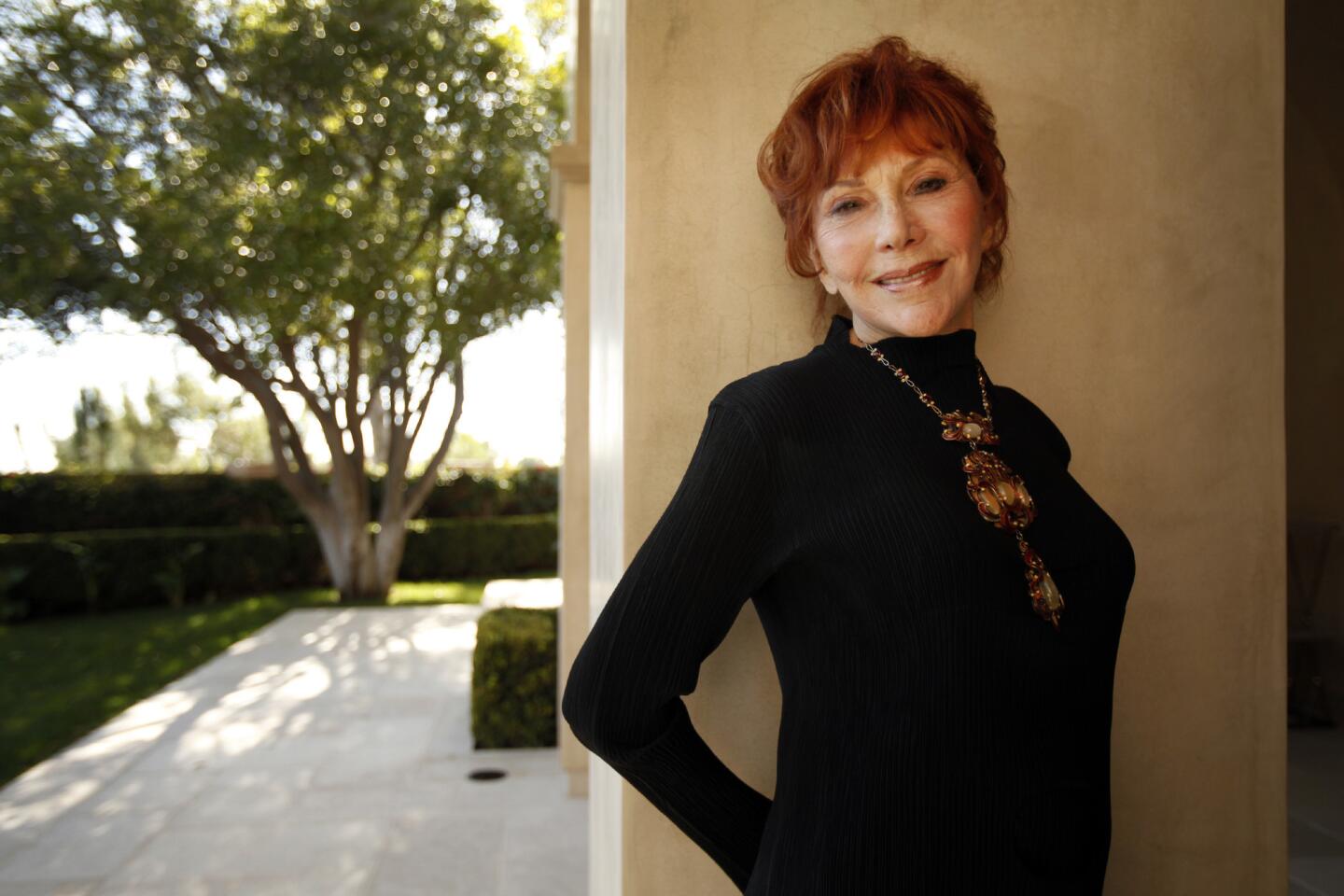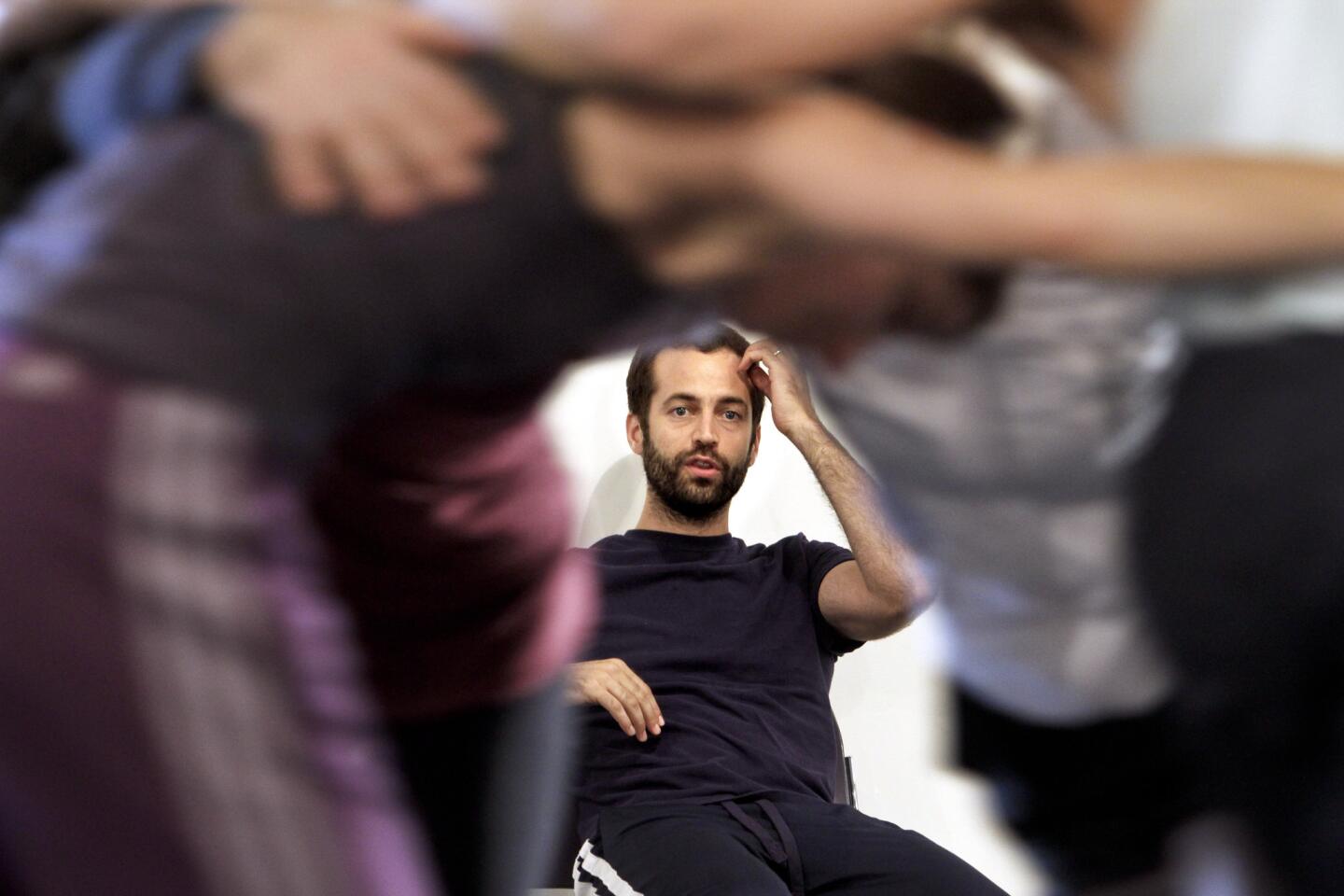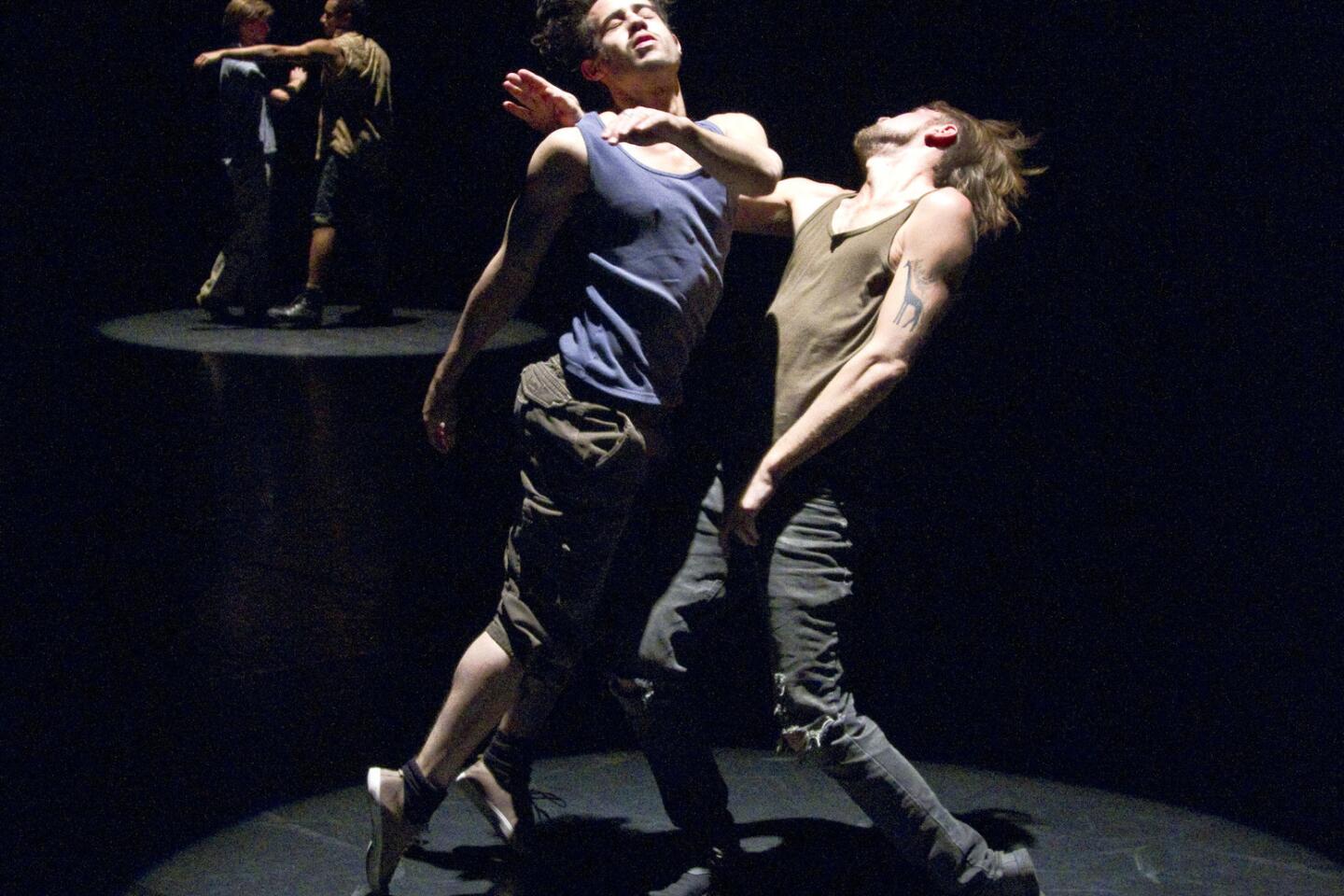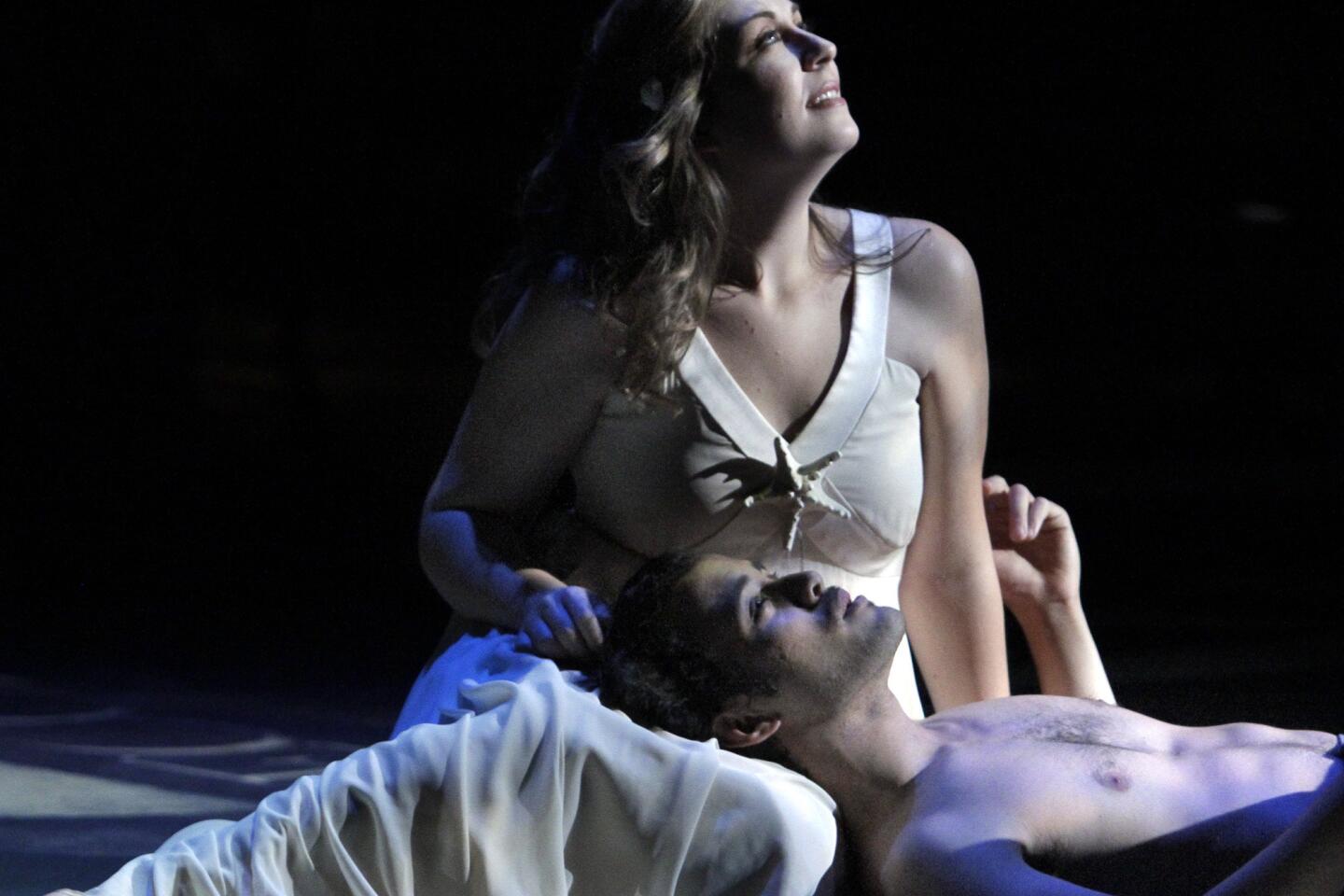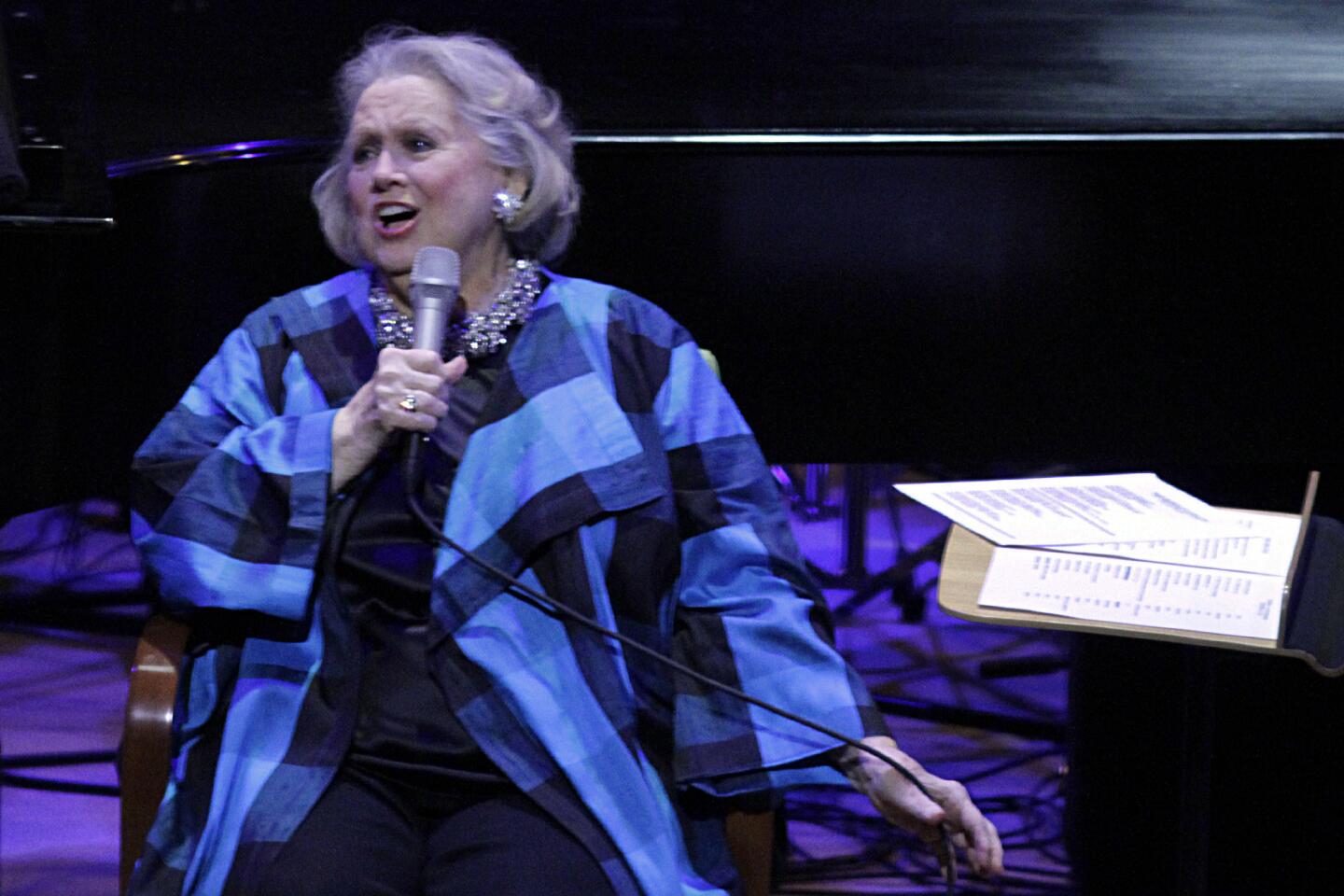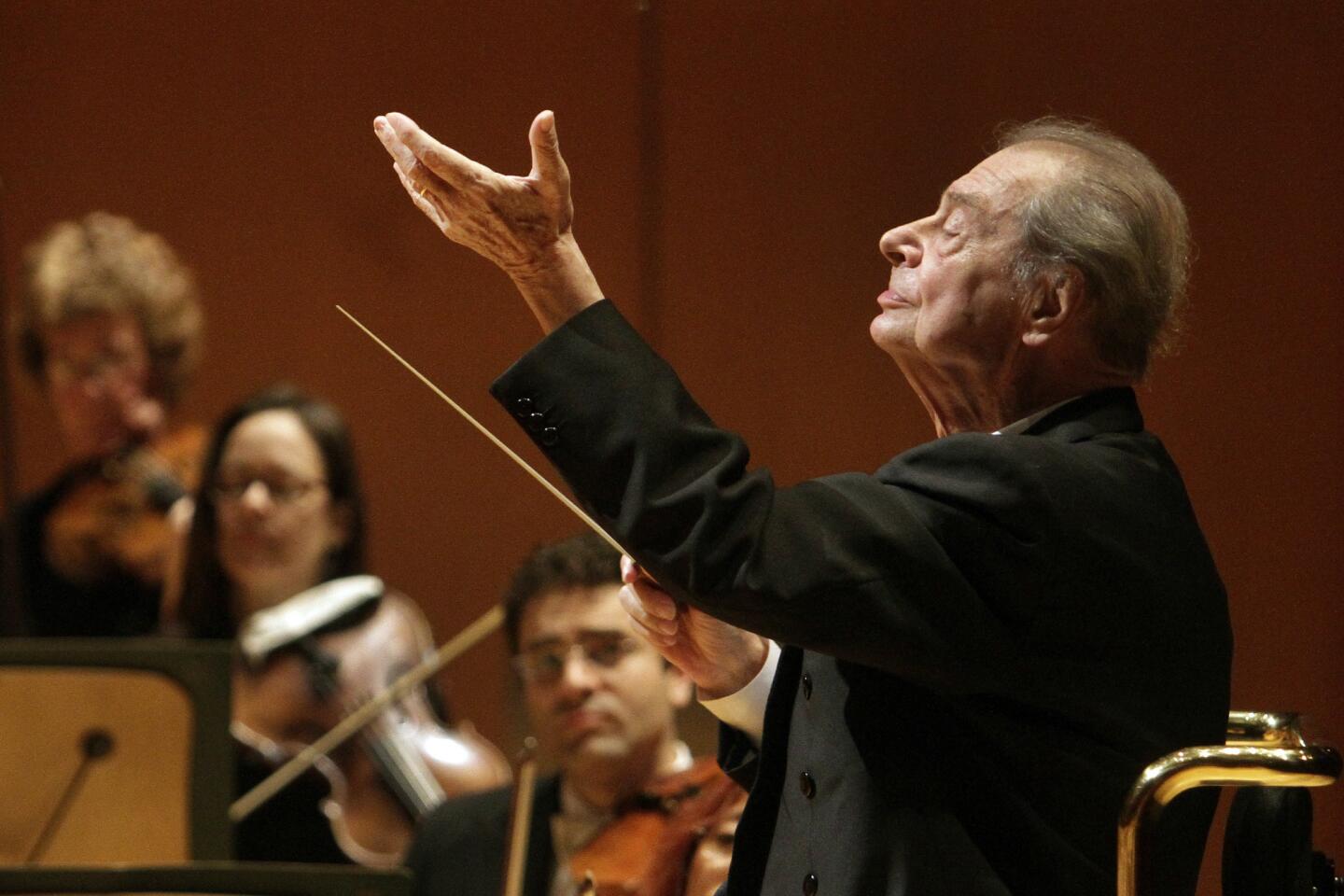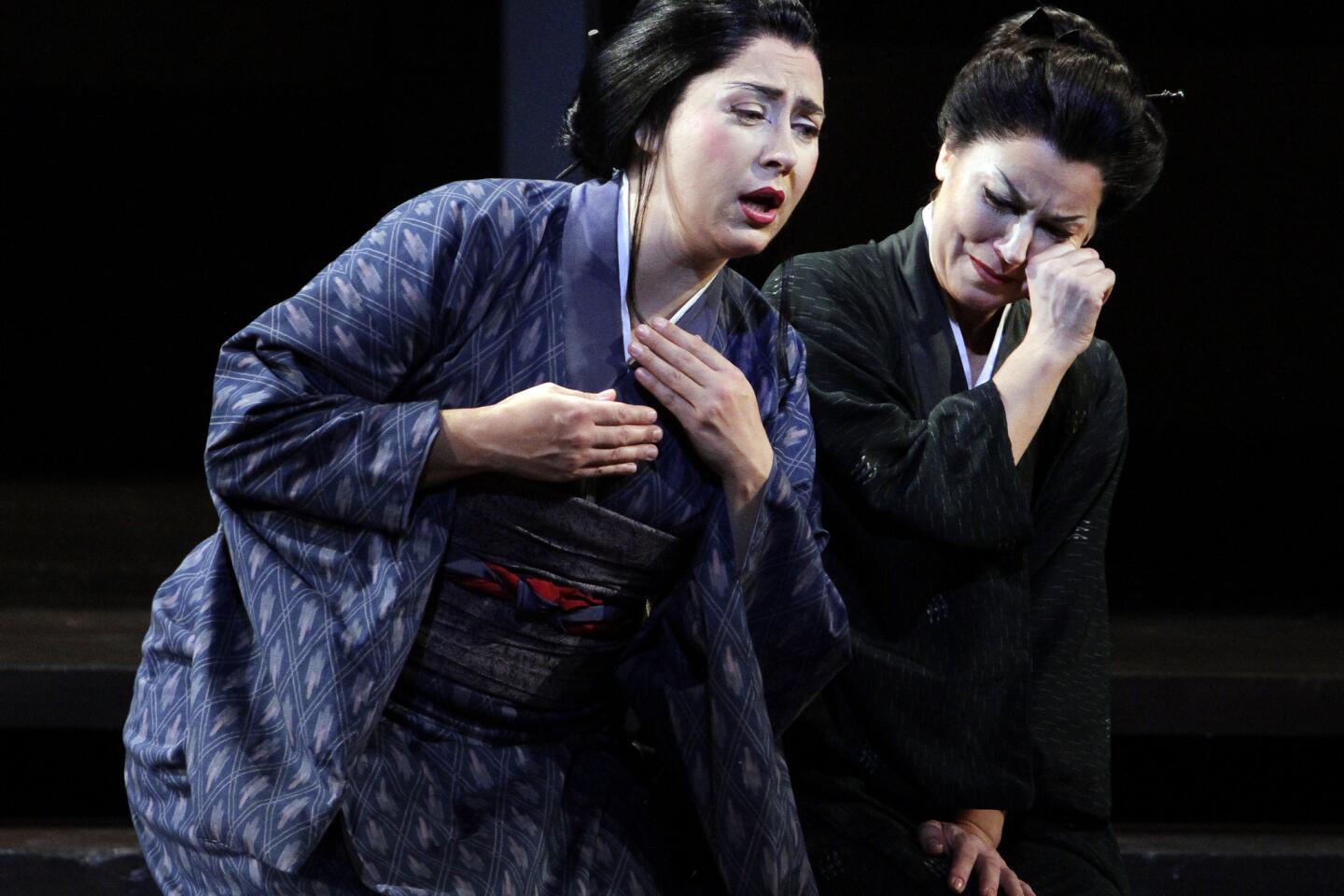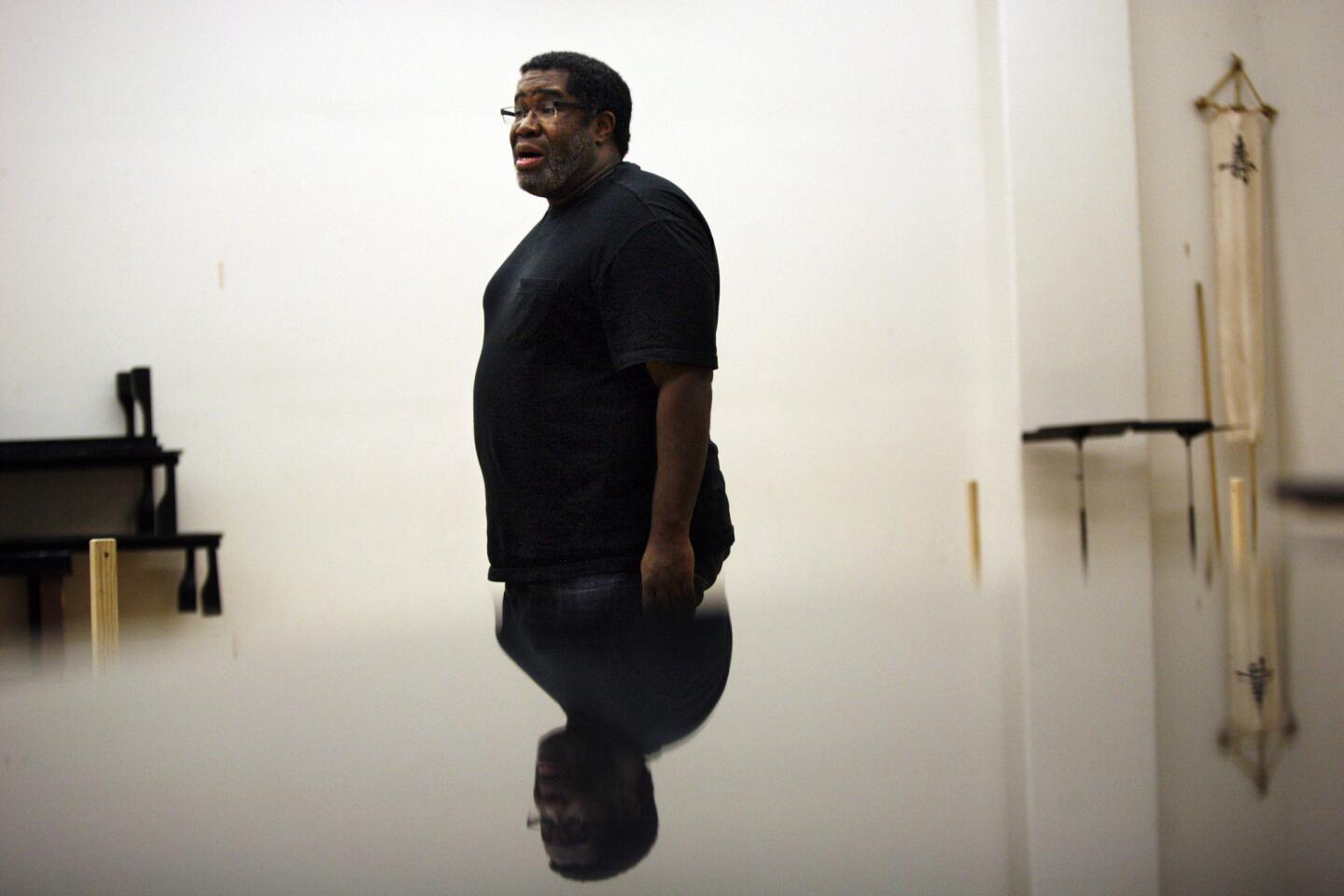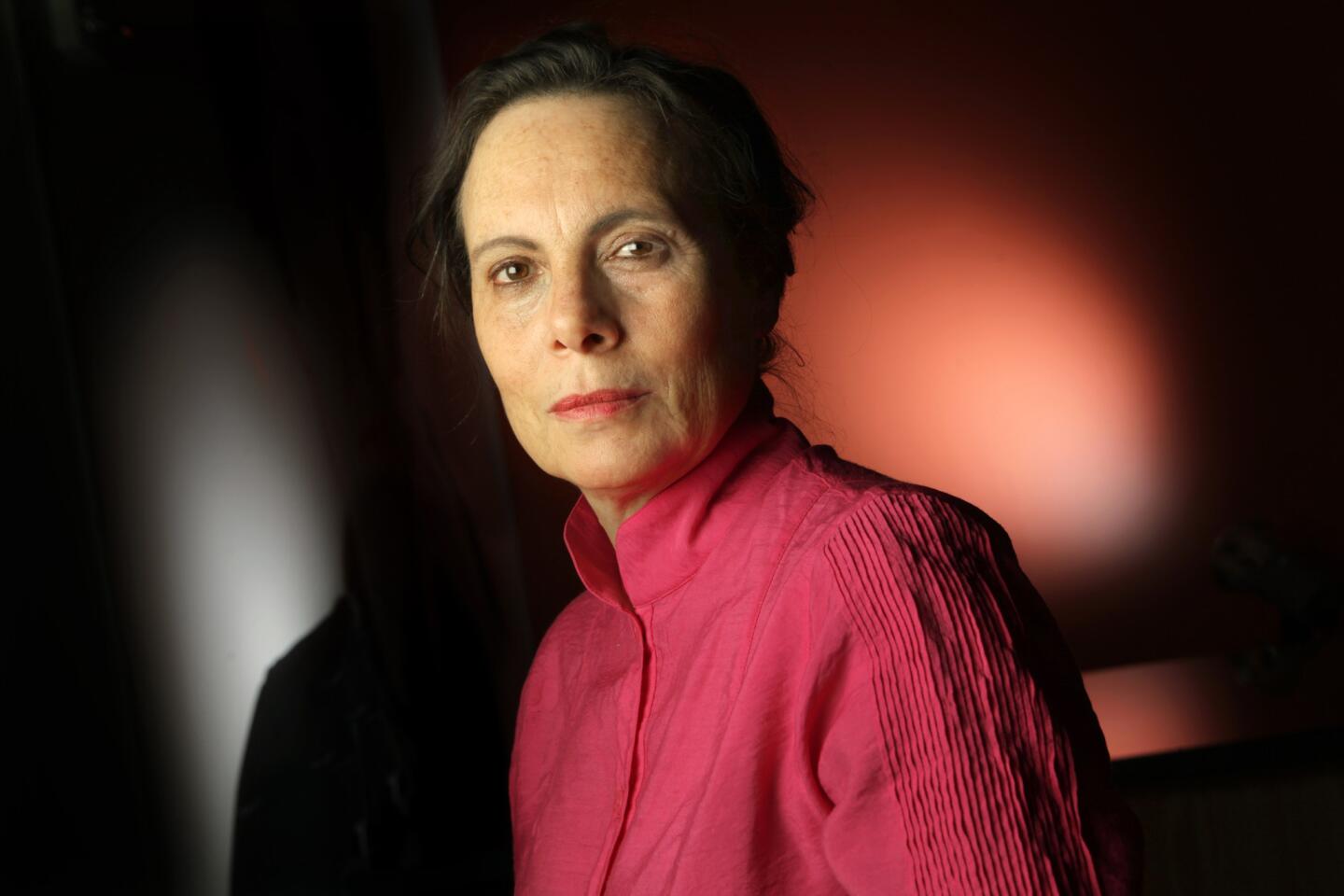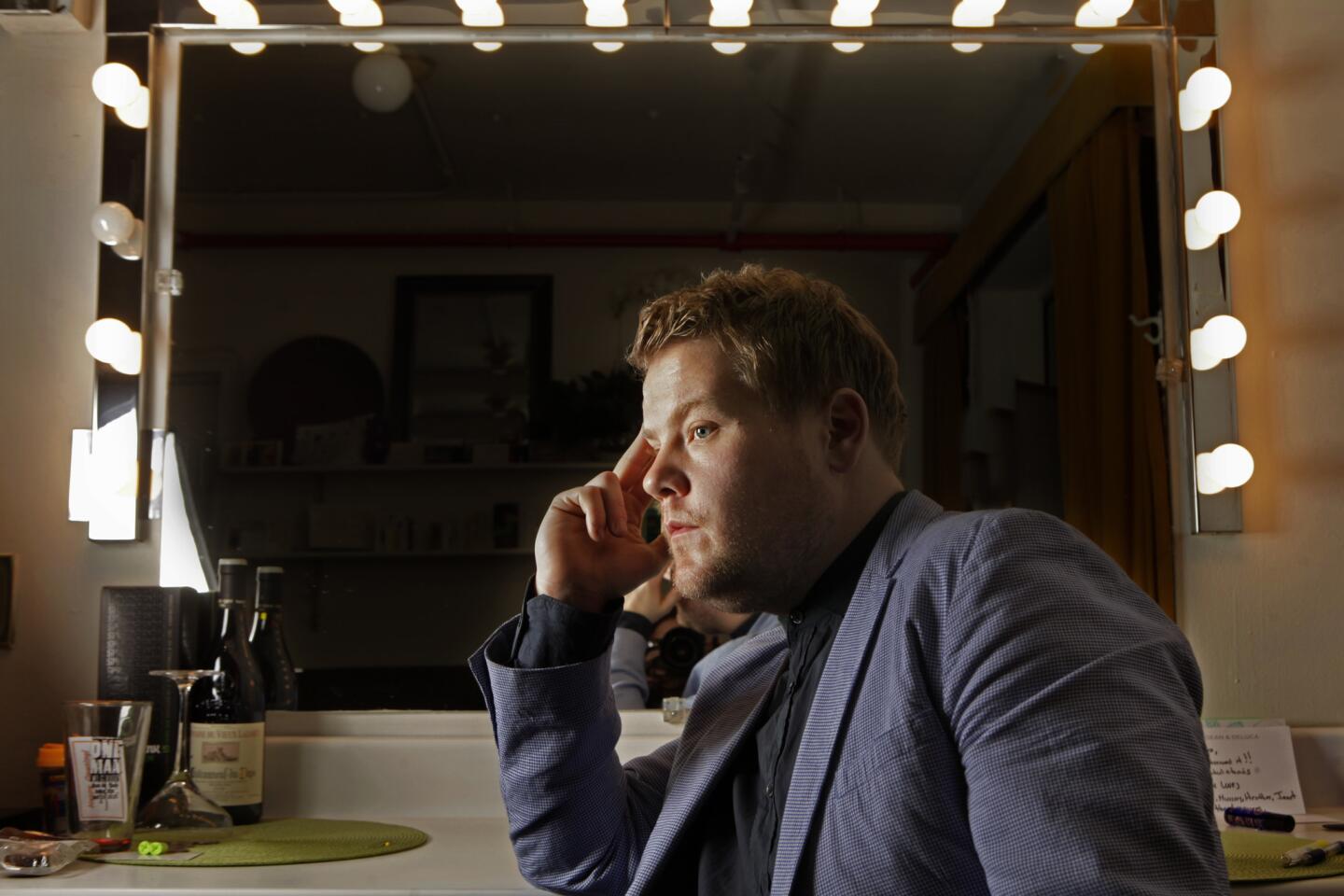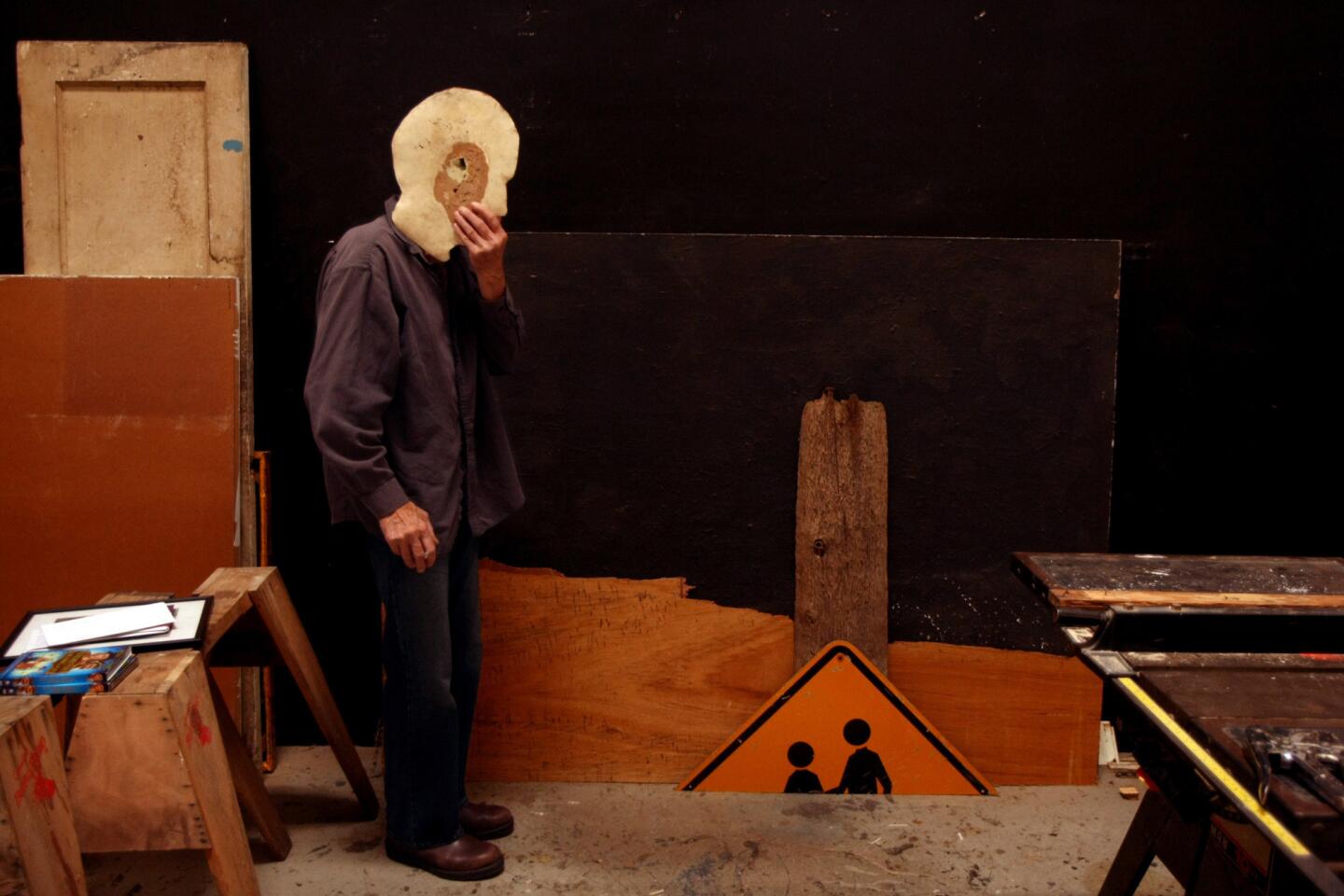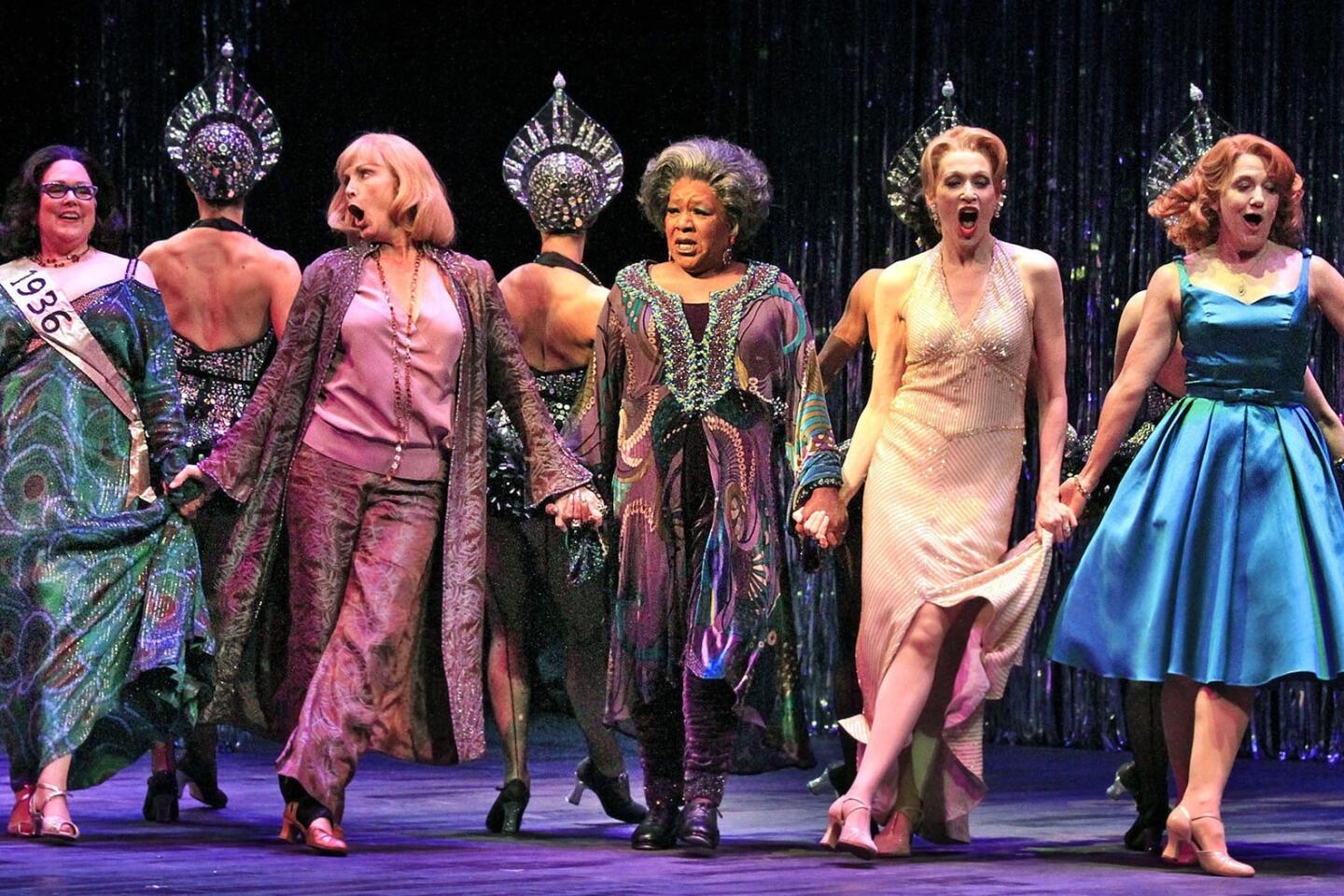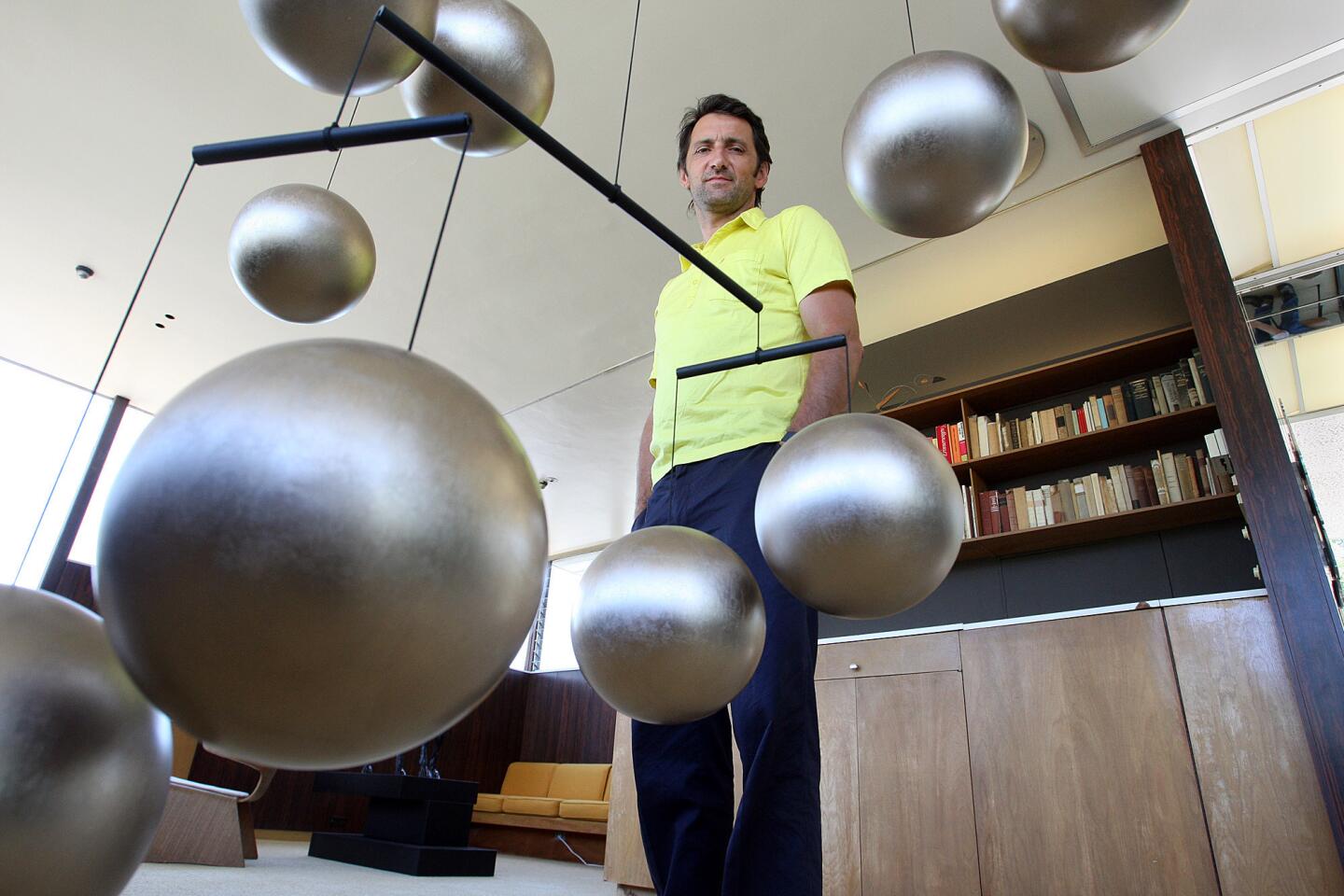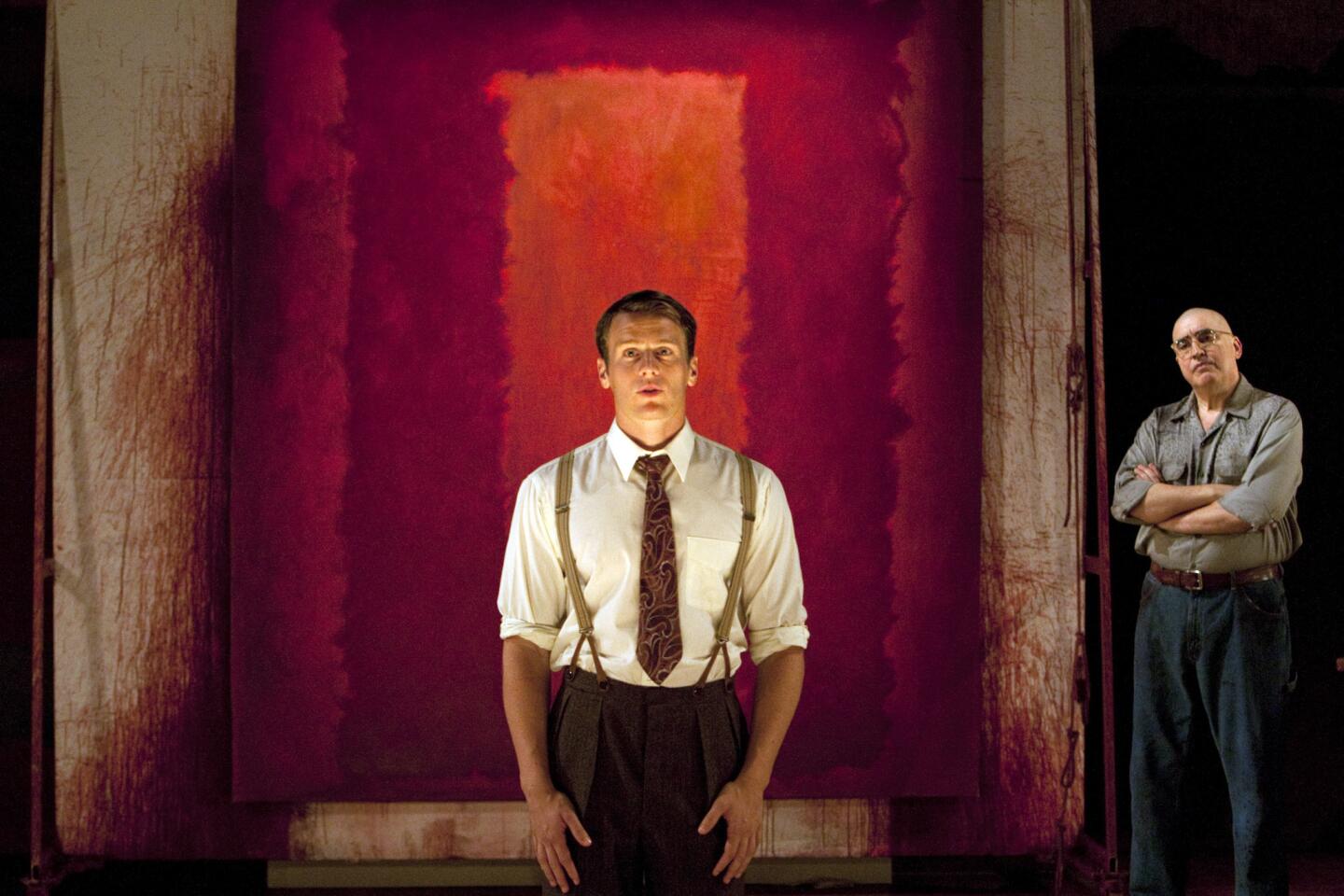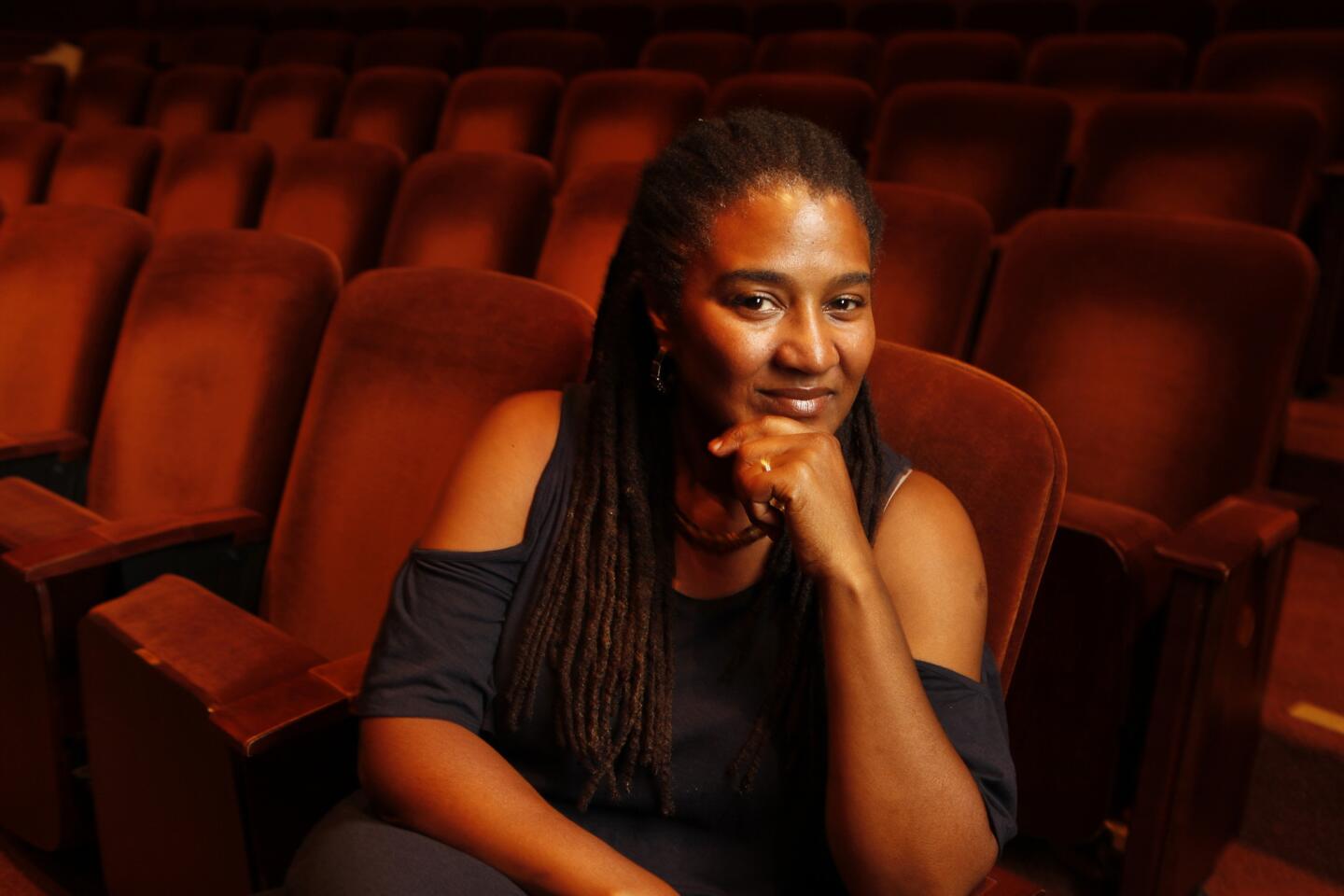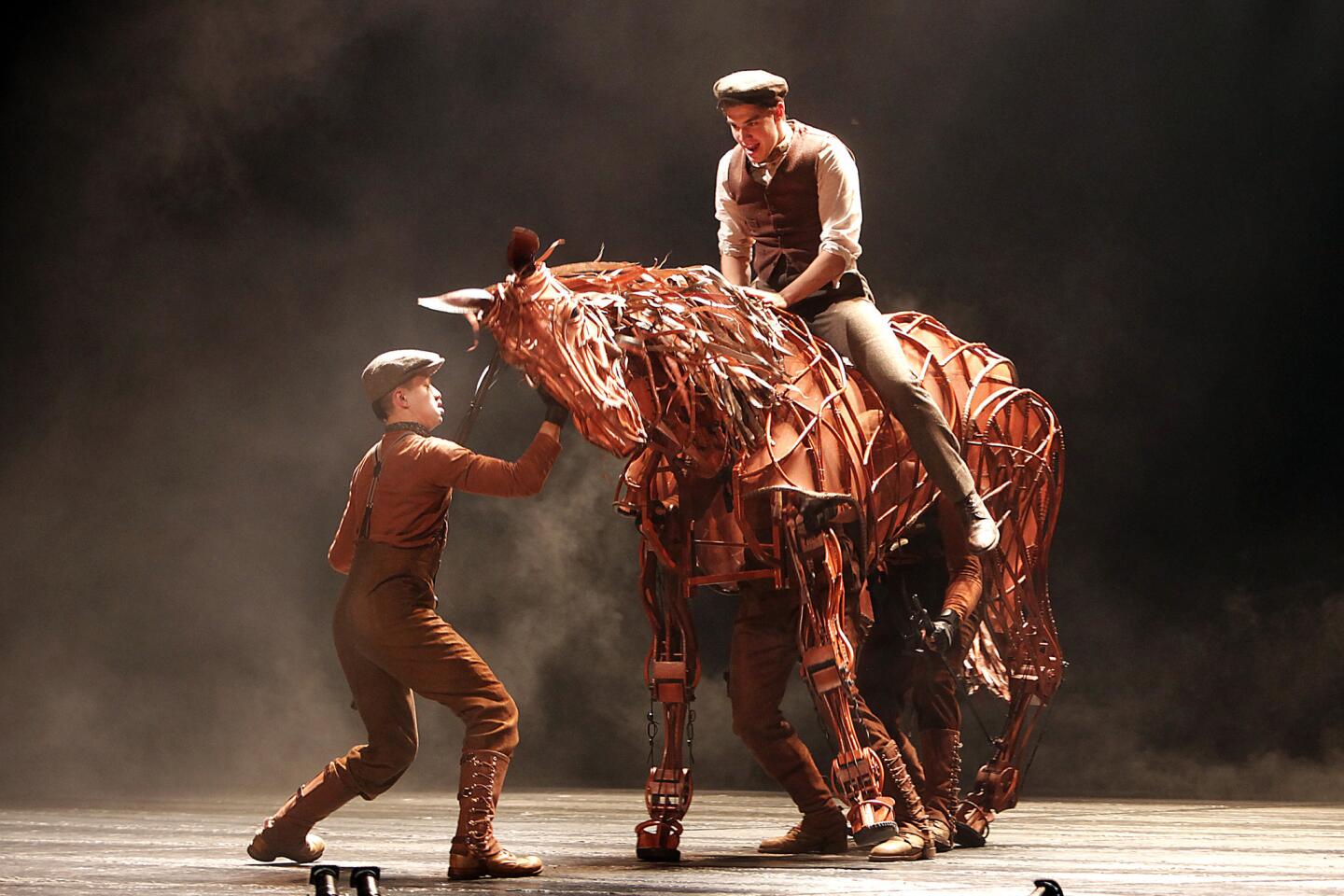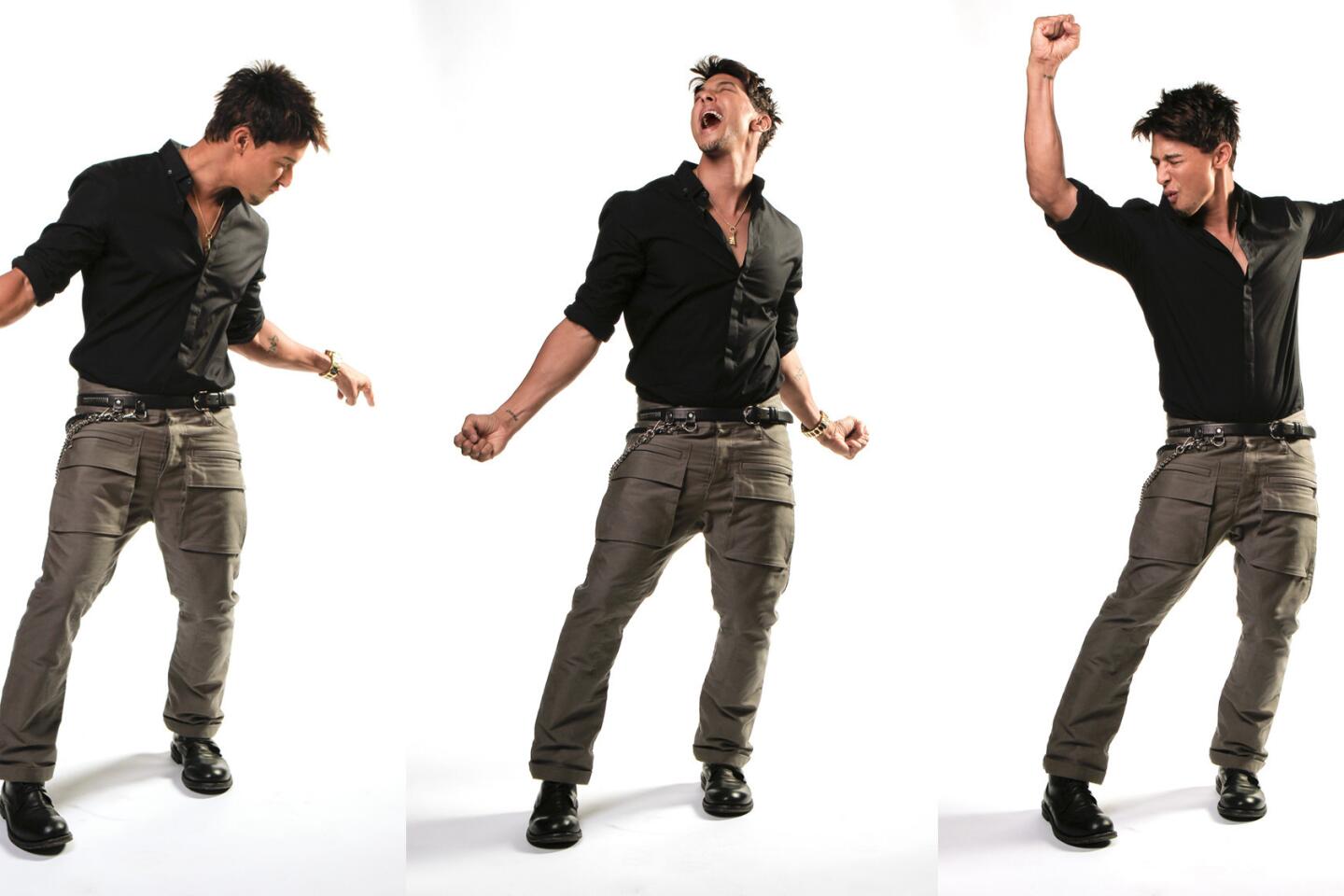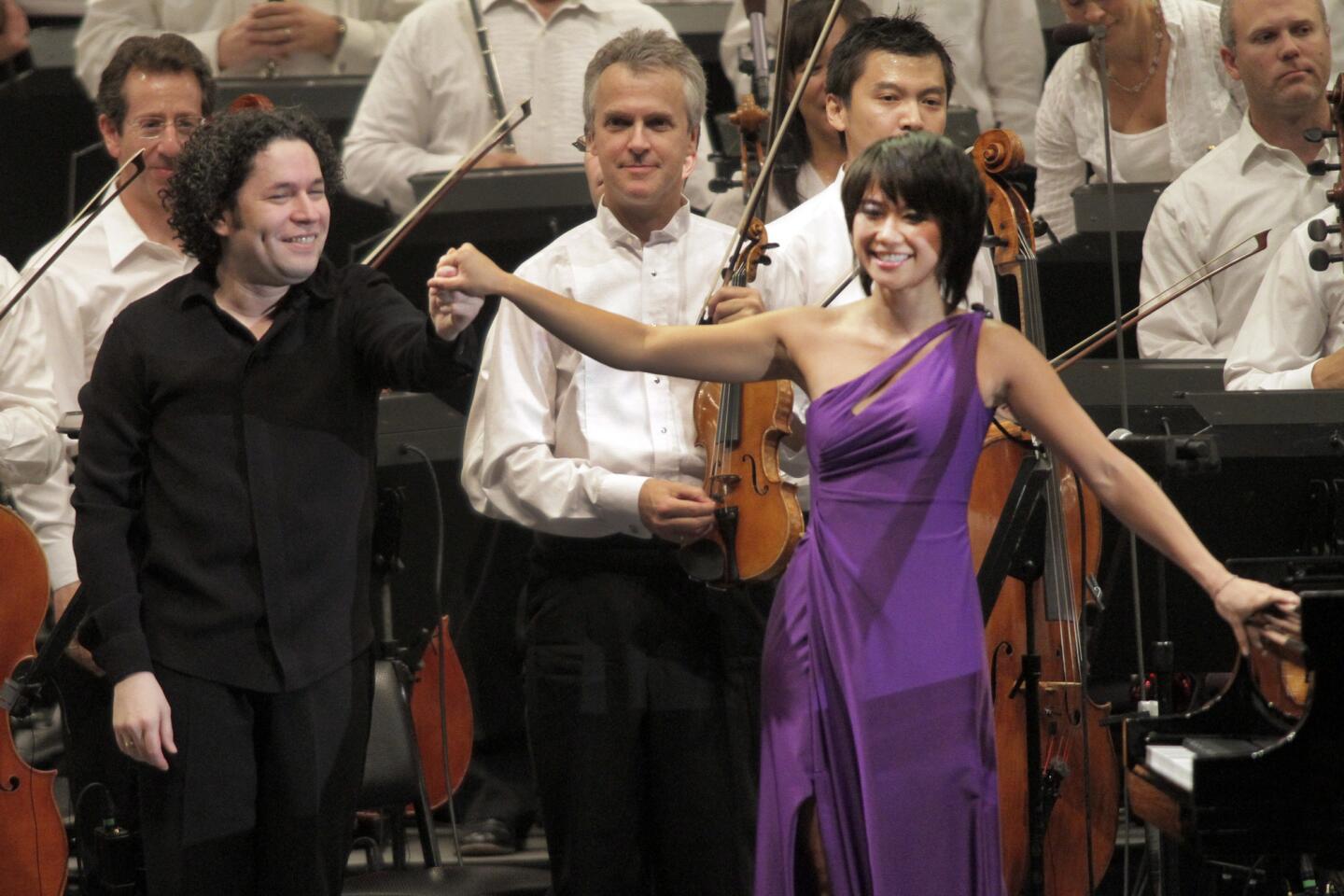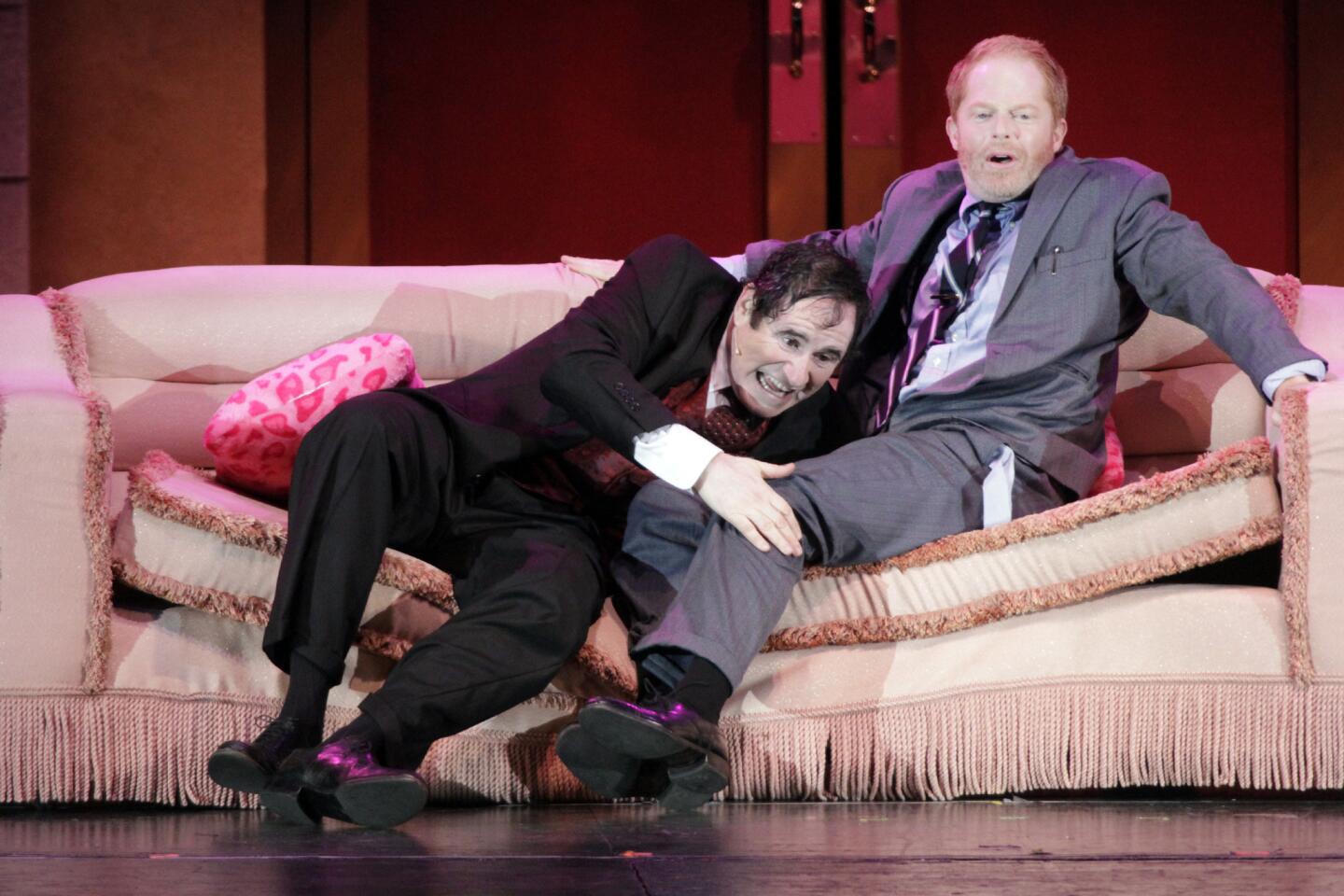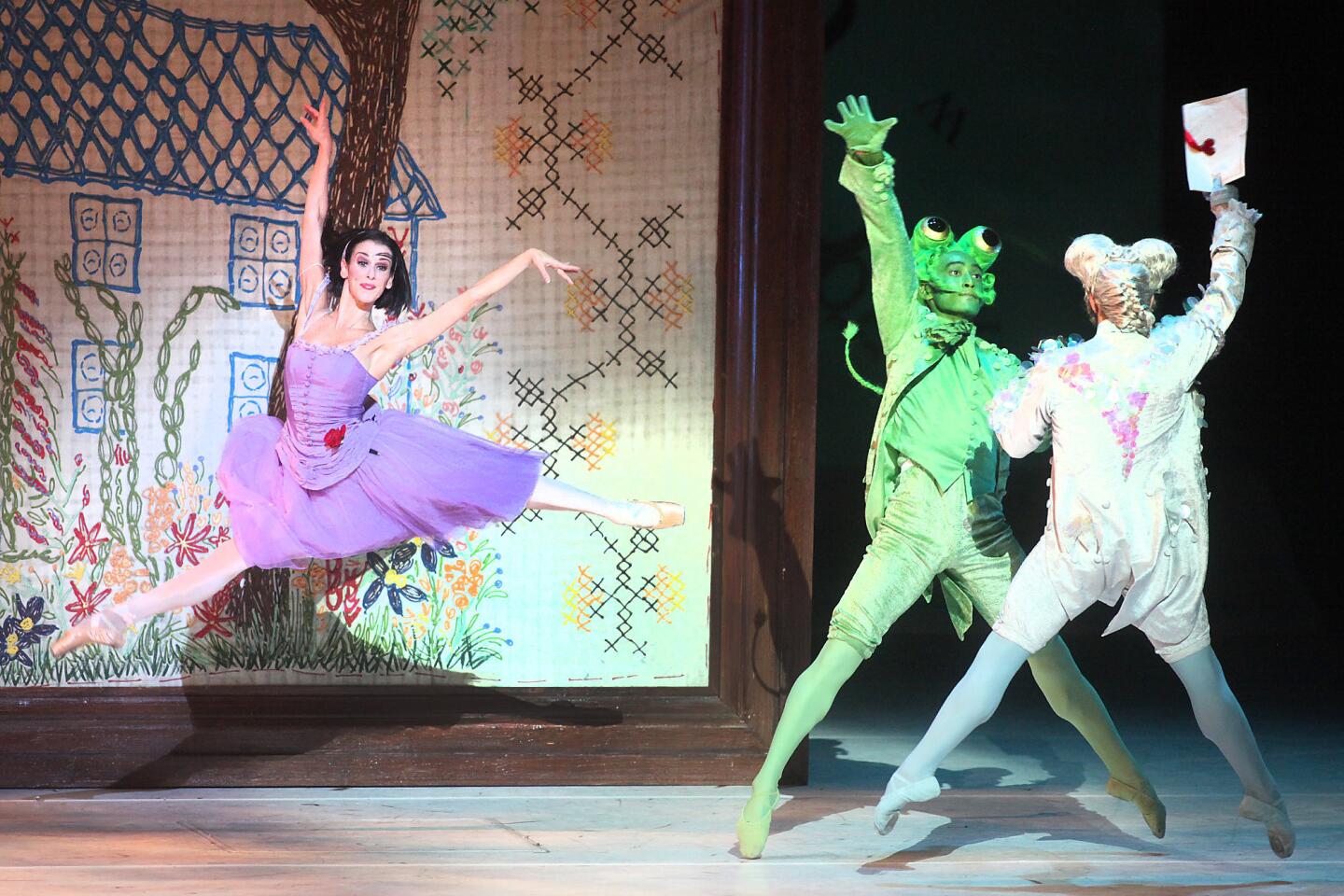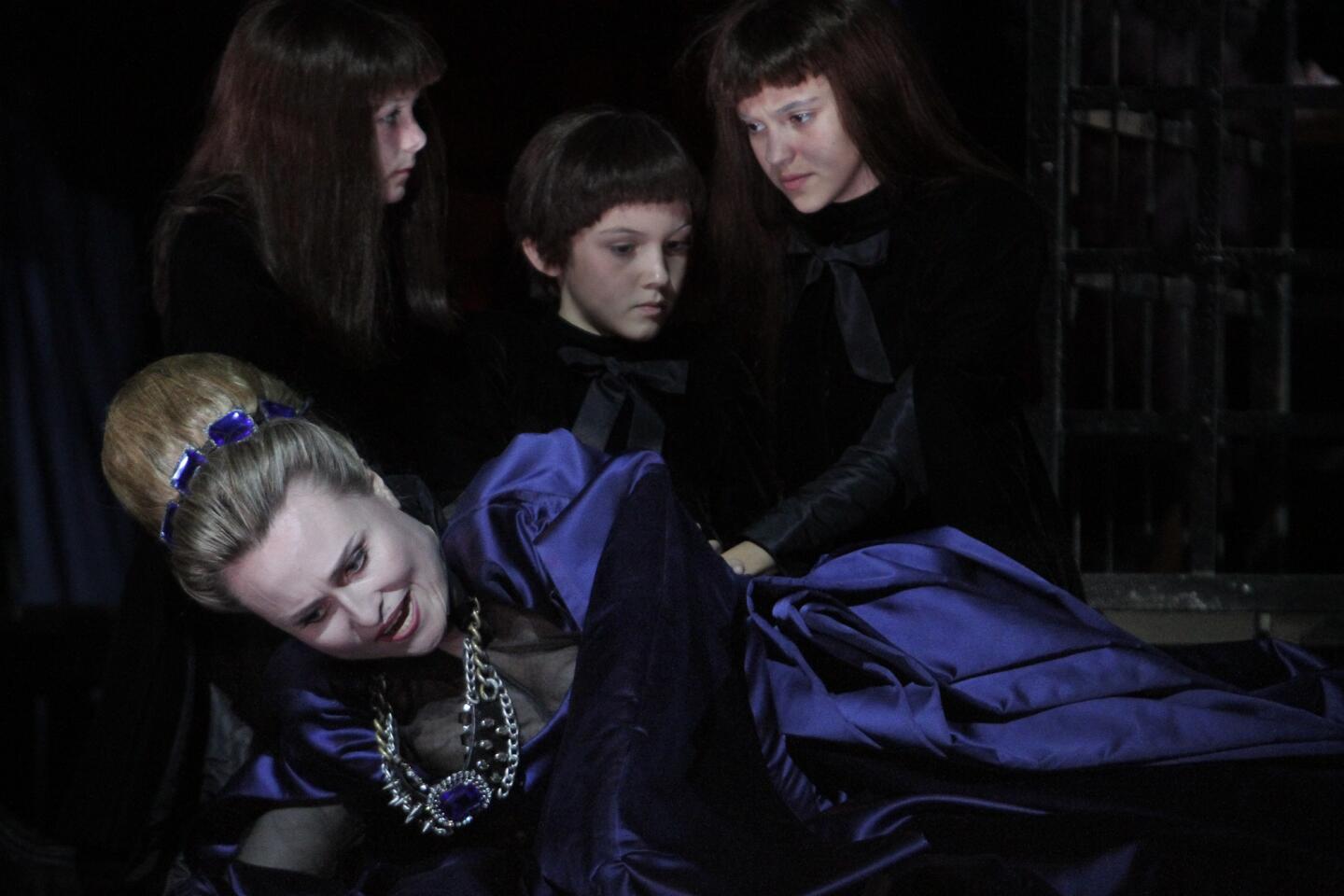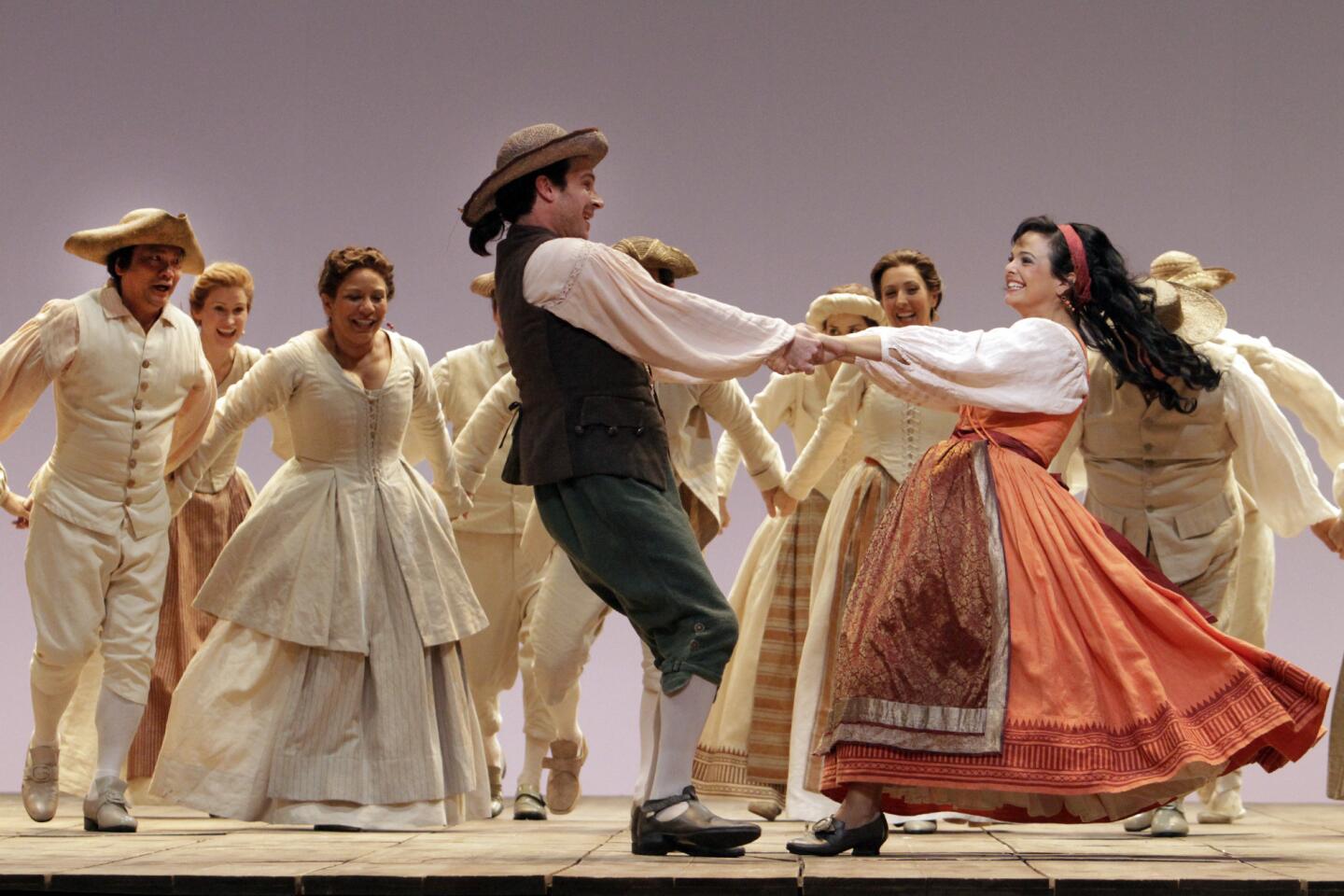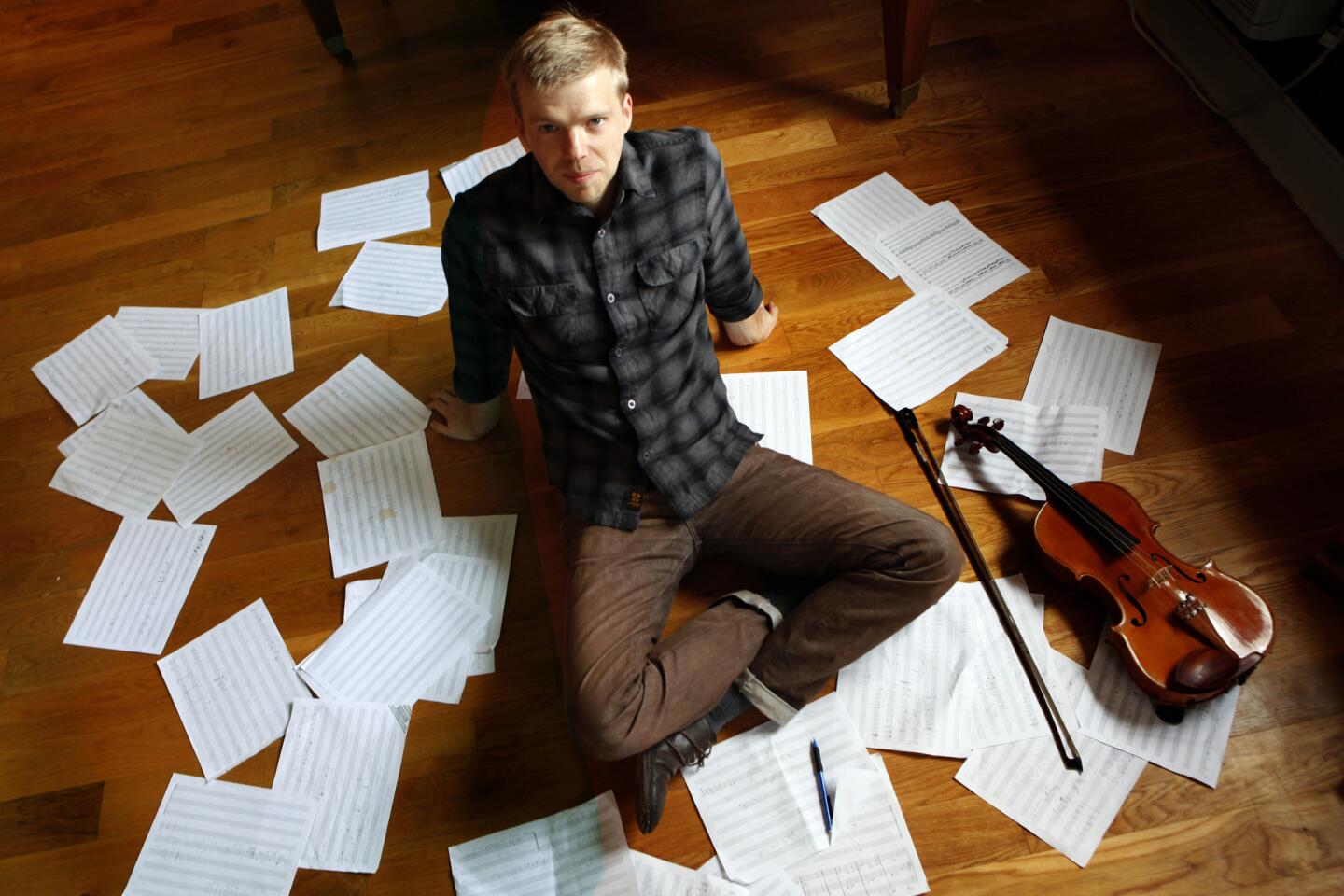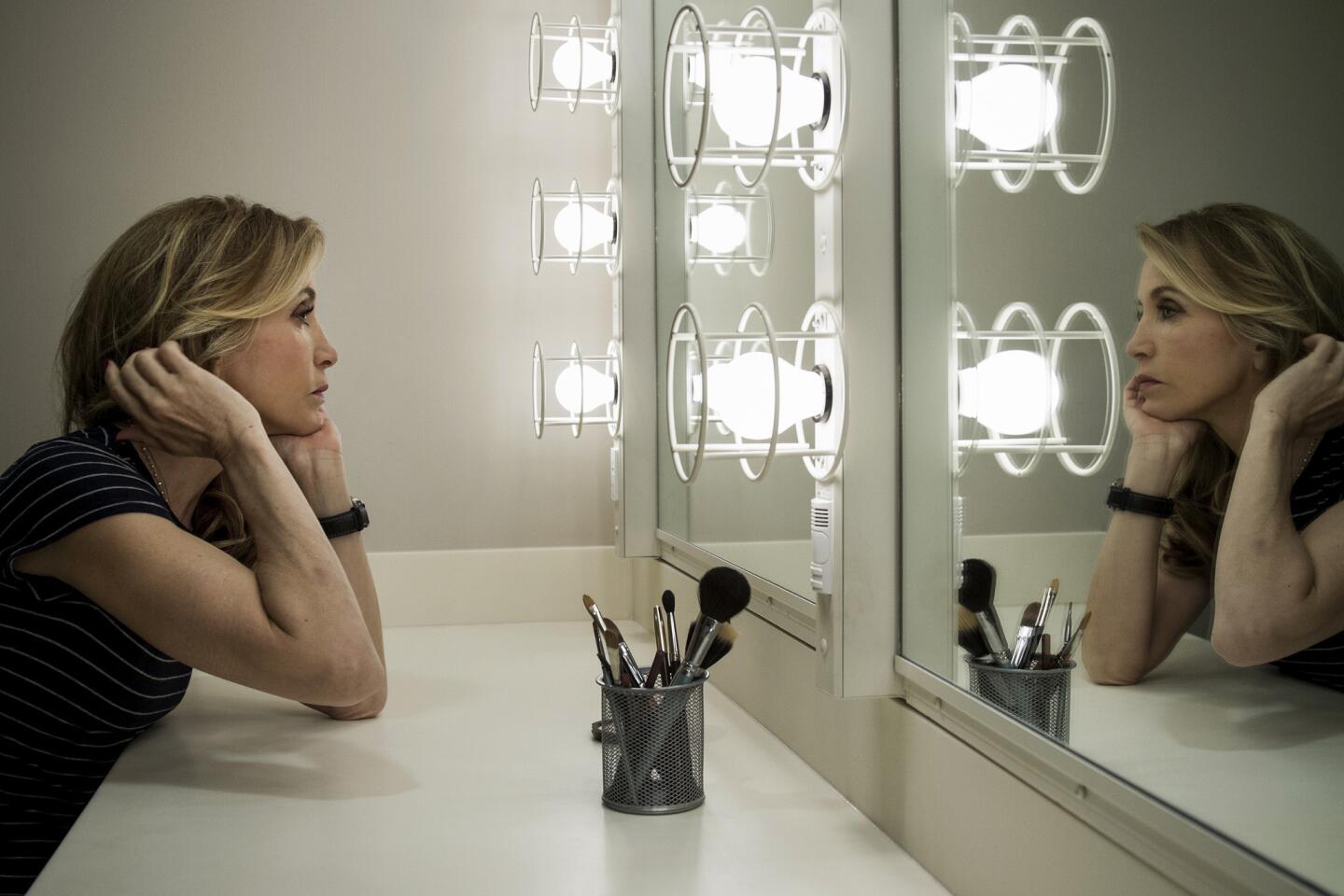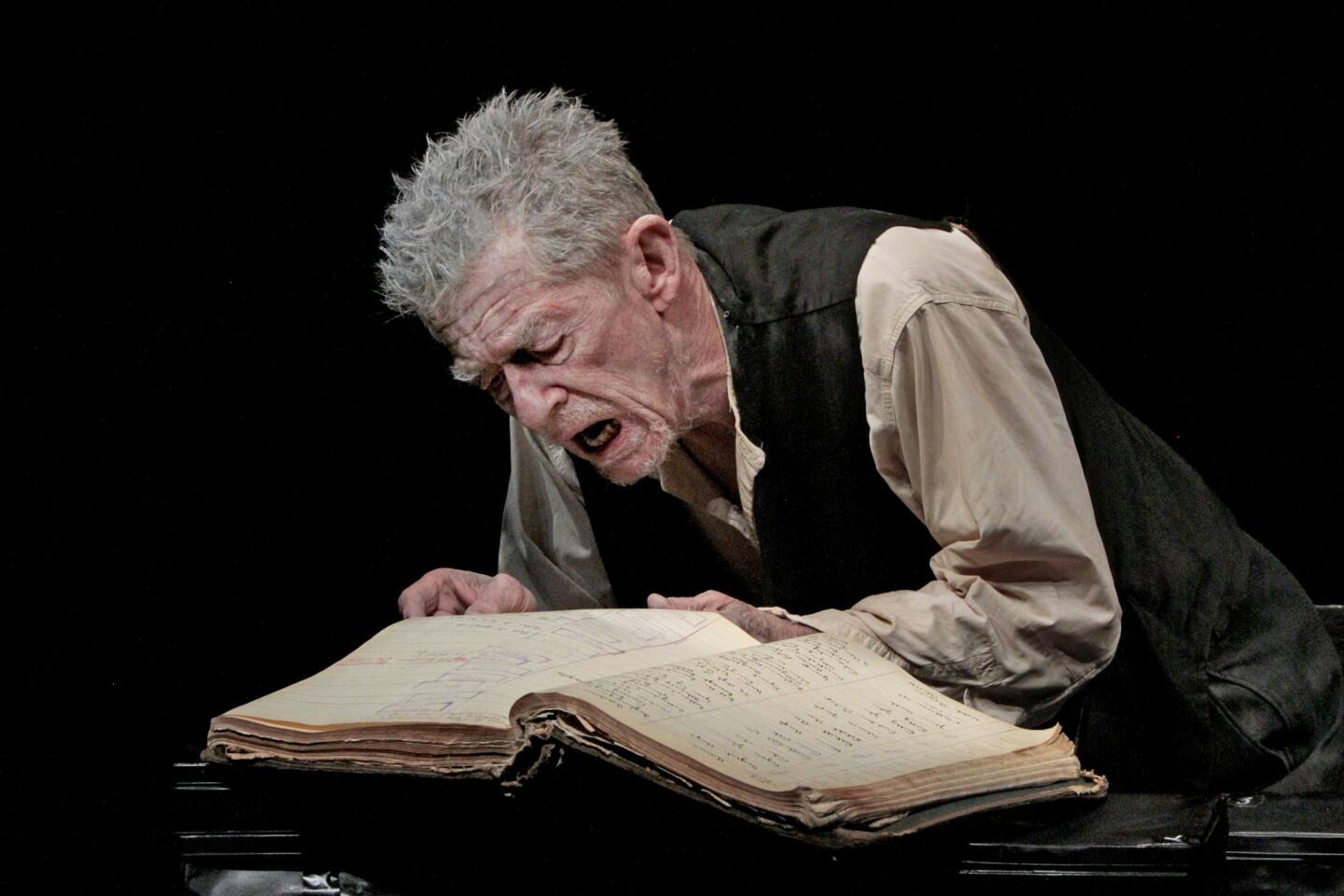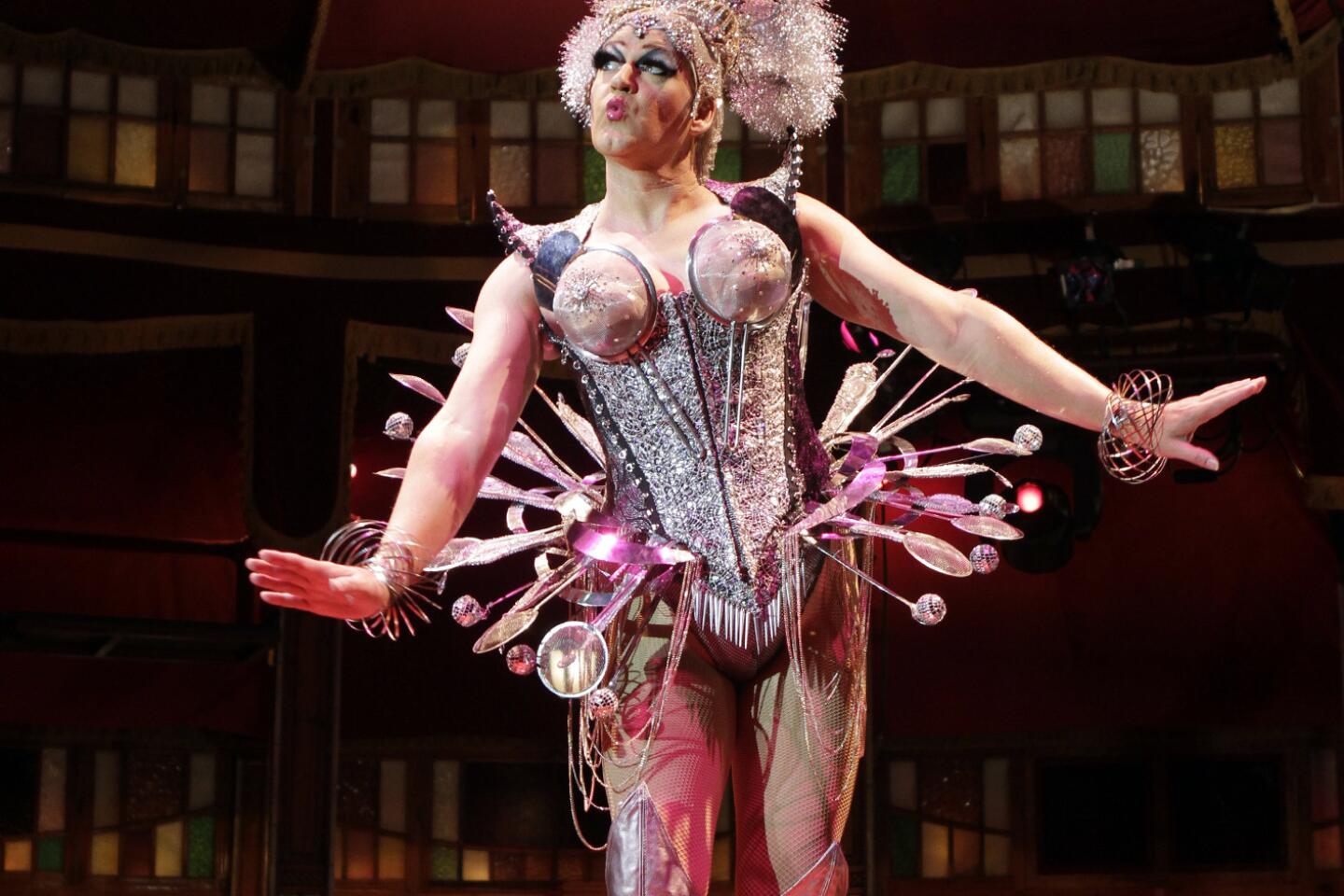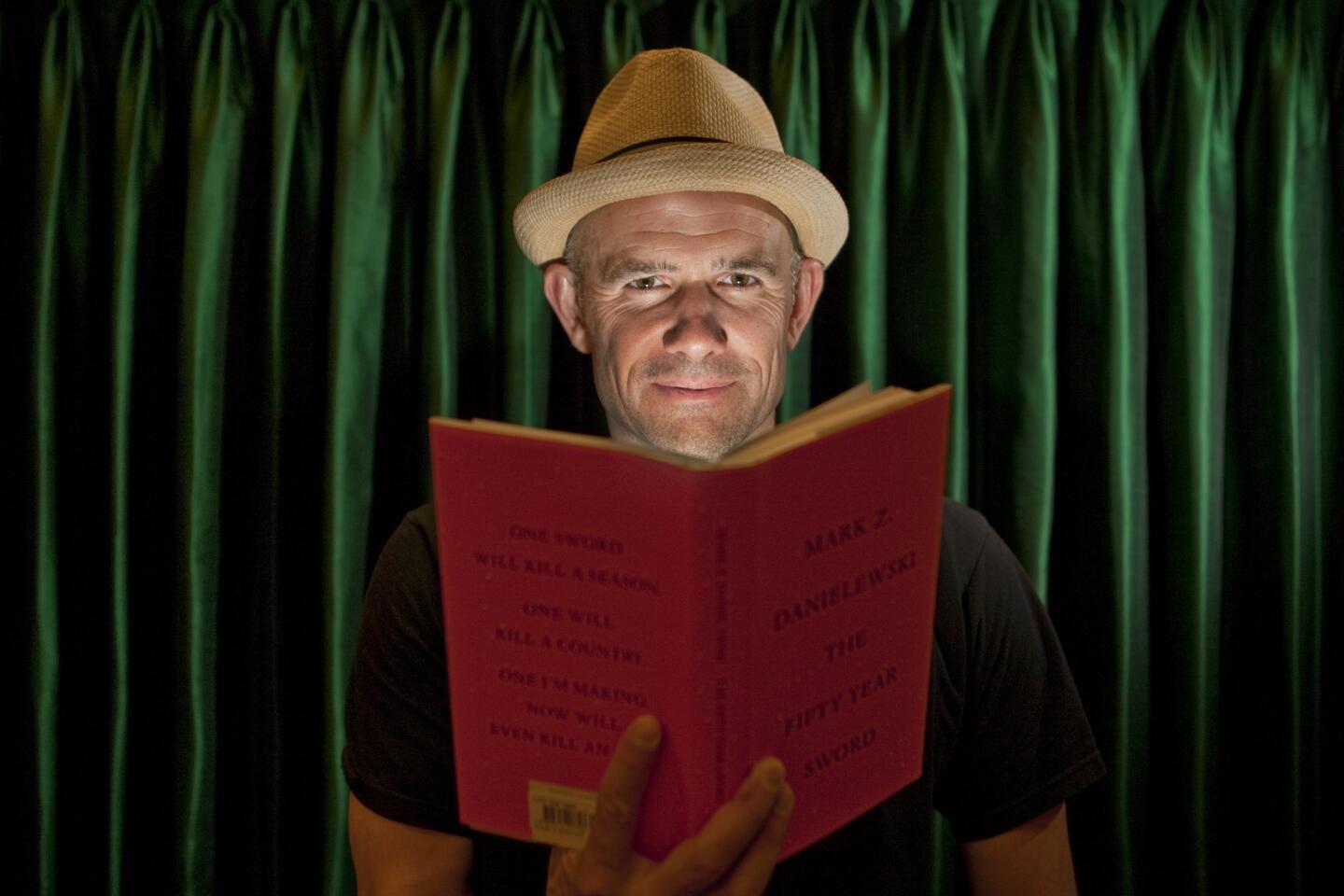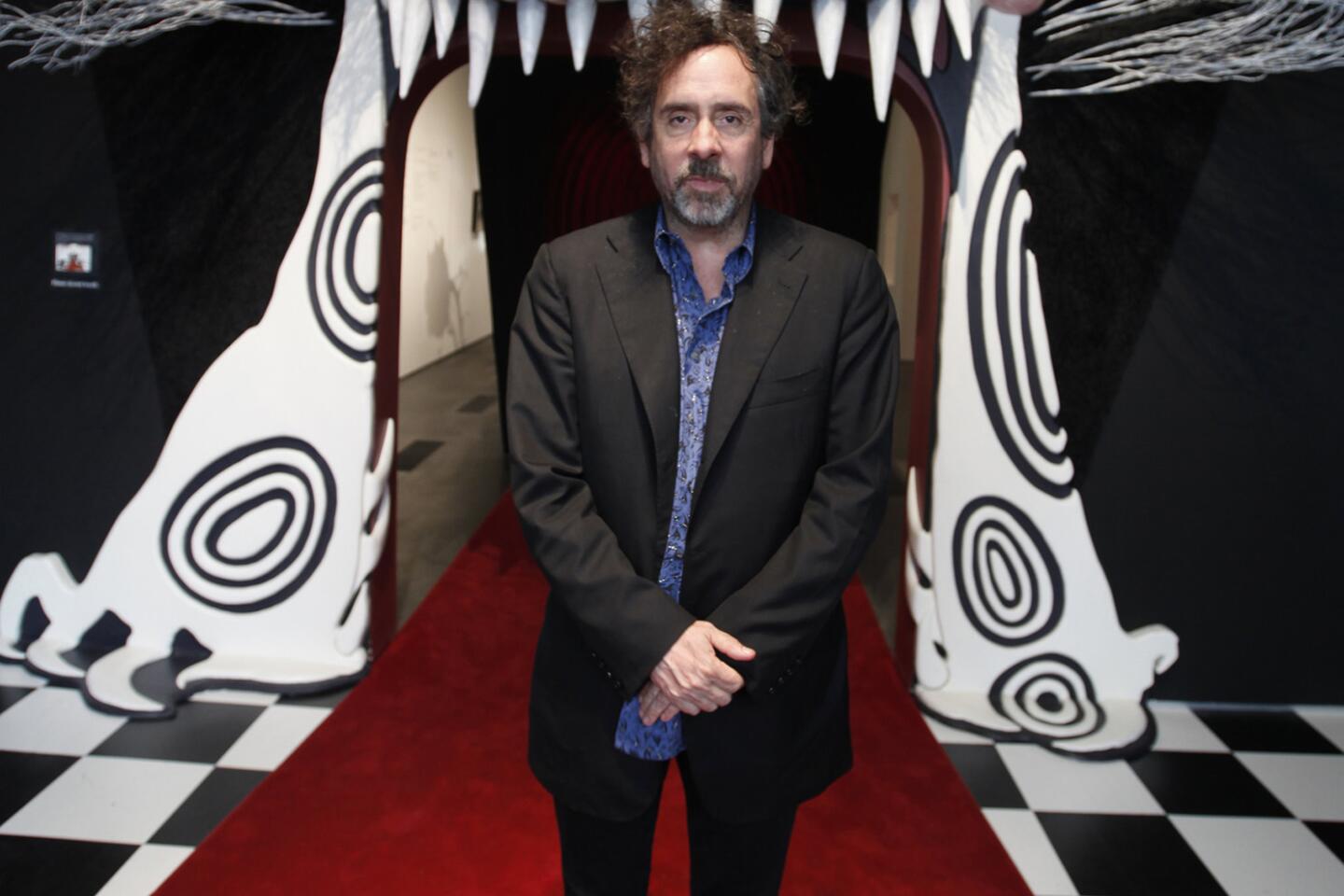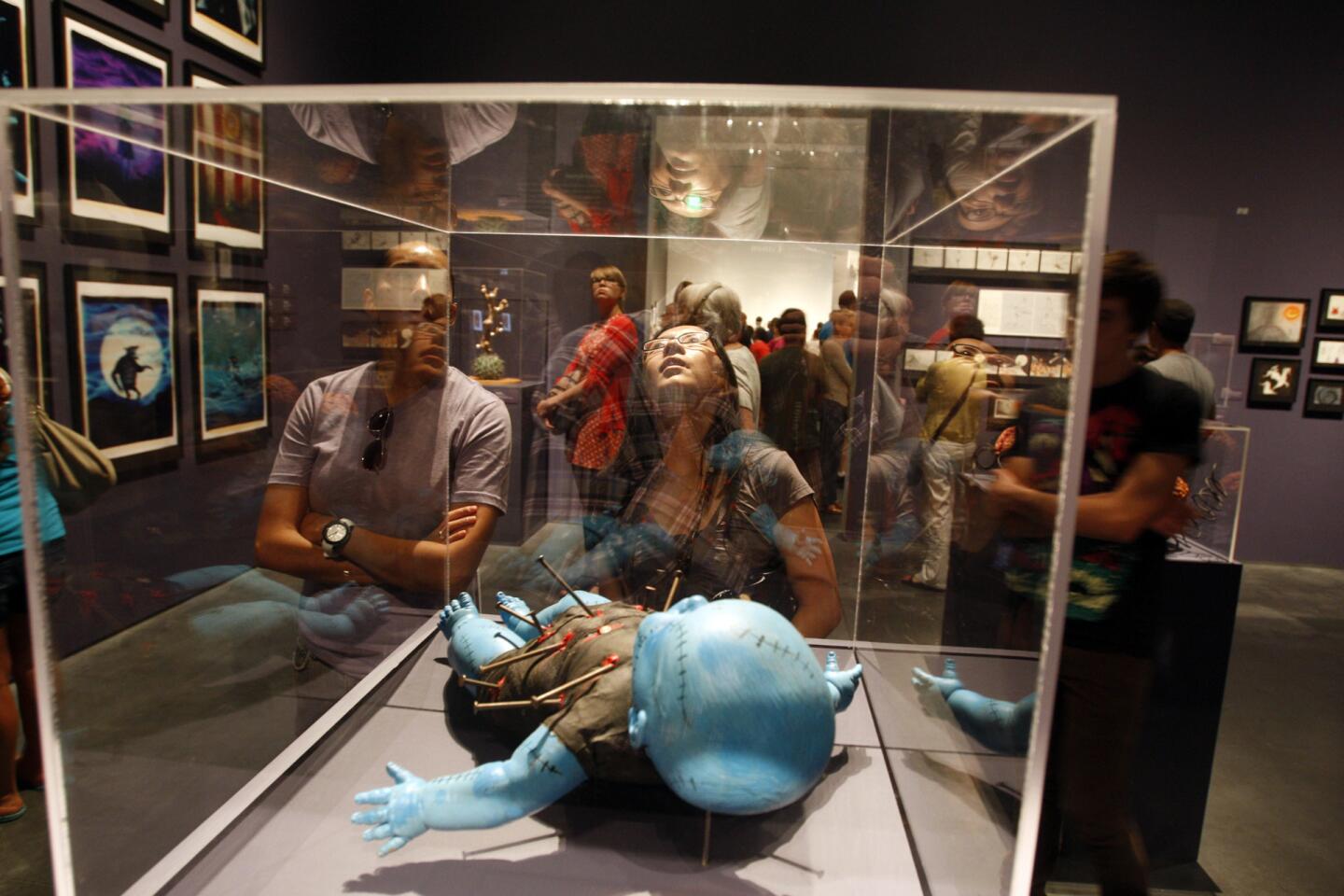Bertie Carvel gives his all as ‘Matilda’s’ demonic Miss Trunchbull
- Share via
NEW YORK — Miss Agatha Trunchbull, headmistress of Crunchem Hall school, hates pigtails. They’re good only to serve as handles by which she can toss a rebellious child into the air — a feat this one-time Olympic hammer-throwing champion shows off early in “Matilda,” the new Broadway musical.
Her motto — “Bambinatum est maggitum” (“Children are maggots”) — is no joke. Even so, Miss Trunchbull, as severe as her chignon and as charming as Hannibal Lecter, is one of the funniest comic creations ever to grace a Broadway stage.
The rave reviews in New York for the Royal Shakespeare Company production of Roald Dahl’s children’s classic about a gifted but abused child and her demonic nemesis follow its 2011 debut in London’s West End, where it is still selling out. The musical is off to a strong start at the Shubert Theatre, and the show is expected to receive multiple Tony nods when the nominations are announced Tuesday, including one for Bertie Carvel, who plays Trunchbull.
PHOTOS: Arts and culture in pictures by The Times
So complete is Carvel’s transformation into Dahl’s gorgon, he is virtually unrecognizable as he sits waiting patiently at a corner table at Angus’ Bistro, a midtown theatrical hangout. At 35, he is pleasant-looking, tall, athletic, and shy. He’d rather share a Robert Frost poem about human failure and suffering (“Nothing gold can stay”) than talk about himself or his art. He is also quite precise in his word choice.
“Often, one’s quotations are quite mangled,” he says with a smile, after having rearranged the table settings, as he put it, “…to give us a clear path.” “It’s very hard to quote somebody in context without thousands of words of context.”
Many performers are media-shy, but when it comes to his opinions about publicity, Carvel cites as a role model the reclusive actor Paul Scofield, an Oscar winner for “A Man for All Seasons.” Indeed, so thoughtful is his discourse that he not only provides as much context as possible but also is painstakingly careful so he is not misunderstood. It is a rigor, along with his total immersion into his roles, that reminds one of Daniel Day-Lewis.
But there is a touch of playfulness to go with all of the intensity.
Reminded that he once described his challenge as having to find “the little girl within Trunchbull,” he says brightly, “Yeah, even psychopaths were little boys and girls once.” After a pause, he adds a caveat: “By the way, you probably ought to be careful about clinical psychology’s definition of a ‘psychopath.’”
He should know — his mother is a psychologist. But having an expert in the family did not inform his performance as Trunchbull. “That’s not her field or expertise,” he says. “But she did work for the British Civil Service and then the BBC, so I would imagine she did bump into one or two psychopaths along the way.”
CHEAT SHEET: Spring Arts Preview
After many auditions of both men and women for the role of Trunchbull, Carvel walked in and immediately nailed the character, director Matthew Warchus says.
“He’s got this wonderful intellect and judgment strapped on to this giddy youthful mentality,” says Warchus. “We were looking for someone who was a great singer and a nuanced, psychological actor. He was virtually a bull’s-eye from the first moment.”
In the audition he imbued Trunchbull with a strange vocal quality, pitched somewhere between Maggie Thatcher and Maggie Smith, and an odd physicality that inspires a memorable scene in the show. In the school gym class, Trunchbull delicately smooths her short skirt and doffs a jacket, revealing two enormous, off-kilter breasts packed into a top with the Olympics logo. She then effortlessly dives over a vaulting horse.
Warchus says he hadn’t seen Carvel onstage although he had already been well reviewed in roles including a promiscuous gay man in the Royal Court”s “The Pride” and an Olivier Award-nominated turn as Leo Frank, the innocent Jewish factory worker lynched in 1930s Georgia, in a Donmar Warehouse production of “Parade.”
PHOTOS: Hollywood stars on stage
“Trunchbull is obviously comic, but Bertie isn’t concerned with laughs,” Warchus says. “His performance is rather savage and certainly bizarre. He’s committed to Trunchbull’s insanity without winking to the audience in any way. And he can handle the quicksilver shifts of mood. It moves very quickly from silliness to cruelty to beauty and profundity and back to absurd low comedy.”
Carvel says he was eager to be given a chance to go mano a mano with Matilda, a preternaturally bright 5-year-old with telekinetic powers and a keen sense of justice and fairness. Physically it may be an unfair fight. But it’s a good match of wits.
“Agatha captures my imagination,” says Carvel. “What makes such a person tick? What makes them rationally — or irrationally — behave the way they do?”
Born in the London suburb of Hampstead, Carvel stumbled into acting at the University of Sussex. Family members were surprised that he ended up at the Royal Academy of Dramatic Art instead of a newsroom since he came from three generations of journalists. His father, John Carvel, retired after 36 years as an editor and writer at London’s the Guardian.
“Why would I want to follow in the footsteps of a great dynasty and let it down?” he said of choosing acting.
Graduating from RADA in 2003, his résumé began to swell with featured roles in several National Theatre of Great Britain productions, including “Coram Boy” and “The Life of Galileo.” After his well-reviewed performance in “Parade,” he showed his versatility in the Almeida Theatre’s production of “Rope,” in which he played a melancholic poet and World War I veteran who unravels “the perfect murder.”
Outside of theater, he has worked largely in television, including, for the BBC, a hated banker in “Sherlock,” a kind uncle in “Just William” and a lecher in “The Crimson Petal and the White.” He also had a small role as the villainous dandy Bamatabois opposite Anne Hathaway in “Les Misérables.”
Carvel lives alone in Kentish Town in northwest London, enjoying an occasional swim in the frigid waters of Hampstead Heath. He also has a black belt in kung fu.
While Miss Trunchbull may think children are maggots, her alter ego does not.
Asked whether the experience of working with children — there are 16 in the cast, including the four girls who alternate as Matilda — has made him want to have some, he at first says, “That’s a very personal question.”
After a long pause, he adds, “I very much want to have a child, if anything more so. Working with happy kids, as these are, has been just wonderful. Being a happy kid is what we spend the rest of our lives in some way or another trying to call back.”
Not that Carvel is abandoning his loyalty to — or empathy for — Miss Trunchbull. He knows she has earned the descriptions “evil,” “witchy,” “horrible,” “sadistic,” “monstrous” and “sinister in her silence and calmness.”
But then here comes the caveat: “You have to be careful in summing up anyone in any series of adjectives. Unless at least one or two of the adjectives contradict each other, then you know it’s not a very complete portrait.”
Slowly, and with long pauses between his words, Carvel adds to the list: “Insecure. Damaged. Bitter. Jealous. Nostalgic. Panicked. Impotent. Fragile. Brittle. Pitiful. Wasted.”
Carvel thinks for a moment. “‘Wasted’ is a funny one. What’s nice about it is its ambivalence. As in a ‘wasted life’ or ‘wasted potential.’ But it also has the sense of withered, decayed or atrophied. Like someone who’s smoked too much marijuana or drunk too many tequilas.”
Like, say, the word “hammered”?
“Oh, that would be an especially good one for her!” he says with a laugh.
For the Record: April 28, 3 p.m.: An earlier version of this story stated in error that “Matilda” opened in London in 2001. It opened in 2011.
ALSO:
Reynold Reynolds at Christopher Grimes Gallery
Perspectives in photography in ‘Falling From Great Heights’
‘Star Trek’s’ Zachary Quinto Broadway bound in ‘The Glass Menagerie’
More to Read
The biggest entertainment stories
Get our big stories about Hollywood, film, television, music, arts, culture and more right in your inbox as soon as they publish.
You may occasionally receive promotional content from the Los Angeles Times.
